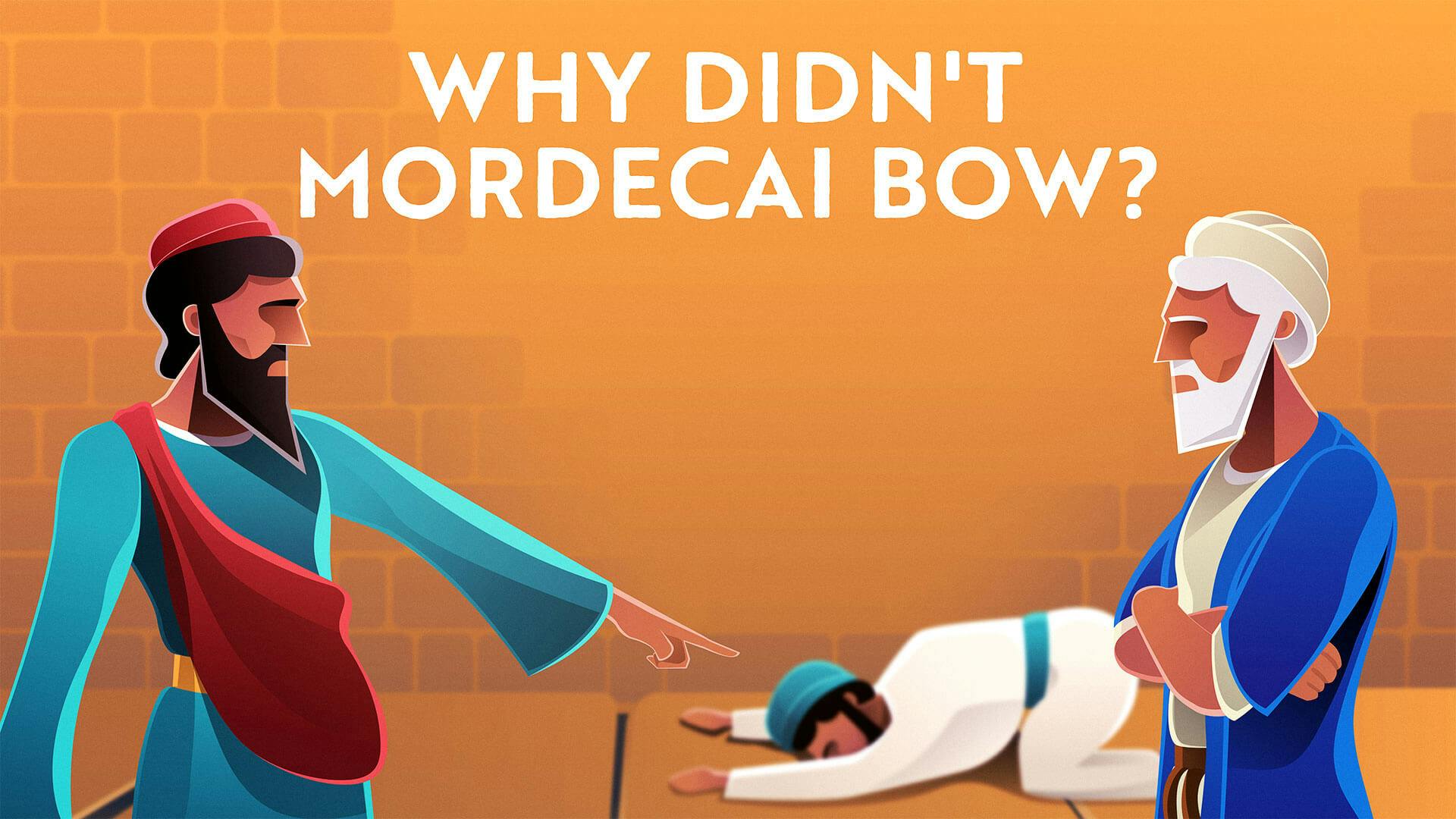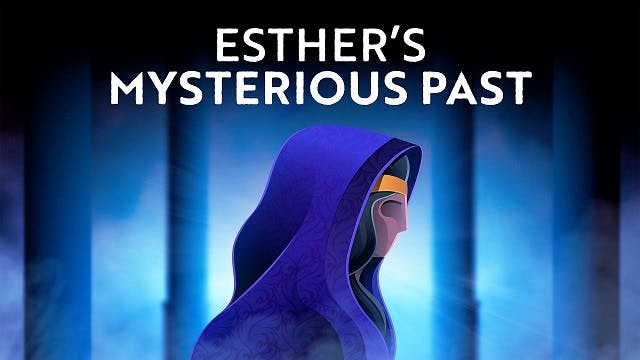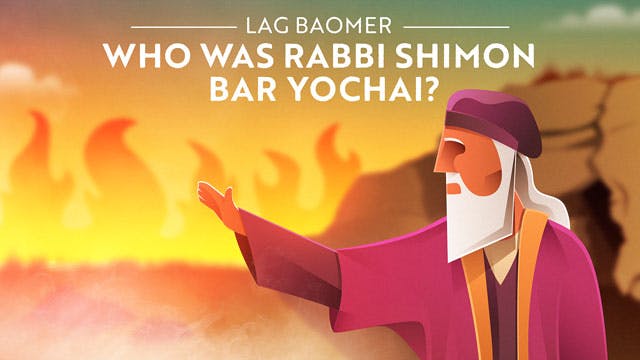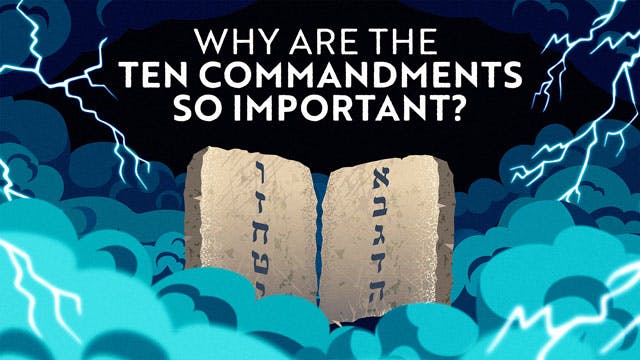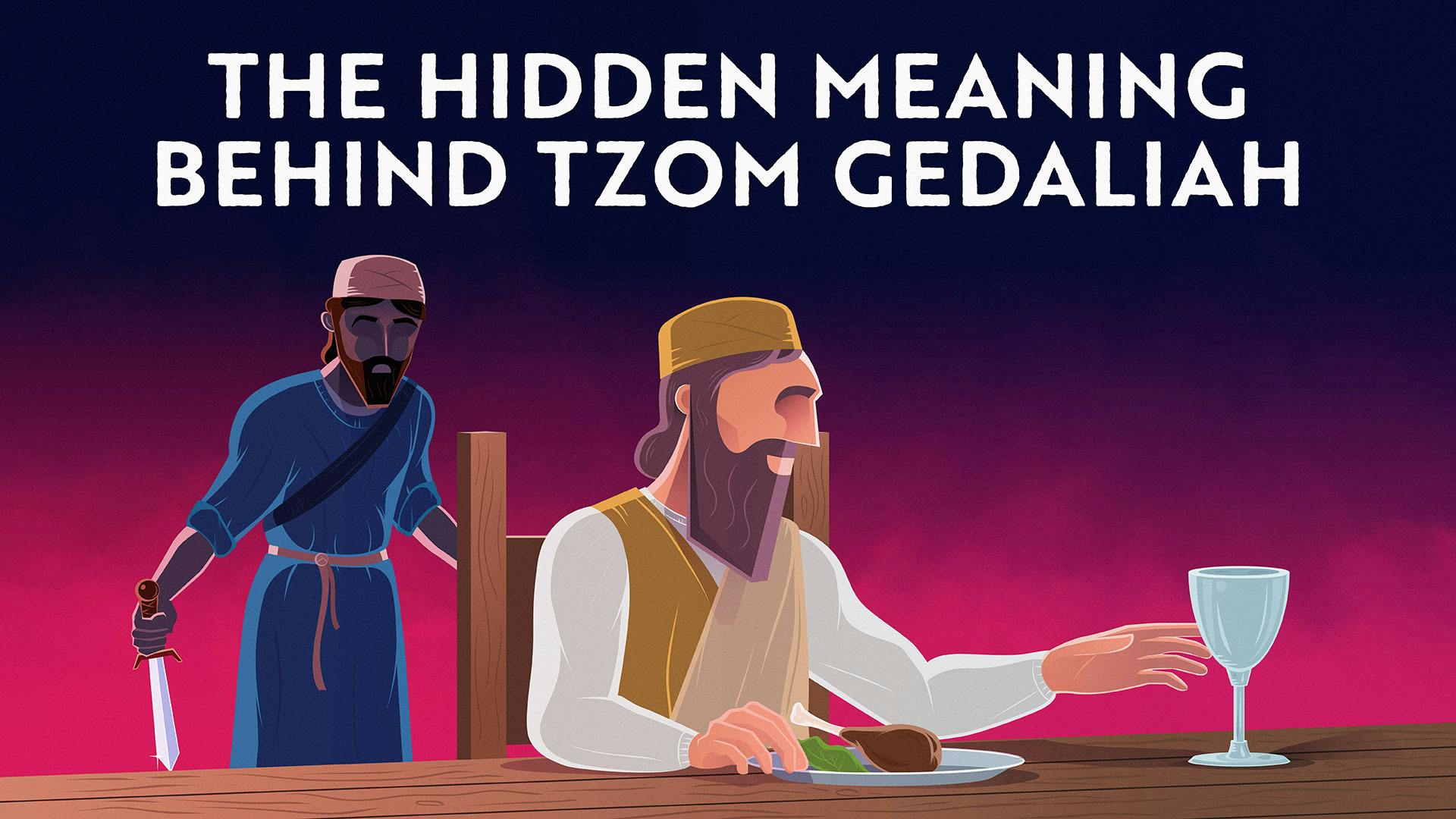Jewish holidays give us a chance to remember the significant history that has contributed to the survival and shaping of our Jewish identities today, and allow us to tap into the spiritual potential these times hold. These videos take a deep dive into the Jewish holidays, allowing you to uncover how these age-old celebrations and festivals are still relevant to our lives today.
Purim
For additional resources, check out the Purim home page here.
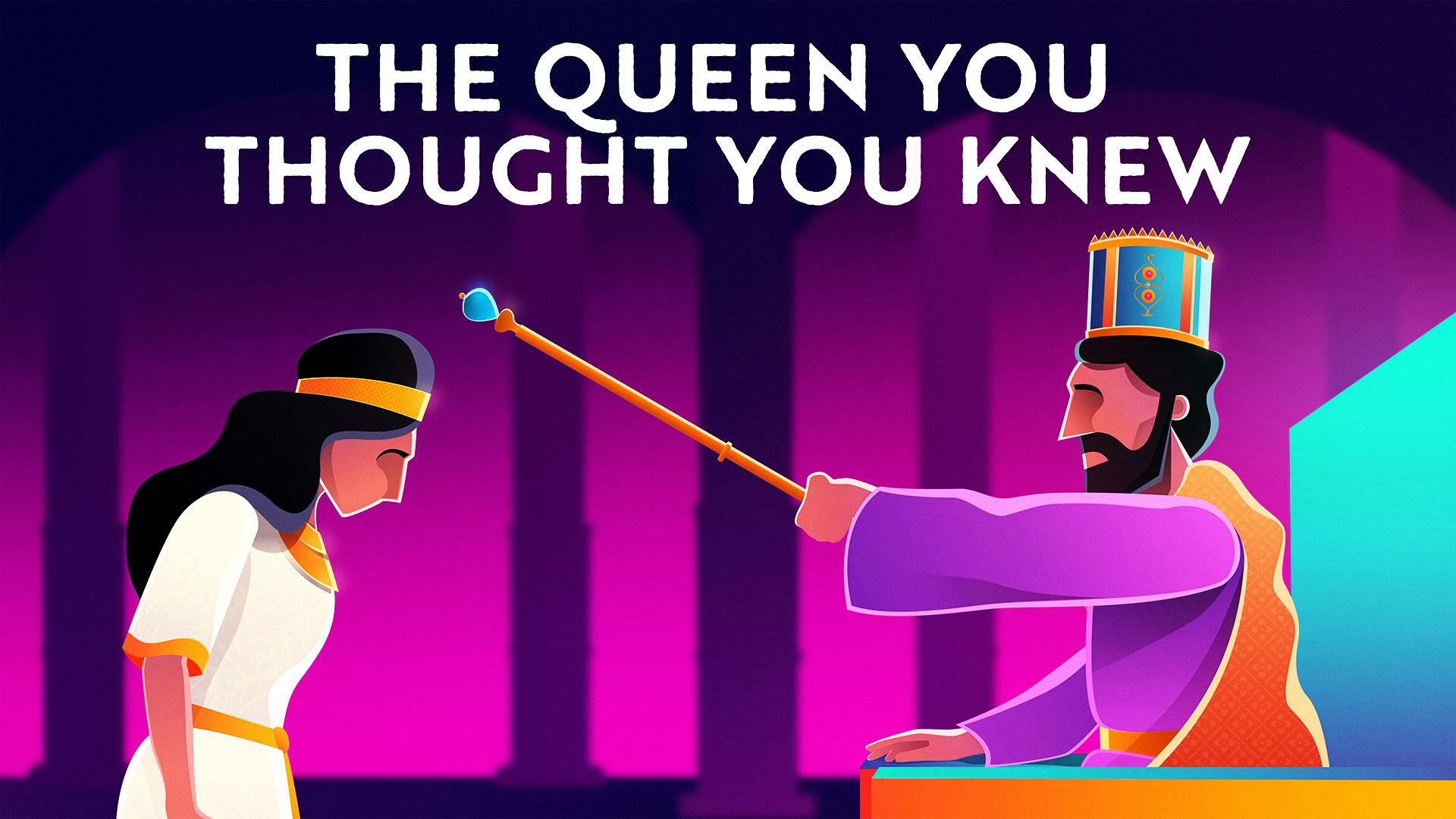
The Queen You Thought You Knew
Step beyond the children's version of Purim you learned in third grade. Uncover the sophisticated psychological strategies, political maneuvers, and hidden motivations that make the real Megillah a masterpiece of suspense.
Part 1 of 6 • 11 min

Could You Become Haman? Understanding the Path to Darkness
The Talmud makes a shocking claim: Haman's name appears in the Garden of Eden story. Coincidence? Not at all. Beneath Purim's costume parties lies an ancient pattern - Haman obsessing over "the one thing he can't have," just like Adam reaching for forbidden fruit. Uncover the eerie parallels that transform this villain from cartoon character to a mirror of our own darkest impulses.
Part 1 of 7 • 5 min

Why do we send Mishloach Manot?
What does sending food have to do with the Purim story, and why did Mordechai insist we continue this practice forever?
Part 1 of 2 • 46 min
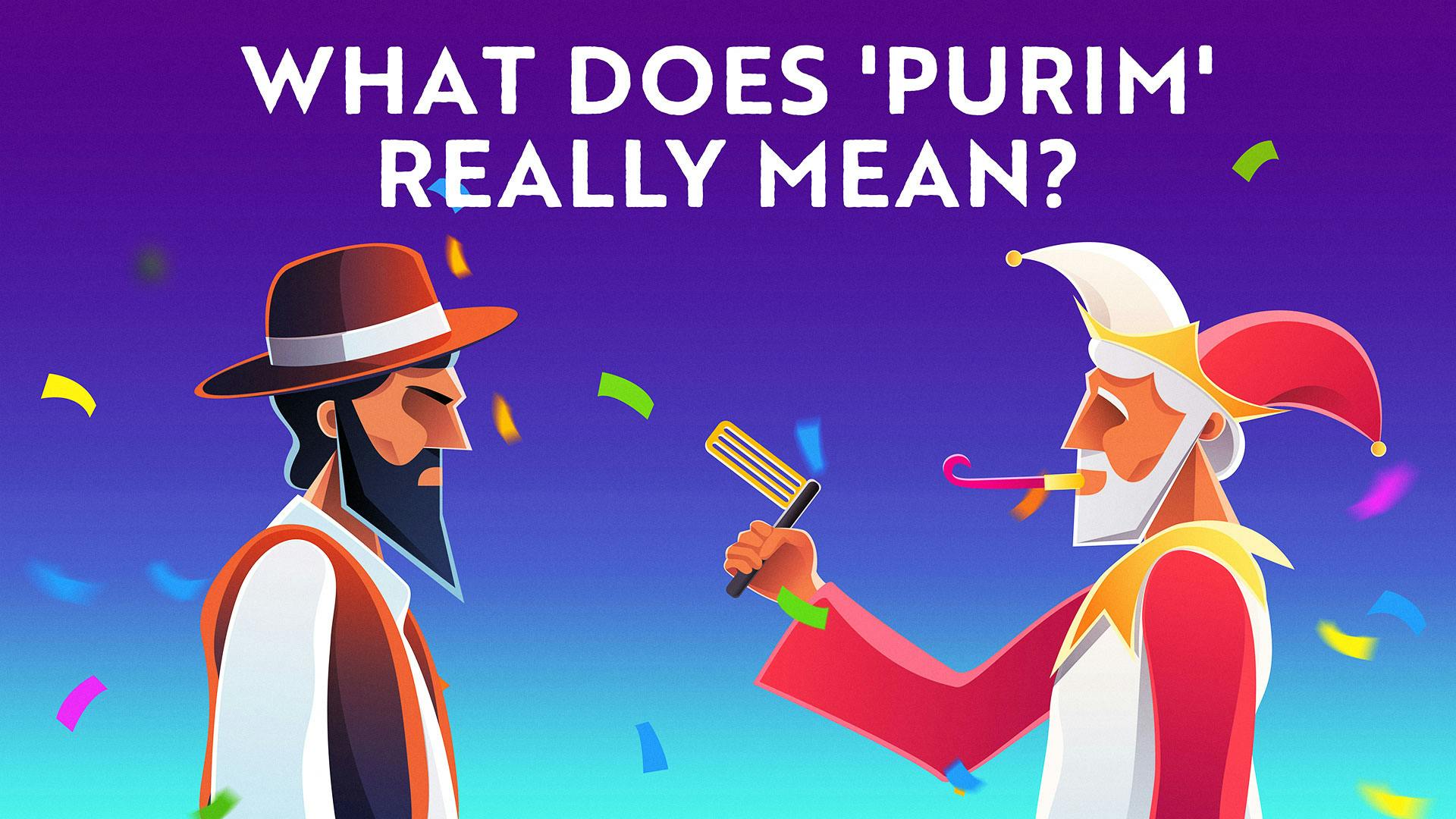
Why Is ‘Purim’ Named After Haman's Lots?
We call it "Purim" after Haman's lots—the very device he used to determine when to destroy us. But why would we ever want to immortalize a tool of our destruction? Discover how the Hebrew word "pur" carries a double meaning that turns Haman's weapon into Esther's triumph—and why this linguistic twist reveals the true spiritual message of the holiday.
Part 1 of 4 • 6 min
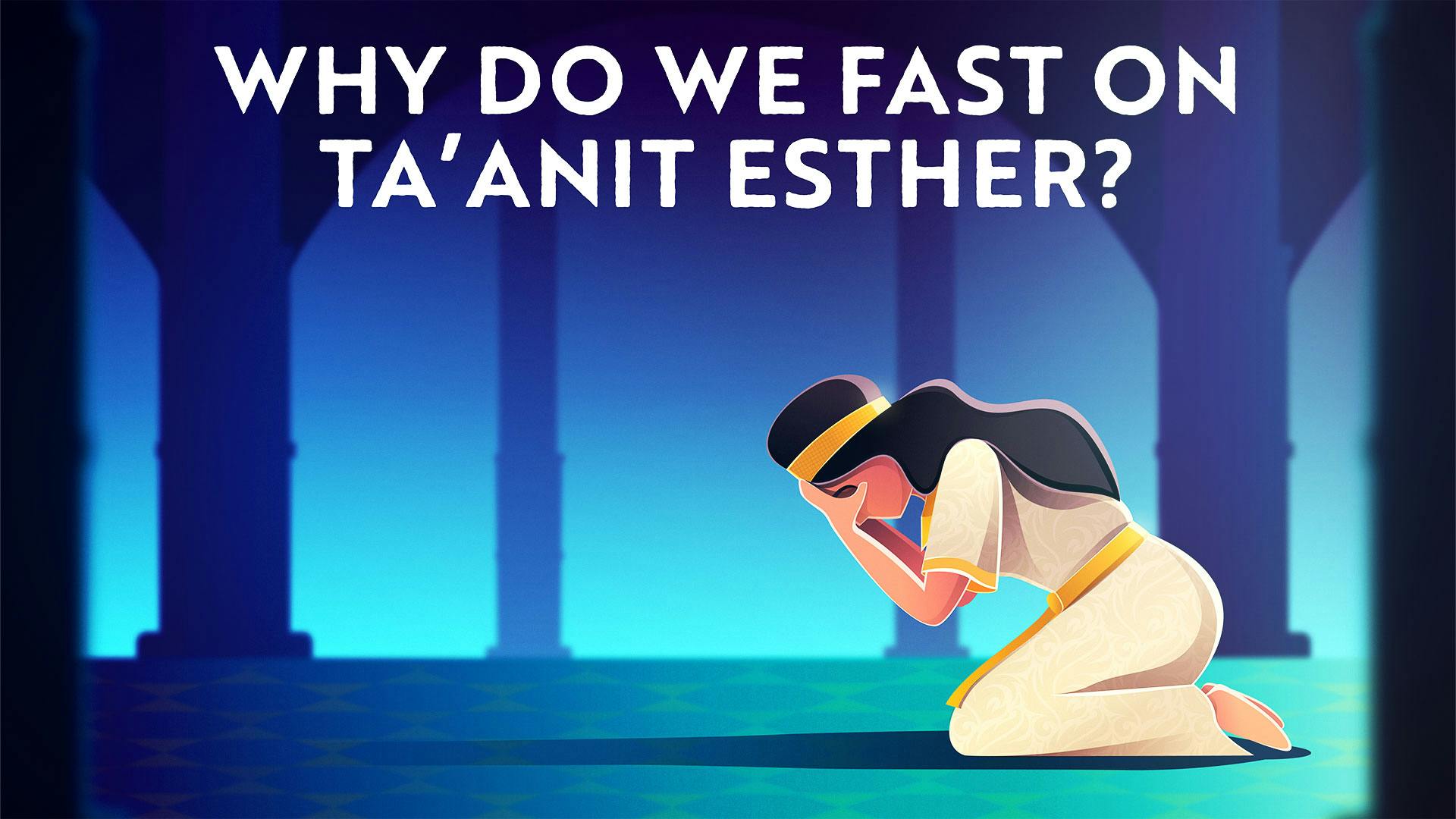
Fasting with Purpose: A Guide to a Meaningful Taanit Esther
Are you counting down the hours until your fast ends? What if these uncomfortable hours could make your entire Purim experience more meaningful? Discover why Esther's pivotal fast transformed her from passive bystander to national heroine—and how your hunger today can connect you to something much larger than yourself.
9 min

Purim In The 21st Century
Why is celebrating Purim important today – or even at all? Sure, Purim is the “holiday that will never be forgotten,” and celebrates the salvation of the Jewish nation, but it is also the rare holiday where God doesn’t take center stage in the story. Is this a clue that Purim celebrates our own contribution, alongside God’s? Of course, we recognize that Purim celebrates the work of God’s helping hand “in the background.” That certainly seems like an important reason to celebrate Purim for all eternity. But aren’t we partly responsible for our achievements? This Purim video sets out to uncover a meaningful reason as to why we still celebrate Purim today.
8 min

The Bond Between Sarah And Esther
The Torah tells us that Sarah died when she was 127. The Torah also tells us that there were 127 provinces in the Persian empire in the days of Achashverosh and Queen Esther. Coincidence? Rabbi Akiva doesn’t think so, and neither does Rabbi Fohrman. Watch this video to find out why.
11 min

Unmasking The Mysteries Of Purim
Rabbi Fohrman explores the connection between the stories of Megillat Esther and Adam and Eve in the garden of Eden. Could the very first story in the Torah have any connection to the very last story of the Torah? And if so...what does that mean for the way we understand the holiday of Purim today?
2 hours, 7 min

The Mysterious Connection Between The Books Of Leviticus & Esther
The Book of Esther is filled with many biblical echoes that deepen and enrich our understanding of what really happened in Shushan. Join Rabbi David Fohrman and Rabbanit Shani Taragin as they trace the Book of Esther back to the dedication of the Tabernacle in the Book of Leviticus, and enter Purim with a new perspective.
1 hour, 54 min

Fate, Chance, And The Book Of Esther
What are the main themes of Purim that emerge from the Book of Esther? We dive into the glaring questions in Megillat answer and uncover the surprising answers.
Part 1 of 3 • 55 min
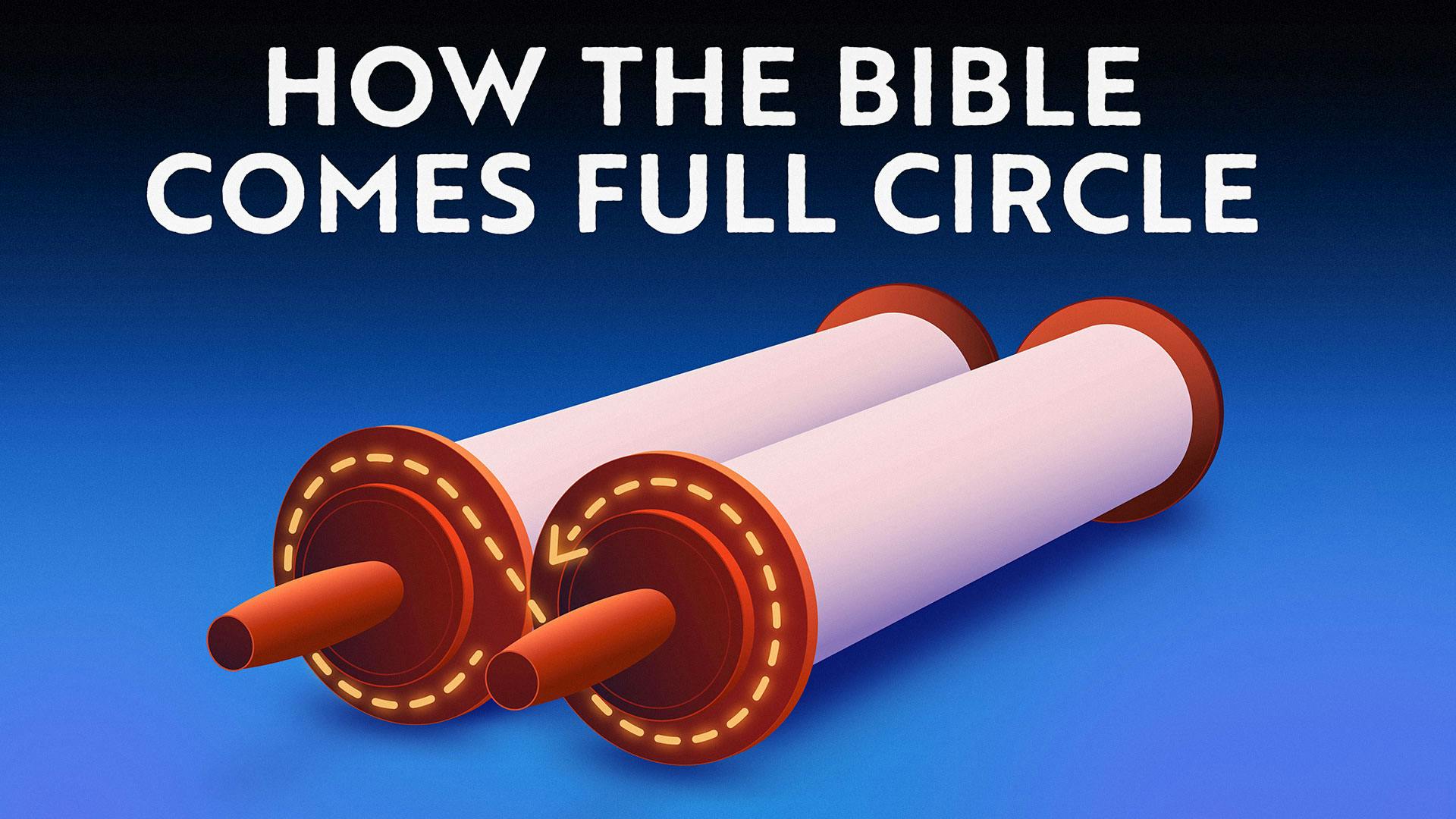
How The Bible Comes Full Circle
Rabbi Fohrman taught this Premium webinar before Purim of 2018. Come watch, and explore the connections between the story of Purim and the story of Rebecca and her sons.
Part 1 of 2 • 1 hour, 5 min

The Rise Of Antisemitism: A Glimpse Into Amalek’s Tortured Soul
Antisemitism. Where did it all originate and can we trace it through the Tanahk? Rabbi Fohrman argues that it may have begun with the story of Amelek, which is widely known as one of the most mystifying and difficult episodes in the Torah.
Part 1 of 11 • 1 hour, 23 min
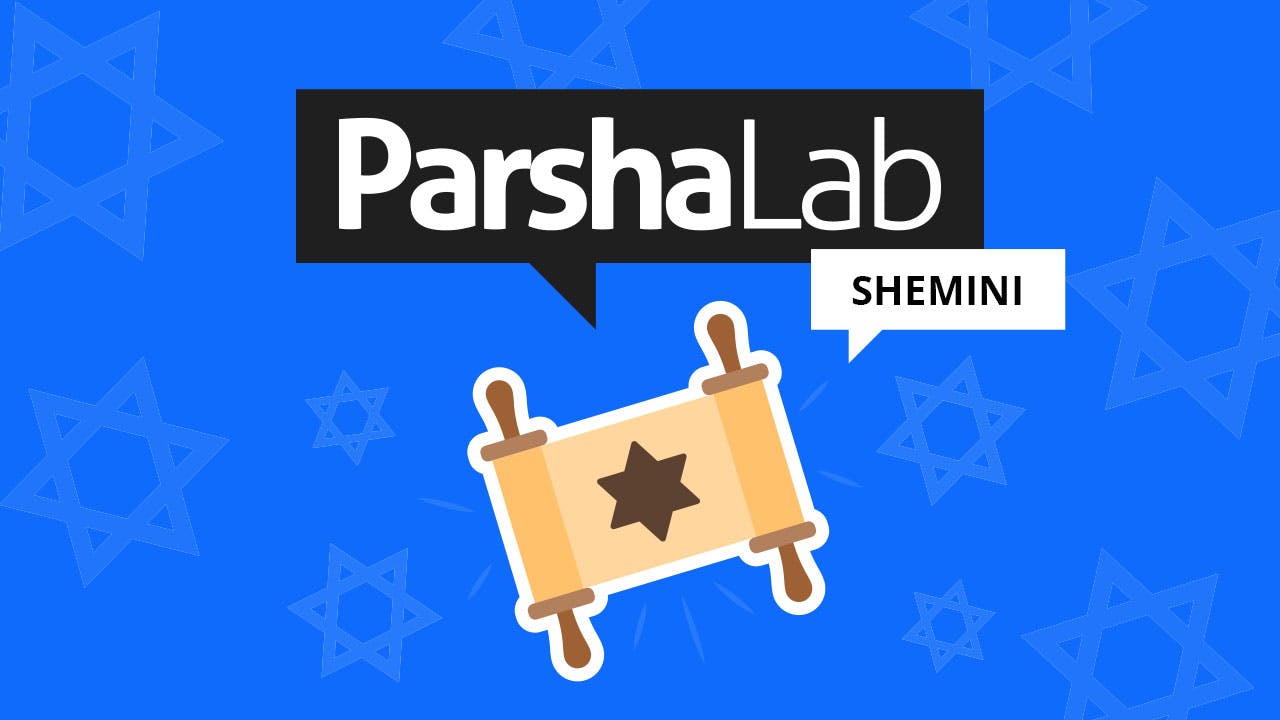
What Does The Induction Ceremony For The Priests Have To Do With... Purim?
We learn in Shemini about the induction of Aaron and his sons into the priesthood. Interestingly, there are bunch of similarities - in language, and in theme - between this story, and the story of Megillat Esther. But what does the induction of priests have to do with Esther?? Join Rabbi Fohrman and Rivky as they examine this puzzle - and never think about the priesthood, or Megillat Esther - the same way again.
43 min
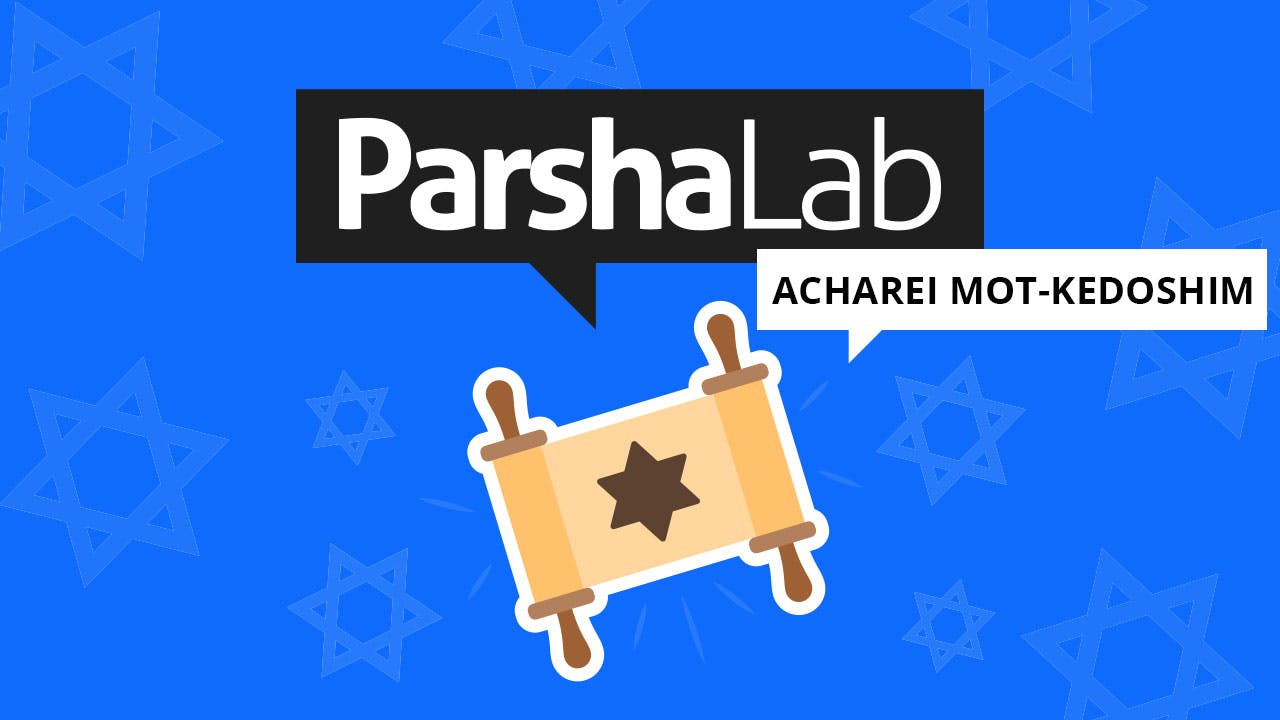
What Does Yom Kippur Have To Do With Megillat Esther?
Acharei Mot describes the priest’s Yom Kippur service in the Tabernacle, with strangely similar language to Megillat Esther. But what does Yom Kippur—with themes of repentance and closeness to God—have to do with Esther? Rabbi Fohrman and Rivky re-examine these two texts.
22 min
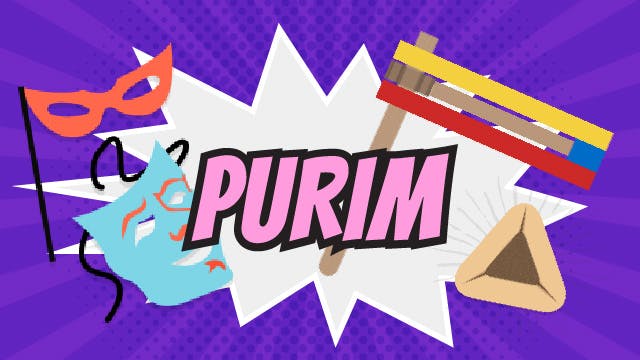
What Is the Meaning of Purim? The Purim Story, Purim Characters & Customs Explained
6 min

Esther’s Fast (Taanit Esther): Guidelines and Meaning

Mishloach Manot

Purim Book, Chapter 1: "The Queen You Thought You Knew."
In this excerpt from Rabbi Fohrman's book on Purim, "The Queen You Thought You Knew," he invites you to look at the Book of Esther with fresh eyes. In so doing, he reveals another richer, deeper narrative. Unravel the layers and watch Esther's hidden story come alive in an unexpected way, offering you a stirring encounter with the queen you thought you knew.
Passover
For additional resources, check out the Passover home page here.
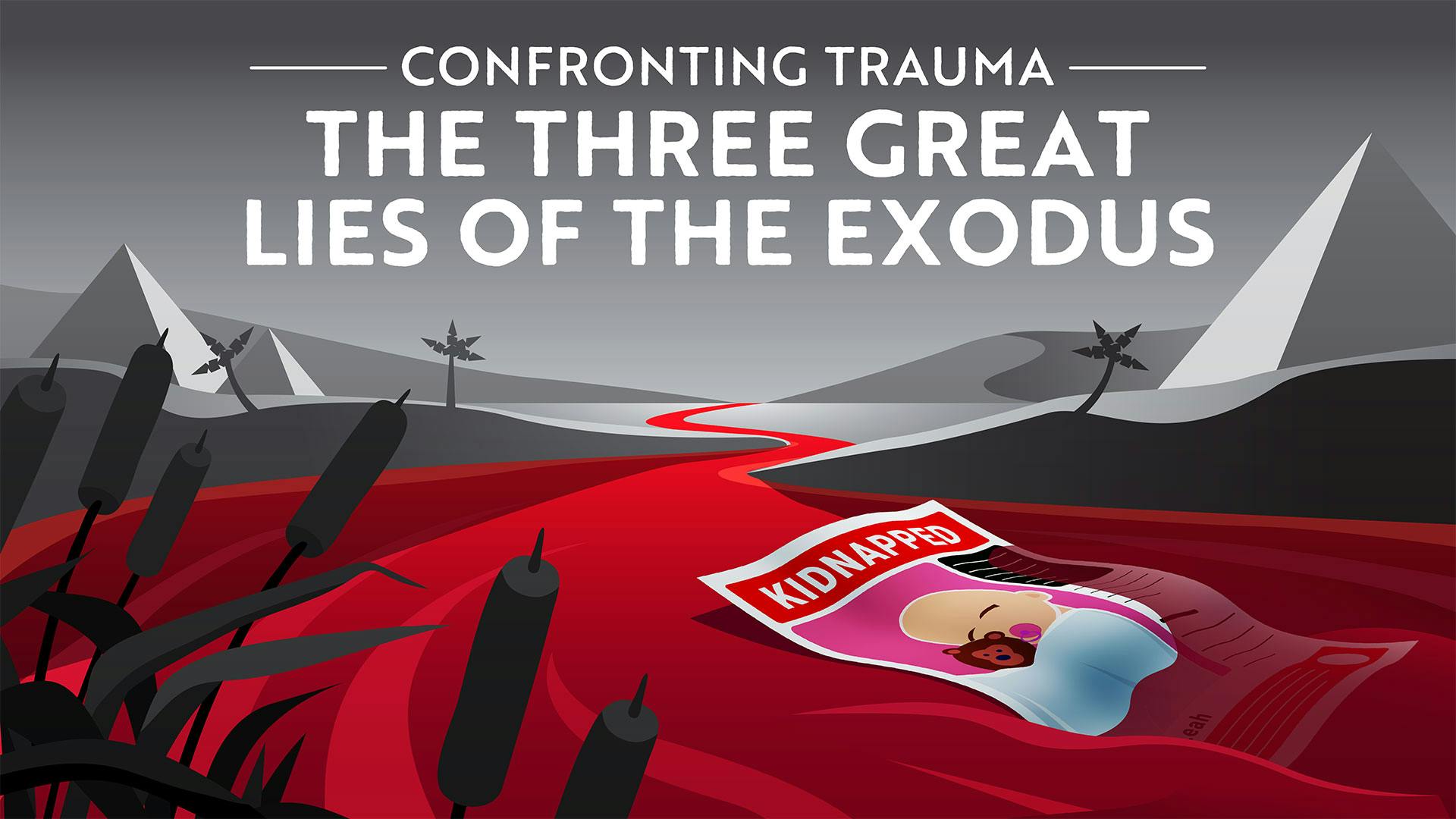
Confronting Trauma: The Three Great Lies Of The Exodus
Children torn from their homes, their kidnappers denying they took them in the first place. Our enemies deny their crimes while hoping to wipe us from the map. Unfortunately this is the reality we’re living in right now. But it was also the reality of the Israelite people over three thousand years ago in Egypt. How do we come to grips with the trauma we’ve endured? Will our pain ever be recognized? This video series is an attempt to draw strength from the tragedies and ultimate victories of our past.
Part 1 of 7 • 14 min
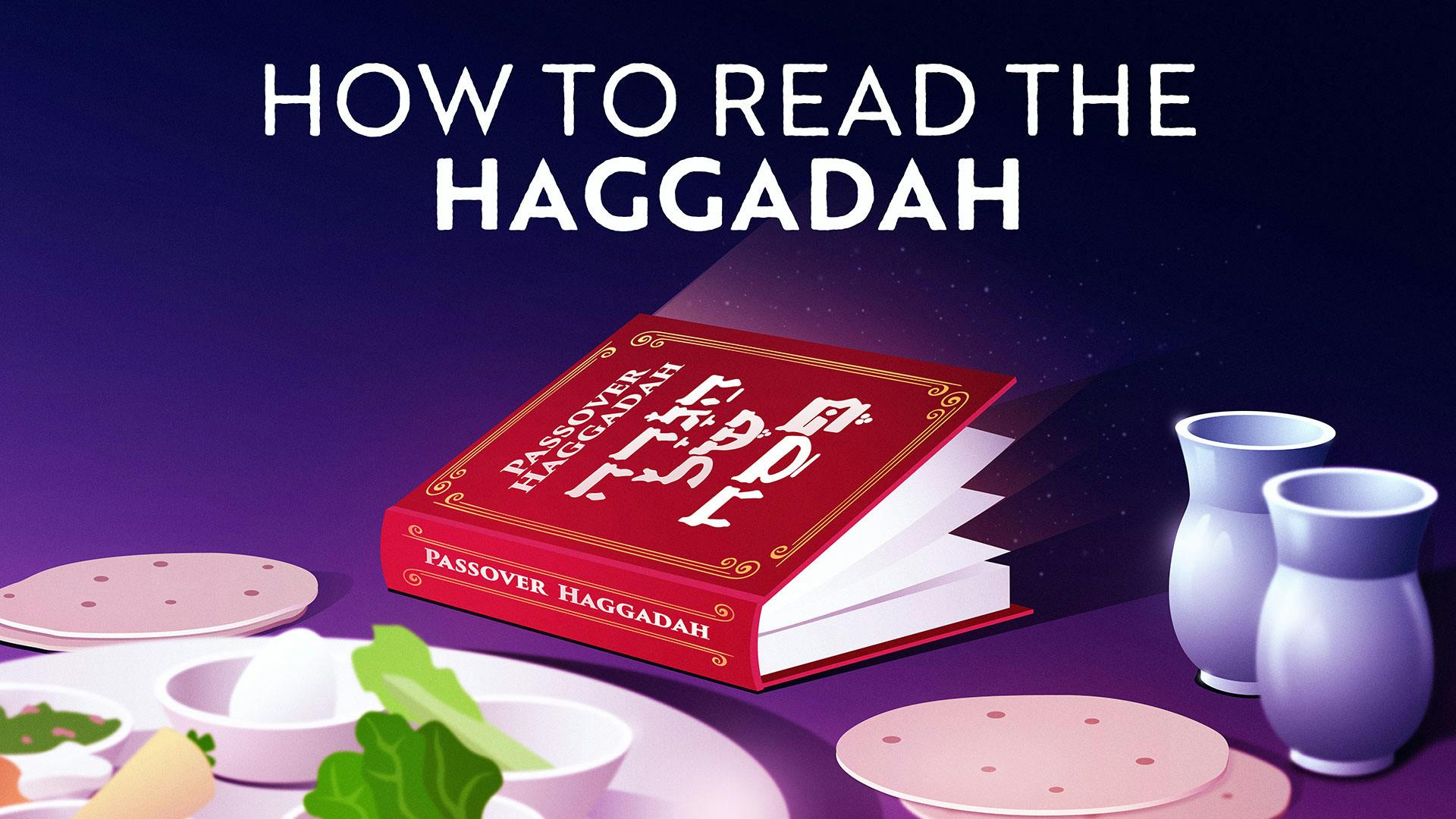
How To Read The Haggadah: Explanation, Dvar Torah & The Pesach Story
Every Pesach the Haggadah is read at the festive meal. Some parts are fun, like the singing and exciting stories. But so much of it is boring, and seemingly random! Why are these hodgepodge of stories included? In these videos, Rabbi Fohrman gives new insight into these texts, and teaches us how to really read the Haggadah.
Part 1 of 5 • 14 min
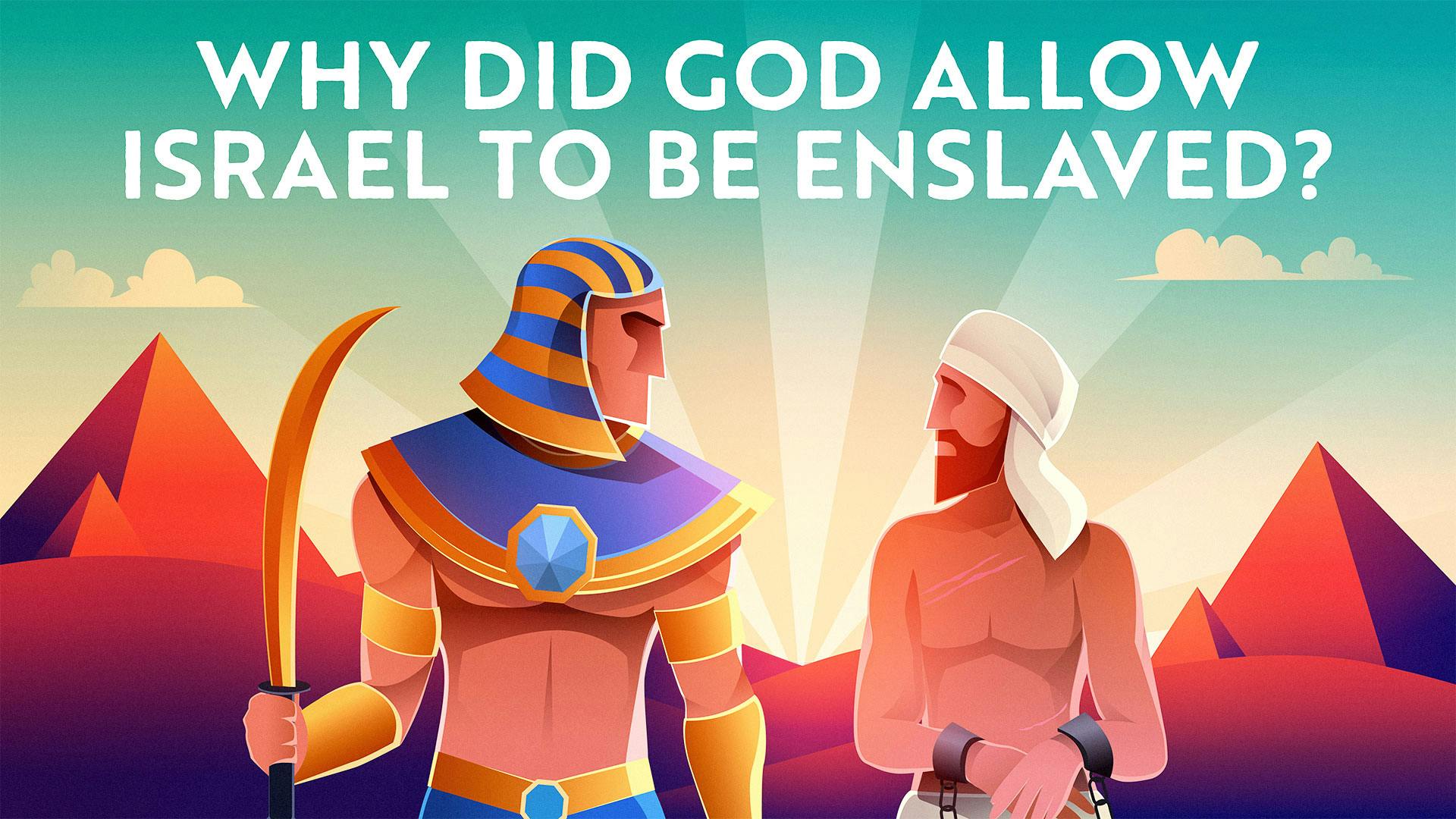
Why Did God Permit The Israelites To Become Slaves?
The Exodus story is gripping, emotional, and exciting. But...isn't it also deeply theologically troubling? God freed us from slavery, yes - but why did God allow the Israelites to become enslaved in the first place? Why not skip the whole slavery part, and go straight to the happy ending? Join Rabbi Fohrman on the search for answers, and a deeper understanding about how much we have to be thankful for.
Part 1 of 5 • 8 min
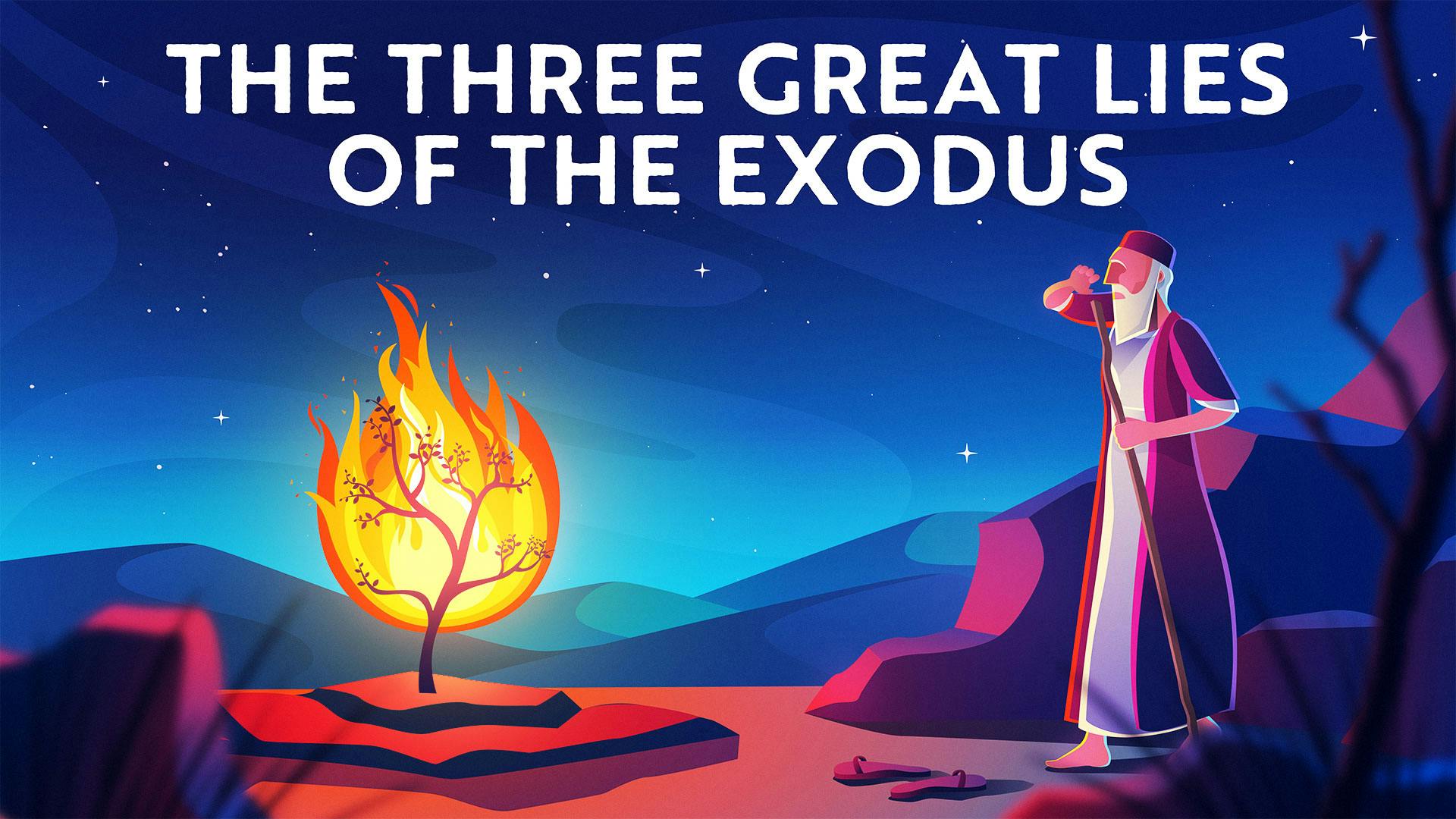
The Miracles Performed By Moses In Egypt
At the burning bush, God gave Moses three signs to show the People of Israel that He is in fact with them. Was there any significance to these 3 signs, or did God randomly select three signs? Also, were the signs even effective? Join Rabbi Fohrman as he takes a closer look at these three signs from God.
Part 1 of 7 • 10 min
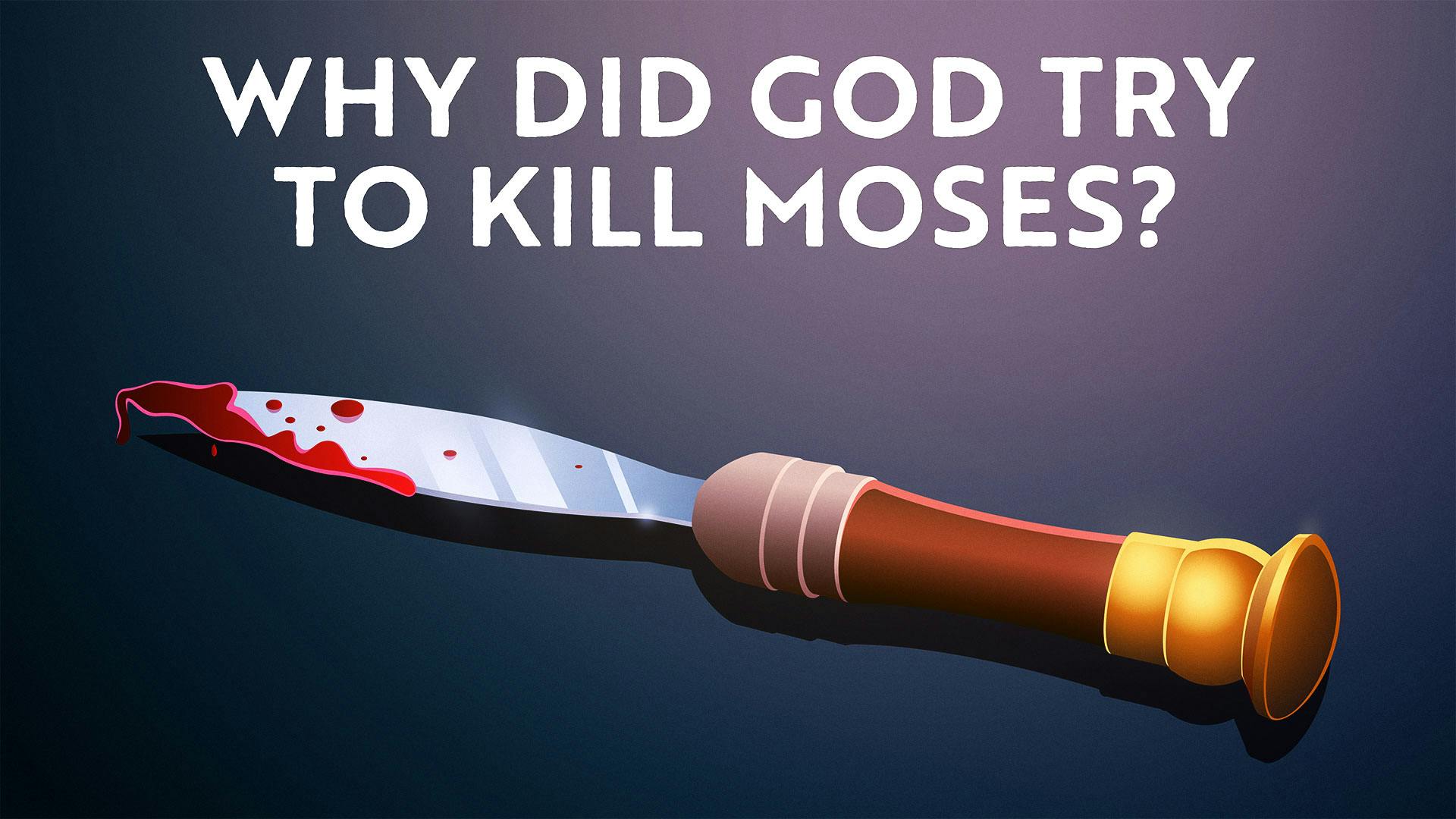
The History Of Moses In The Bible
Every hero has an origin story. We are all familiar with Moshe’s origin story. But there is one episode in the story that actually seems quite unfamiliar. On the road back to Egypt with his wife Tzipporah and their two sons, Moshe and his family stop at an inn when the strangest thing happens. God tries to kill Moses! Fortunately, level-headed Tzipporah saves the day by circumcising their second son and then the story suddenly ends. (Yes, this is a real story from the Chumash! Look it up! It’s Exodus 4:24-26.) What a strange story! God was the One who sent Moses to Egypt. Moshe was doing what God told him to do! So why would God try to kill him?! Talk about shooting the messenger! In this newly remastered and reanimated video series, Rabbi Fohrman weaves an interpretation of this story into a larger, magnificent tapestry shedding new light on our origin story - The Exodus.
Part 1 of 6 • 14 min
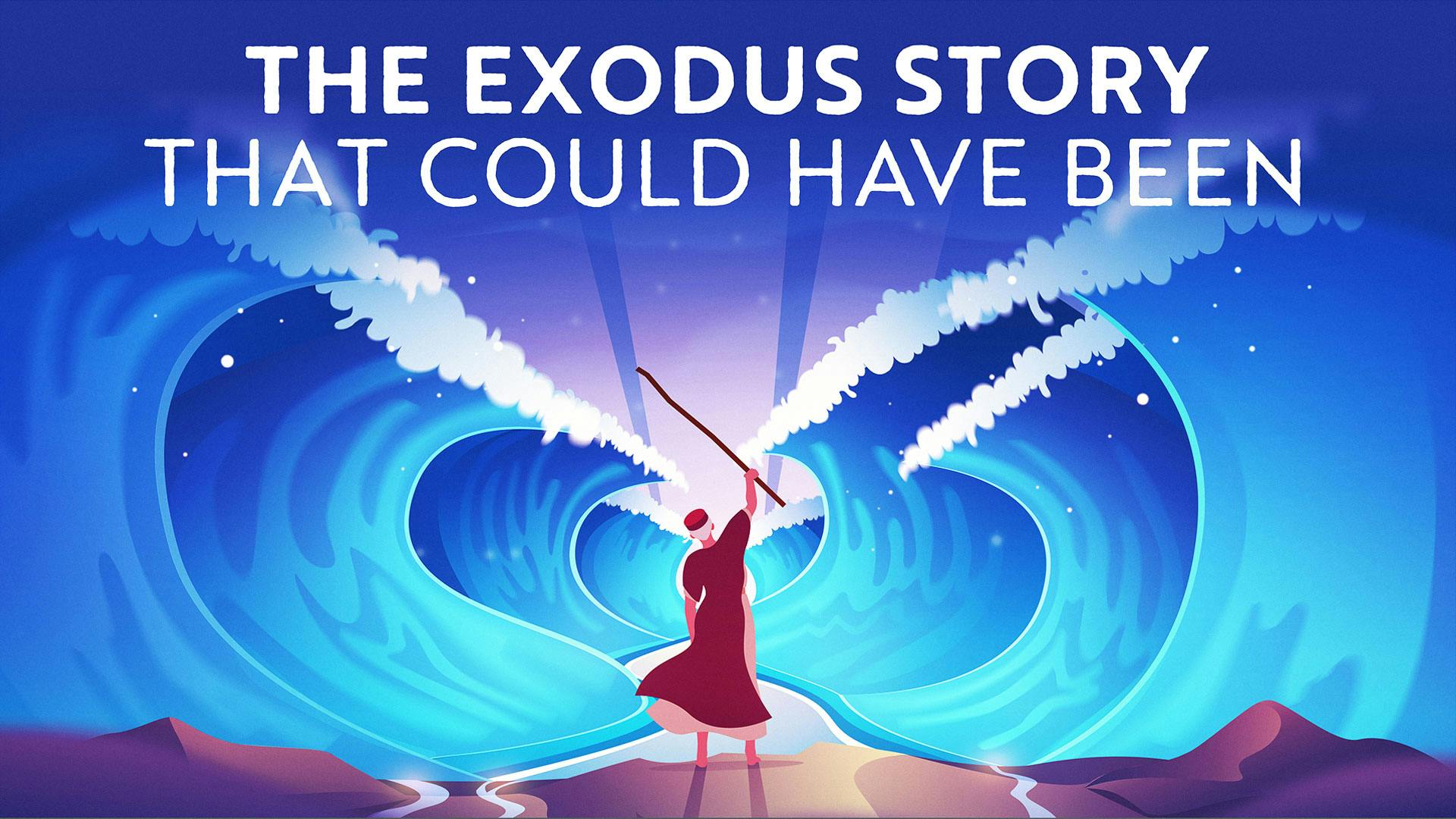
The Exodus Story That Could Have Been
The Exodus story ends in carnage for the Egyptians, and in glorious salvation for the Israelites – but could this story have ended differently? Could the Egyptians also have lived happily ever after? Rabbi Fohrman thinks we can find the answer by noticing some uncanny resemblances to another biblical story. Join us as we explore a new way of reading the Exodus story.
Part 1 of 5 • 13 min
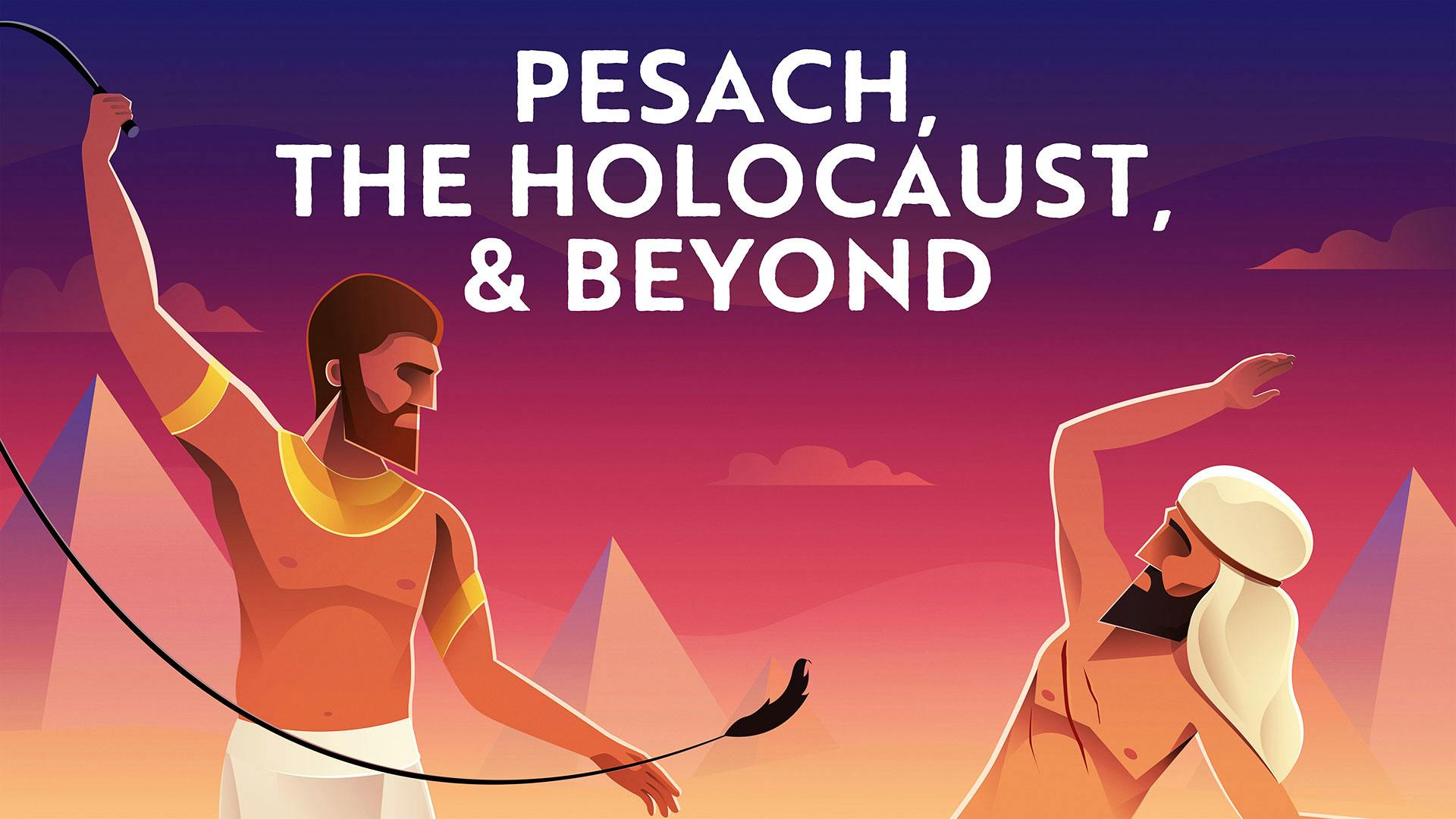
Pesach, The Holocaust, & Beyond: What Can We Expect Of Divine Justice?
The enslavement of the Jewish people in Egypt was brutal. Many were murdered, including innocent children. And although God rescued the Jews in the end, one can't help wonder - was that enough? Is there more to the story than what first meets the eye? Join Rabbi Fohrman as he takes a look at God's full response to the great evil that occurred in Egypt, and sheds light on what divine justice really looks like.
Part 1 of 5 • 20 min
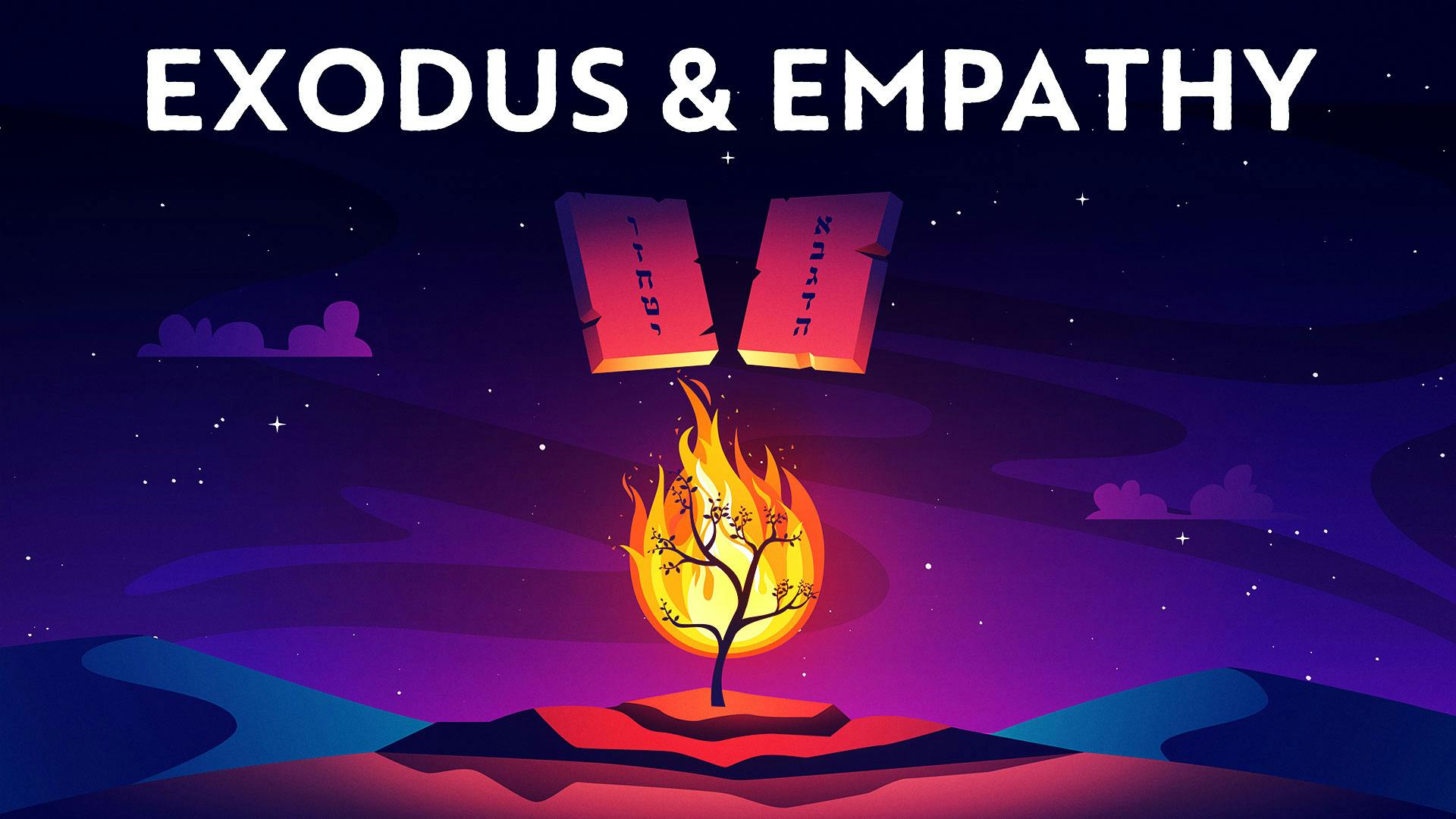
Understanding Yetziat Mitzrayim
On Passover, we celebrate the miracles God performed for the Israelites by freeing them from slavery. But isn’t it strange that right after the Israelites left Egypt God enforced the laws of the Ten Commandments without warning? Join Rabbi Fohrman as he explores this pivotal question by comparing the Ten Commandments with the story of the Burning Bush.
31 min
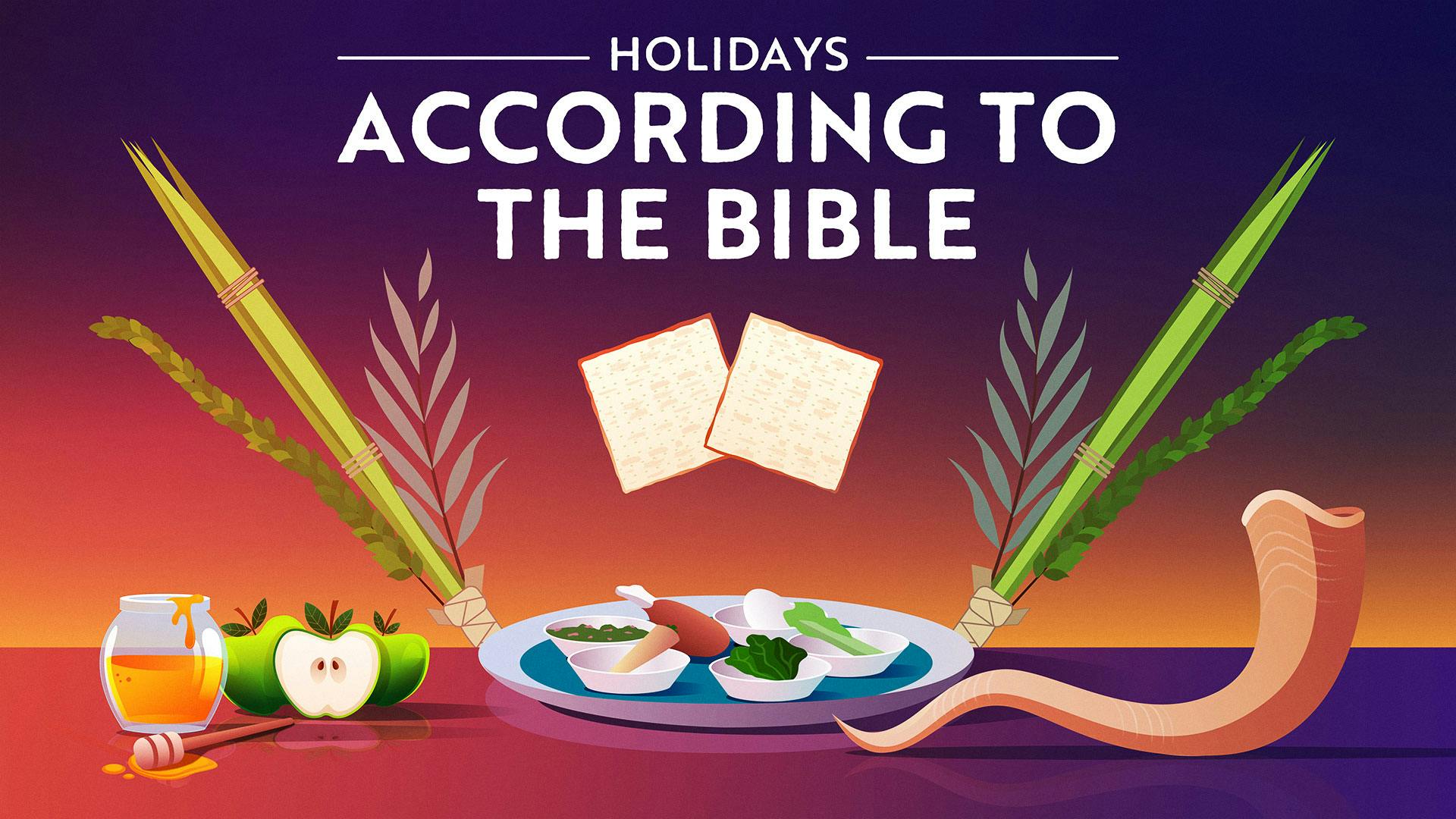
An Epic Understanding Of The Jewish Holidays
When it comes to the Jewish holidays, we tend to relate to each one on its own. But often, we miss the bigger picture. The Torah actually talks to us in epic, sweeping terms about the very idea of a “holiday,” about how to understand the holidays and find meaning in them. Come into the text and get ready to unravel the Torah's secret about the true meaning of Sukkot, Pesach, and Shavuot.
12 min

Model Passover Seder
Insights into the Passover Haggadah Sit alongside Rabbi Fohrman and our CEO Imu Shalev for a model seder as they explore wonderfully new and invigorating ideas on an age-old seder tradition.
2 hour
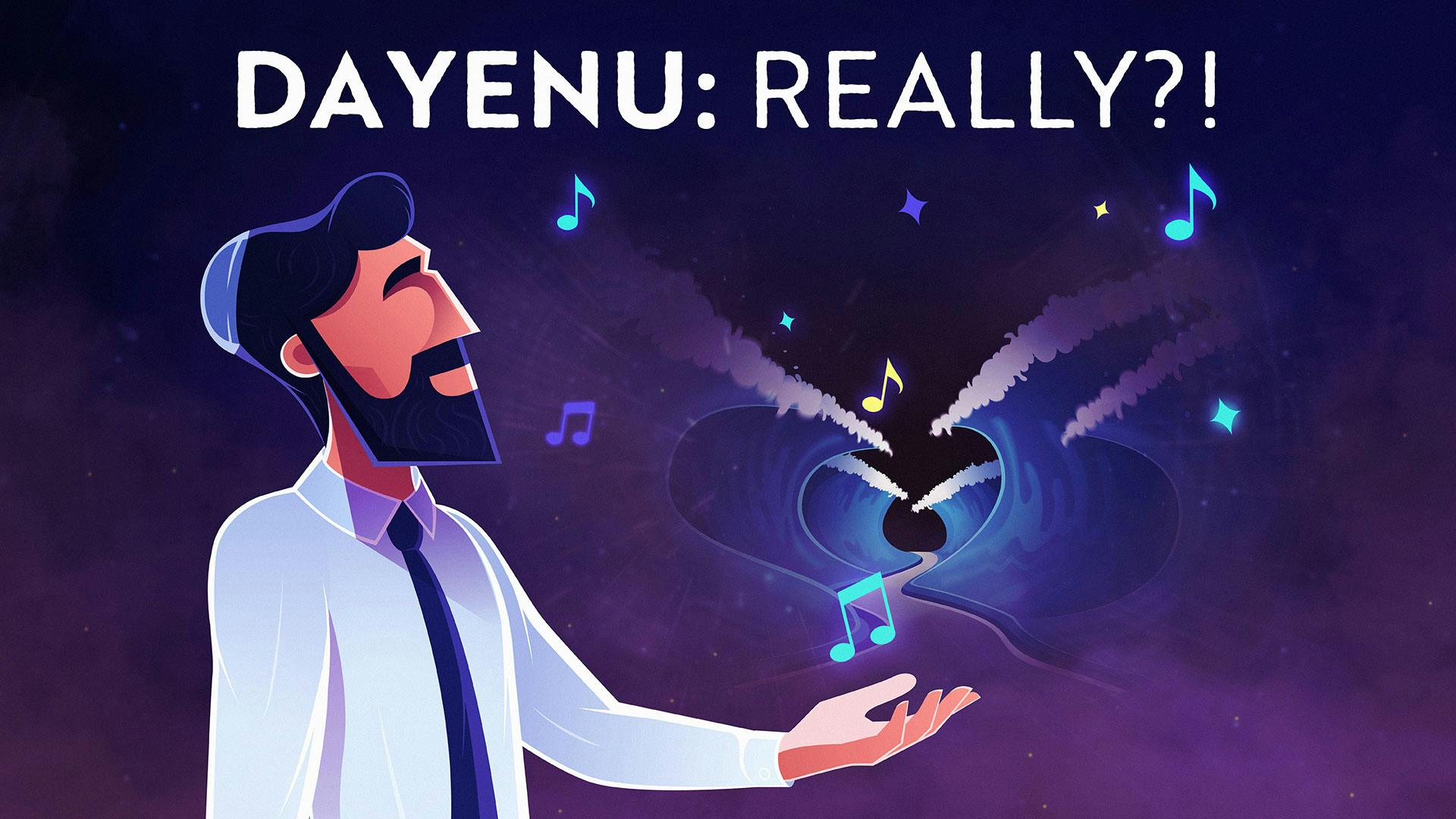
Dayenu In The Pesach Haggadah
Singing Dayeinu: Would It Really Have Been Enough? What do the lyrics of Dayeinu song really mean?
1 hour, 21 min
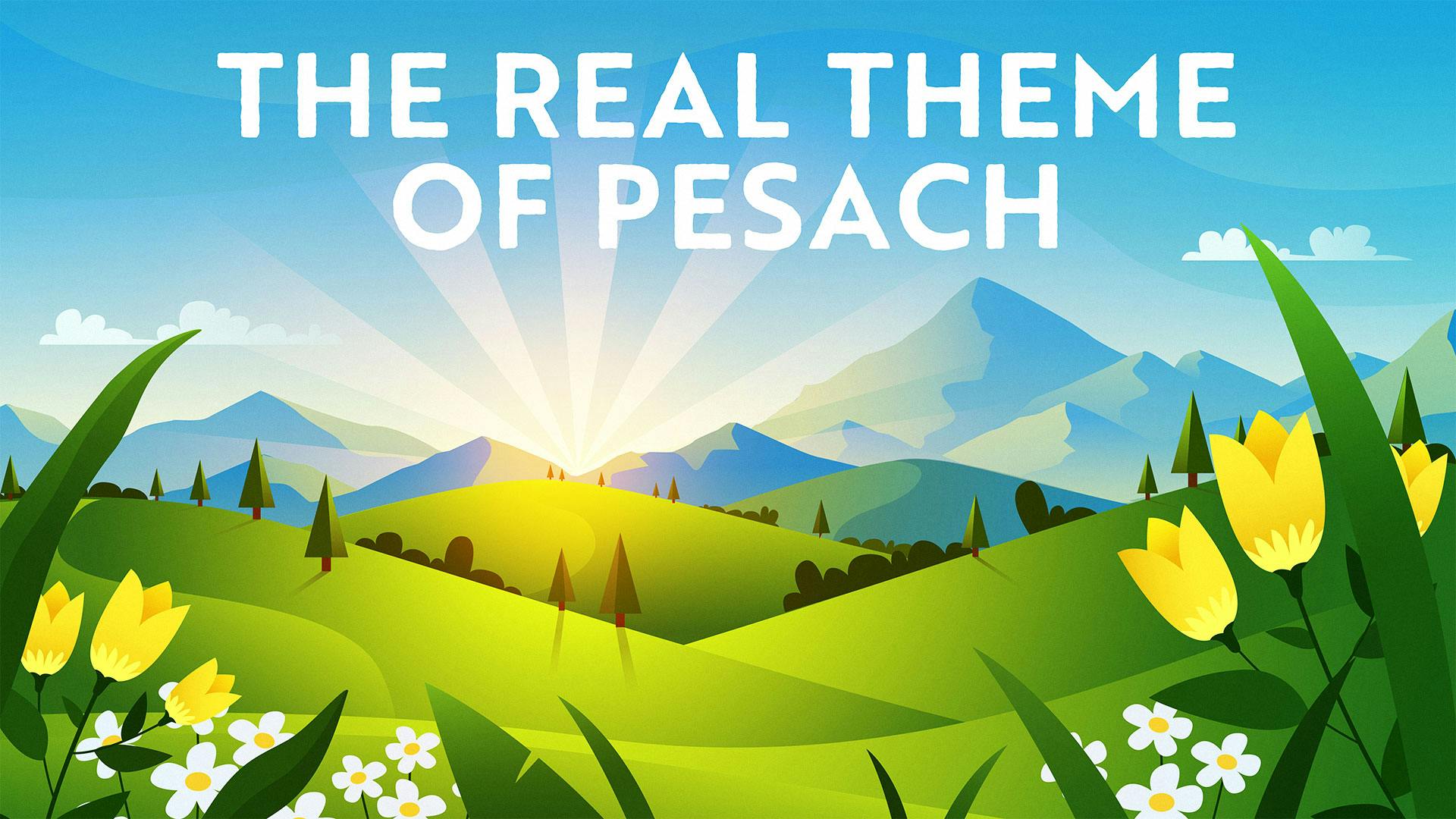
What Is The Main Theme Of Pesach?
If Pesach was really about freedom, then why didn’t God take the Israelites out of Egypt sooner? Why did he have to go through all of the trouble of making plagues? Join Imu as he explores this pivotal question by re-examining the Exodus text, and never read the Pesach story the same way again.
7 min
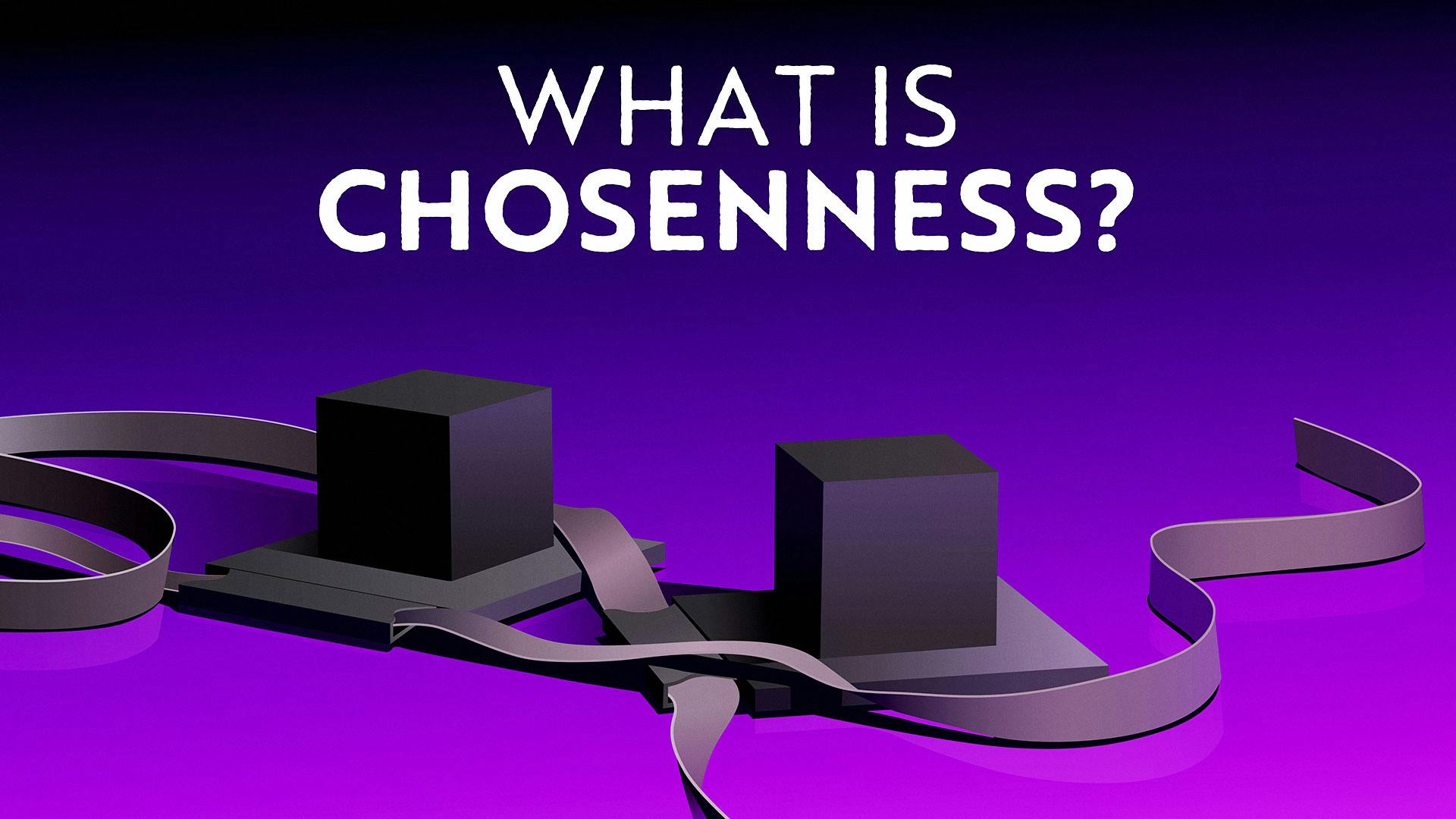
Why Did God Choose Israel As His Chosen People
This multi-part course delves into the challenging concept of chosenness, exploring how Passover reveals our deeper purpose as a people and the unique role Israel plays in God's plan.
Part 1 of 8 • 8 min
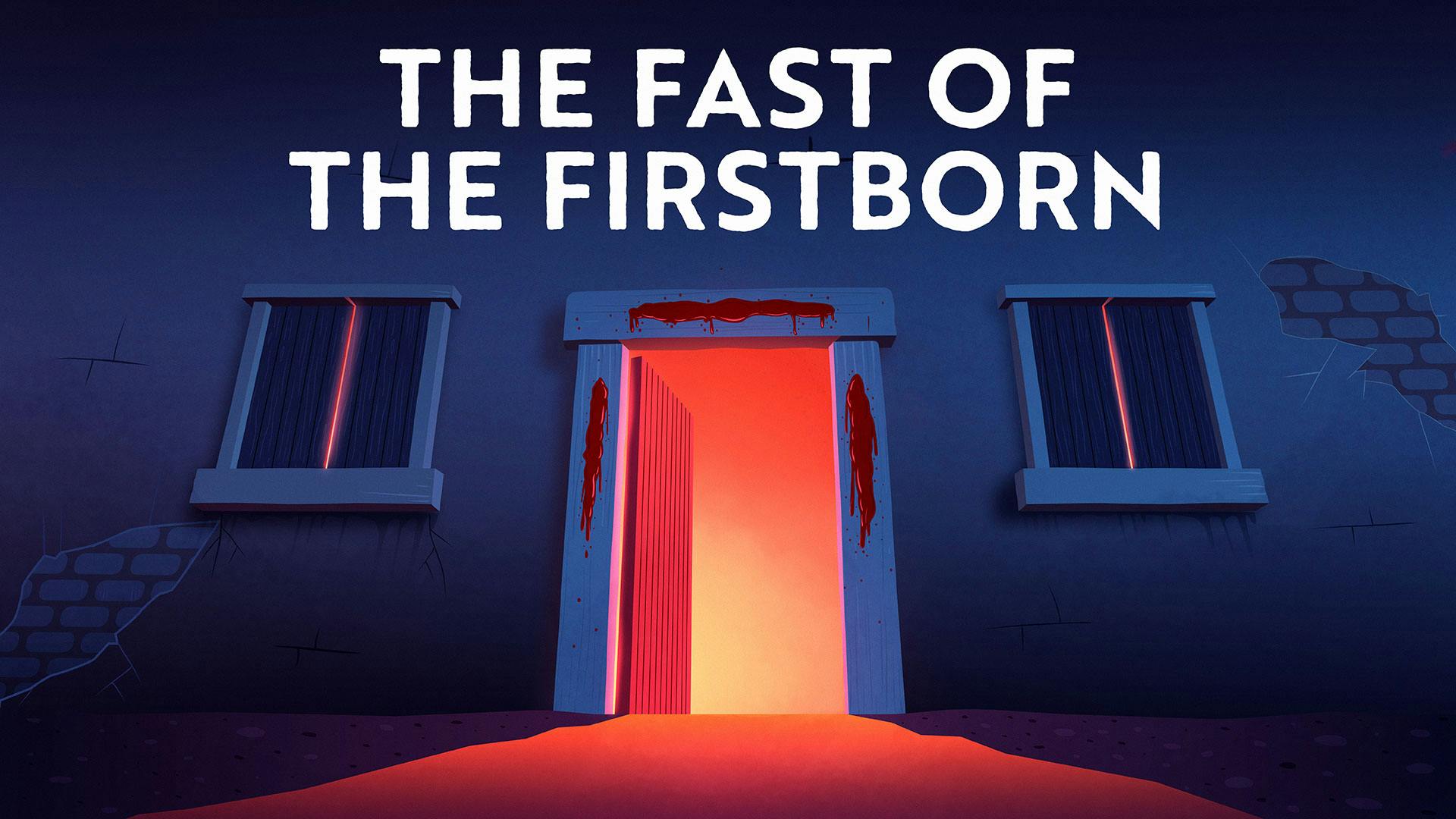
What Is Taanit Bechorot?
Taanit Bechorot commemorates the tenth and final plague in the Passover story -- when God killed all of the firstborn Egyptians, but spared those of the Israelites. To remember, firstborns fast. But what’s interesting about Taanit Bechorot is that most firstborns don’t actually fast. Instead, there’s another tradition of joining a se’udat mitzvah -- a special kind of religious meal, whose joy overrides the fast. So, if no one's fasting, why are we even celebrating this day? Join us as we explore this unique question by reexamining the language used to describe God’s firstborn child, the Israelites -- and never think of Taanit Bechorot the same way again.
7 min
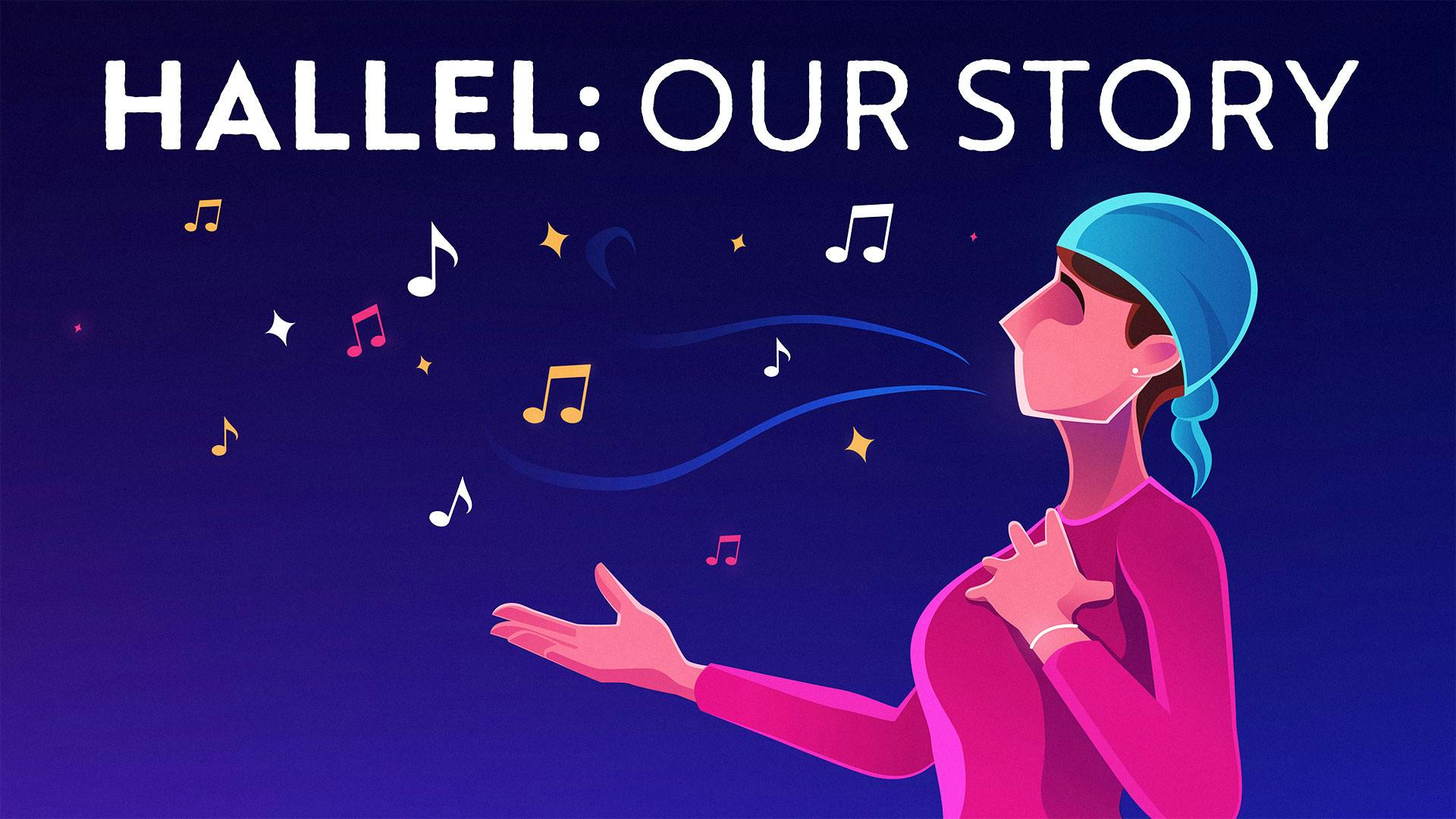
The Meaning of Hallel
We add the prayer service of Hallel on holidays, but what exactly are we saying? Is it just a collection of Psalms? In this course, Rabbi Fohrman argues that not only are we learning what it is to be a servant of God, but we are also discovering the origins of the nation of Israel.
Part 1 of 7 • 56 min

What Does The Mincha Offering Teach Us About Pesach?
We learn in Tzav that one is not allowed to mix Chametz with the sacrificial Mincha offering. But what does the Mincha offering have to do with Chametz? Or by extension, Pesach? Join Imu and Rivky as they re-examine the offering text and learn the deeper meaning behind Chametz, a symbol of over-processing and separation from the creator.
28 min

How Is Land Ownership Connected To The Pesach Sheni Offering?
In Parshat Pinchas, we read about the daughters of Tzelaphchad, who sought to inherit their father’s land. God granted their request, and even codified it into law. But there’s something unique about this story — it’s strikingly similar to the story of the Pesach Sheini offering. When a group of ritually impure people approached Moses and requested a way to make an offering, God codified a practice called Pesach Sheni, which acted as a “make-up” offering for the impure. But what does inheriting land and ritually impurity have to do with each other? Join Rabbi Fohrman and Daniel Loewenstein as they explore the meaning of nationhood and purity.
32 min

How To Read The Pesach Haggadah
Reading the Haggadah is one of many rituals of the Pesach Seder – but it can be difficult to read. Sometimes we mumble our way through it, without real comprehension. This Haggadah outlines guides you through the important messages in Maggid.

The Exodus You Almost Passed Over: Chapter 1
Is there more to the Exodus story than we think we know? Rabbi Fohrman's book reveals a side of the ancient Exodus saga that illuminates not just our past, but our future, and tells not only of our freedom, but of our destiny. Take a peek at Chapter 1 for free.
Lag BaOmer
For additional resources, check out the Lag BaOmer home page here.
Shavuot
For additional resources, check out the Shavuot home page here.

The Meaning Of The Book Of Ruth
Shavuot is an epic holiday in which we received the Torah and became a nation! But why do we read the Book of Ruth on such an exciting holiday? Is it just because of the harvest, or because Ruth is the grandmother of King David? In this course, Rabbi Fohrman brings us on a grand journey across Bible and shows us that the Book of Ruth is a symbolic stamp on the mission of the Jewish people.
Part 1 of 5 • 11 min
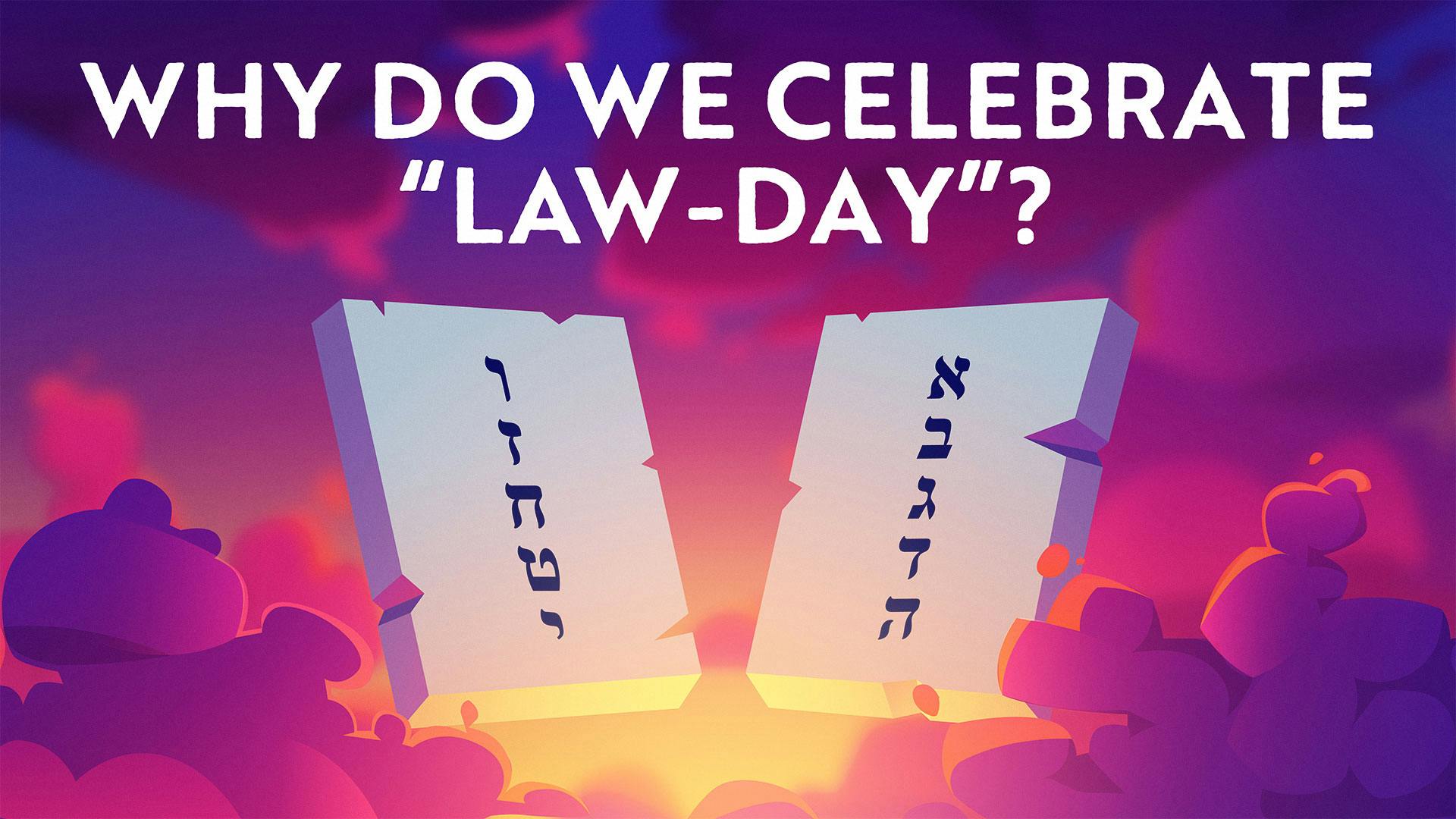
Shavuot Customs & Laws: What's So Exciting About Getting A Bunch Of Laws?
Shavuot celebrates Revelation at Sinai & the giving of the Torah – but what's so joyful about laws? Is it really worth celebrating a list of things we can't do? Learn more here!
Part 1 of 5 • 13 min
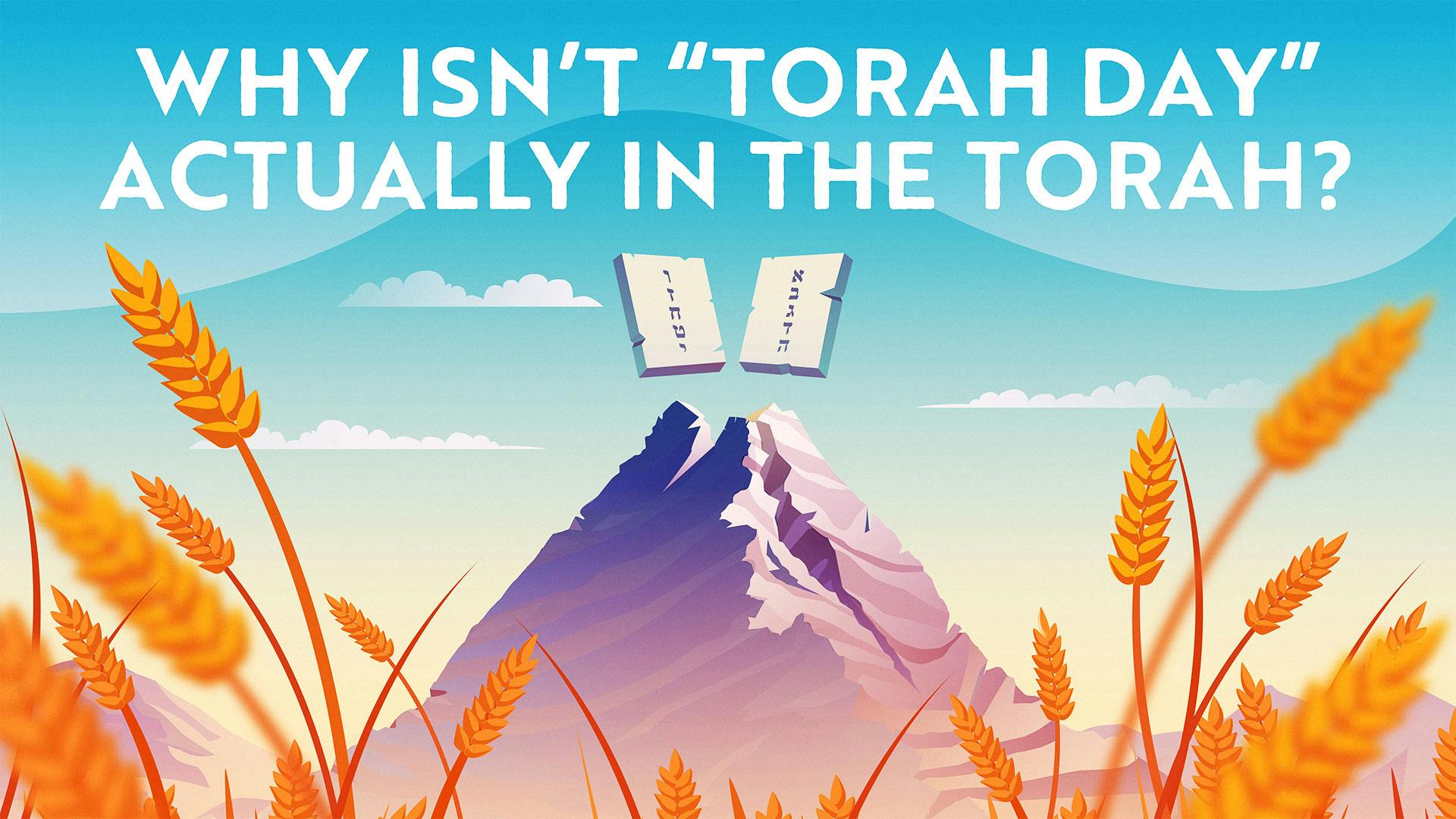
Shavuot’s Origin & History
The Torah seems to speak of Shavuot as a harvest holiday, but the Rabbis conceive of it as the time to celebrate the Giving of the Torah. Which one is it? In this series, Rabbi Fohrman shows that the two actually complement each other to bring deeper, relevant meaning to Shavuot.
Part 1 of 6 • 6 min

Pre-Shavuot Learning With Rabbi Fohrman 2022
Join Rabbi Fohrman in his pre-Shavuot learning event and get ready for the holiday.
2 hours, 8 min
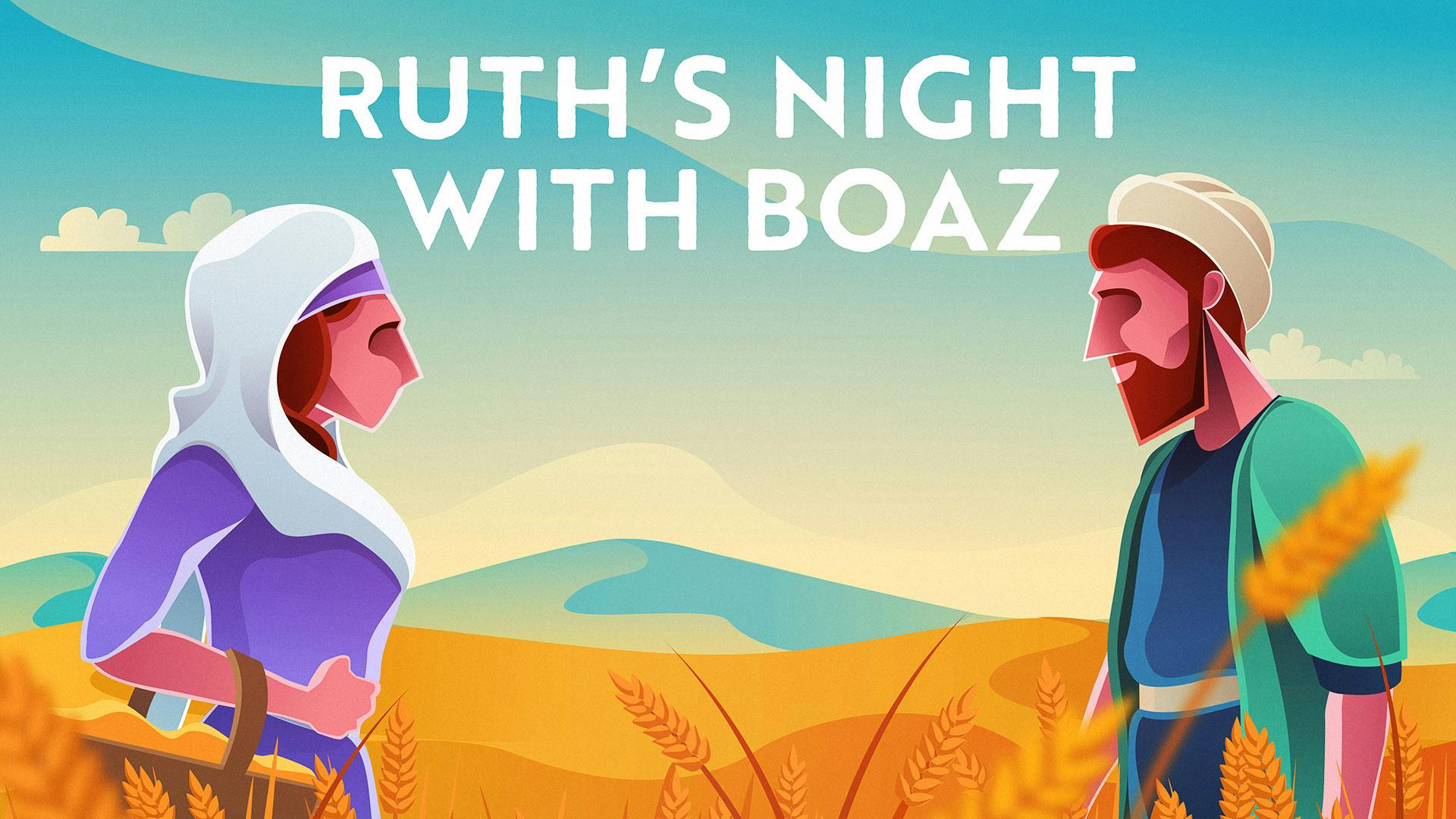
Did Ruth Seduce Boaz?
We don’t often talk about how the story of Lot and his daughters is a little risqué for Biblical literature. But looking back at similar illicit stories, of Yehuda and Tamar and Boaz and Ruth, a transcendent lesson emerges. Instead of sly sensuality defining the story, Rabbi Fohrman finds a redemptive love and kindness within the text, shedding new light and understanding on the concepts of kindness and recognition.
Part 1 of 4 • 11 min
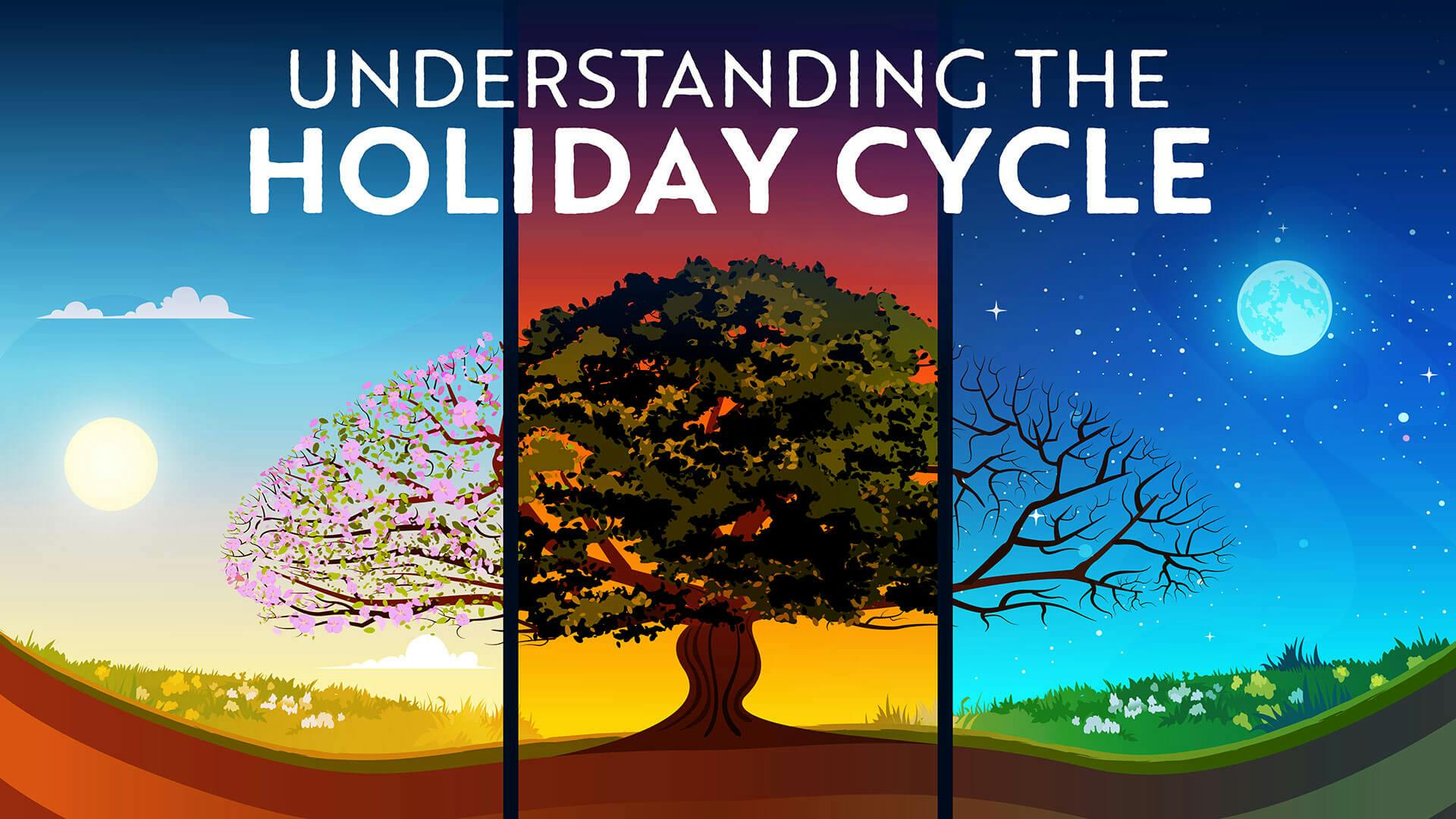
The Deep Connection Between The Biblical Holidays
There are several holidays mentioned in the Bible, including the Three Pilgrimage Festivals: Passover, Sukkot and Shavuot. What makes these days more significant than any other holiday? The Bible seems almost elusive when describing these holy days. Join Rabbi Fohrman as he uncovers the secret theme that permeates these days, allowing a deeper understanding of the holiday cycle to emerge.
Part 1 of 5 • 54 min

An Epic Understanding Of The Jewish Holidays
When it comes to the Jewish holidays, we tend to relate to each one on its own. But often, we miss the bigger picture. The Torah actually talks to us in epic, sweeping terms about the very idea of a “holiday,” about how to understand the holidays and find meaning in them. Come into the text and get ready to unravel the Torah's secret about the true meaning of Sukkot, Pesach, and Shavuot.
12 min
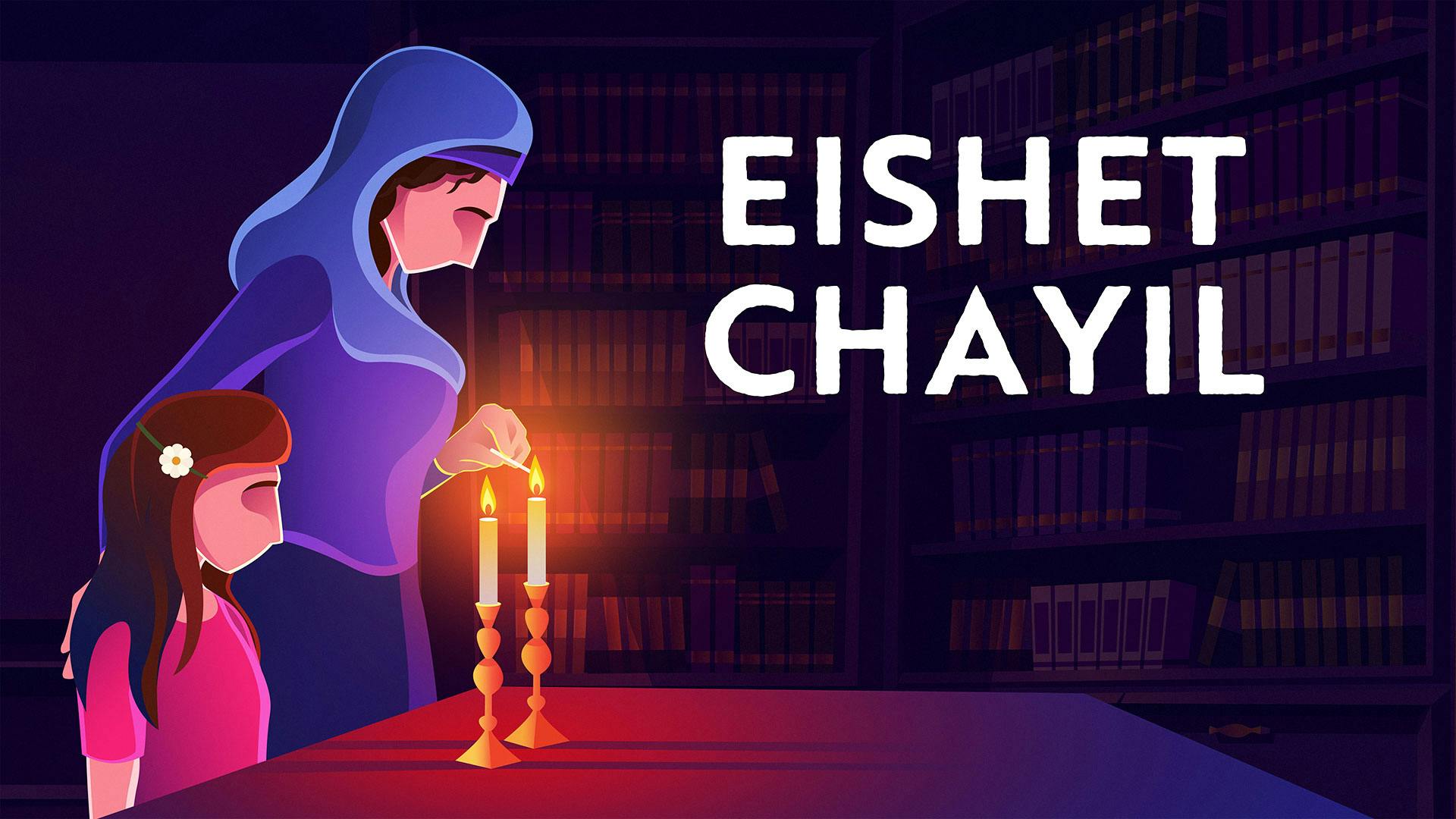
Eishet Chayil: What Does Feminine Valor Look Like?
Eishet Chayil is the ode to the feminine, written by King Solomon in the final chapter of Proverbs, and sung every week, at the Friday night Shabbat table. For generations, many of us have been singing this song every Friday night at our Shabbat table, singing to the woman of the house and extolling her praises. Rabbi Fohrman recorded this live audio in Alon Shvut, Israel, in which he aims to understand the essence of what a "woman of valor" really means. \n\n For indeed, the very notion is odd. Valor is often thought of as a masculine virtue – signifying bravery, on the battlefront, or otherwise. And yet, King Solomon uses this phrase when describing what he calls the most important of feminine traits. Why? Rabbi Fohrman argues that Solomon, in the song of Eishet Chayil, hides a theory of a vision of unique feminine power and strength.
2 hours, 4 min
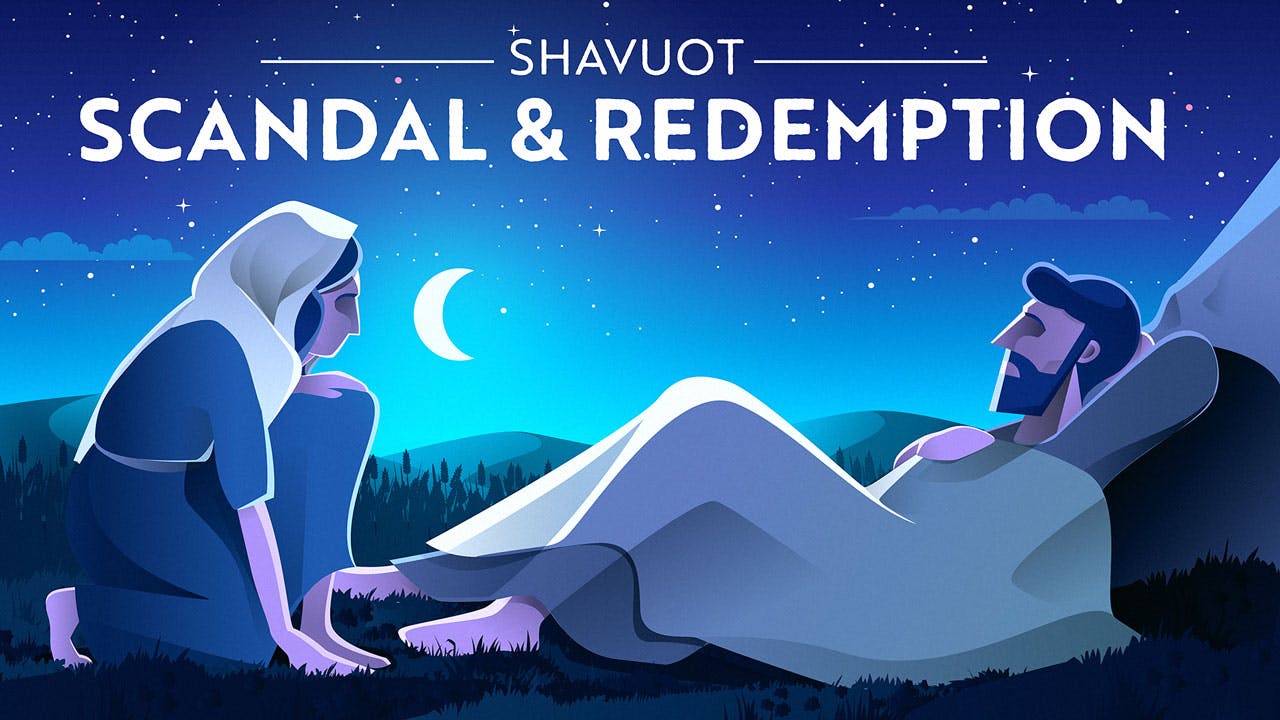
Lot, Judah, & Ruth: Three Interconnected Yibum Stories
What is the theme that ties together the seemingly disconnected stories of Lot and his daughters, Judah and Tamar, and Ruth? The obscure Biblical law of yibum, or Levirite marriage, has a lot to do with it. Rabbi Fohrman argues there is an important connection that hints at a generational saga of redemption.
Part 1 of 7 • 1 hour, 9 min

The Meaning of Hallel
We add the prayer service of Hallel on holidays, but what exactly are we saying? Is it just a collection of Psalms? In this course, Rabbi Fohrman argues that not only are we learning what it is to be a servant of God, but we are also discovering the origins of the nation of Israel.
Part 1 of 7 • 56 min
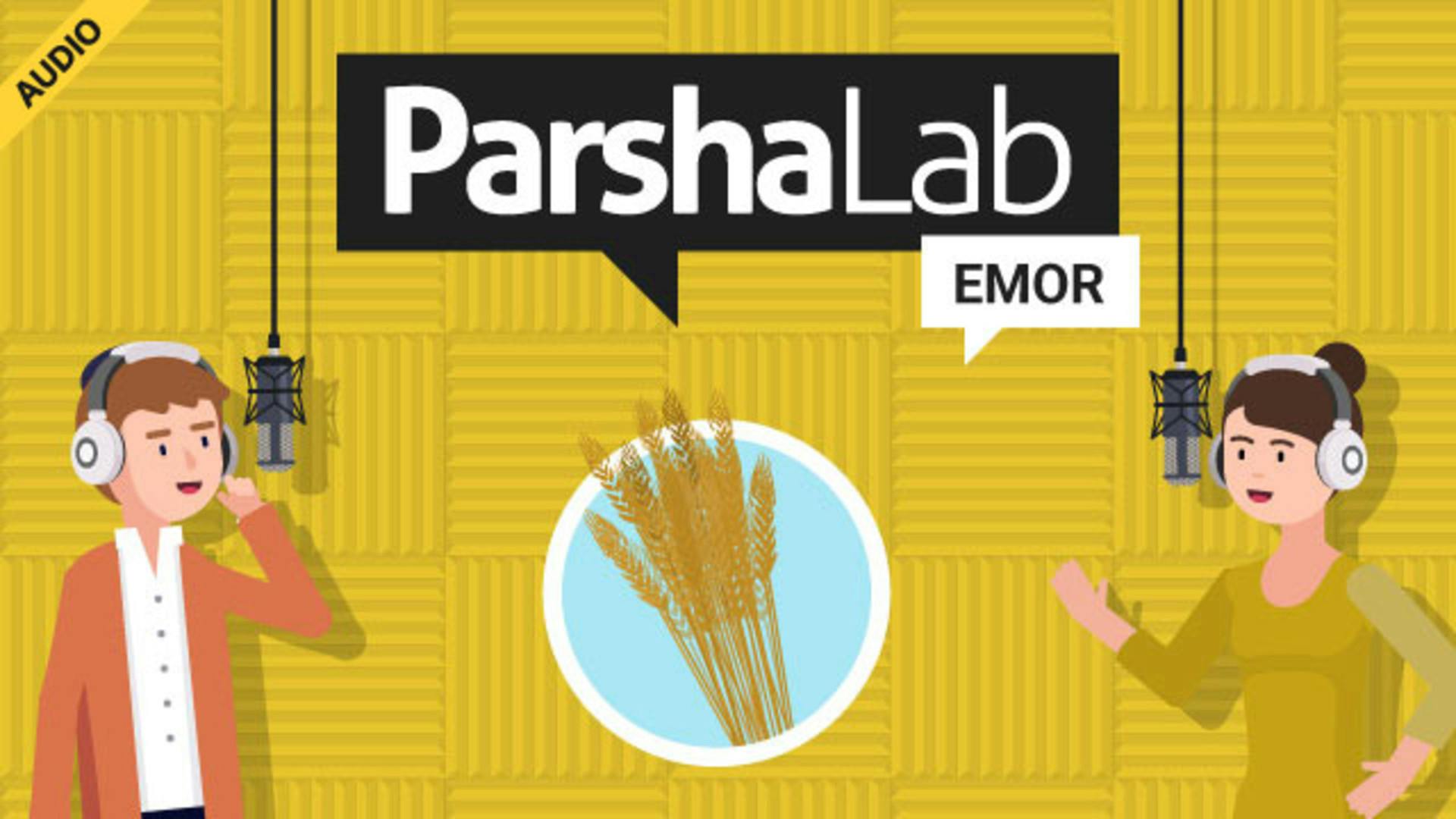
What Does The Omer Offering Have To Do With The Jewish Holidays?
In Parshat Emor, we read through the laws and details of the Biblical holidays. But this section also includes a few other laws – like the Omer offering, and agricultural laws like Pe’ah and Leket. Why are those laws included with the Jewish holidays? Join Rabbi Fohrman and Rivky as they re-examine the Emor text, and discover its subtle shared language with a few other texts of the Torah.
27 min
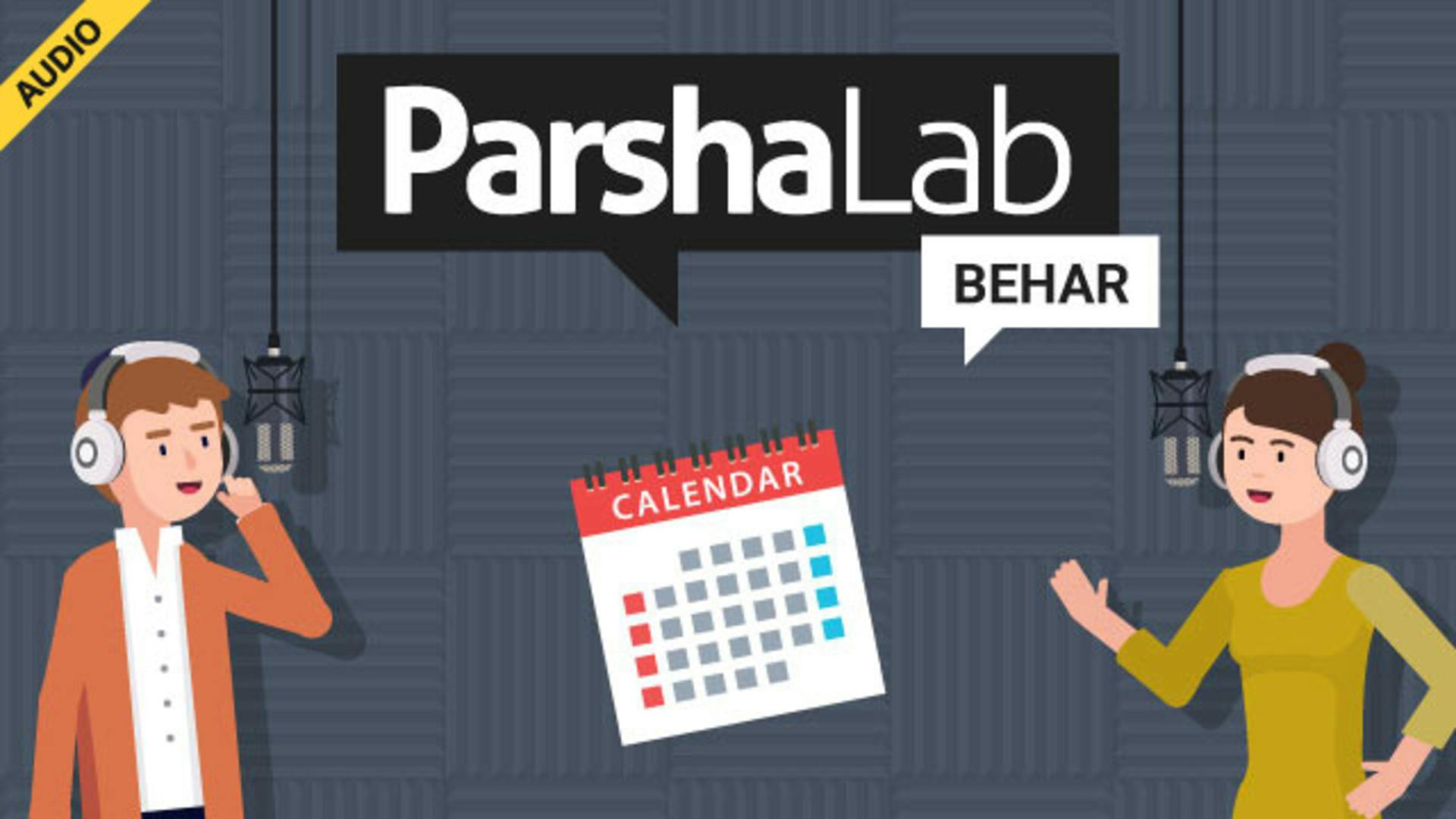
Shemittah, Yovel And… Mount Sinai?
This week’s double parsha, Behar-Bechokotai, focuses on the agricultural cycles of Shemittah and Yovel. Strangely enough, the language here carries echoes of some of the themes of last week’s parsha, and even seems to take us all the way back to Mount Sinai. Are these ideas somehow connected? What could the revelation at Sinai have to do with agricultural laws in the land of Israel? Join Rivky Stern and first time co-host Ami Silver as they explore these fascinating connections and the implications for what it means to live together with God in this world.
33 min
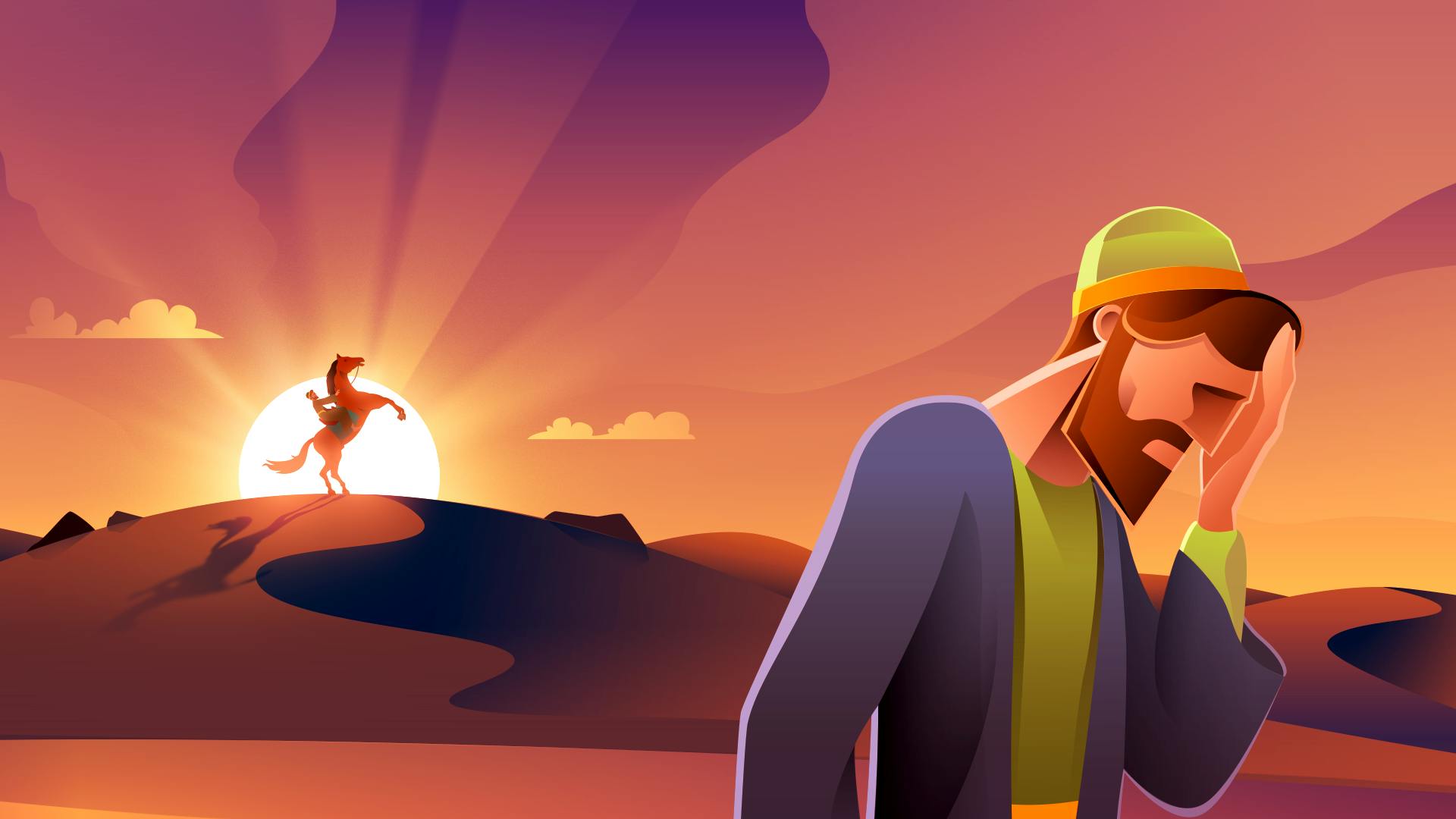
Acher: He Who Must Not Be Named
Can we ever do something so bad there’s no coming back from it? In this series, Rabbi Fohrman grapples with the nature of atonement through a close reading of the story of Elisha ben Avuya, the famous apostate “Acher,” and his fiercely loyal student, Rabbi Meir.
Part 1 of 5 • 25 min

Hidden Dimensions Of The Book Of Ruth
Rabbi Fohrman takes a closer look at the Book of Ruth, uncovering new ways in which Ruth's story is much deeper than it appears.
1 hour, 40 min
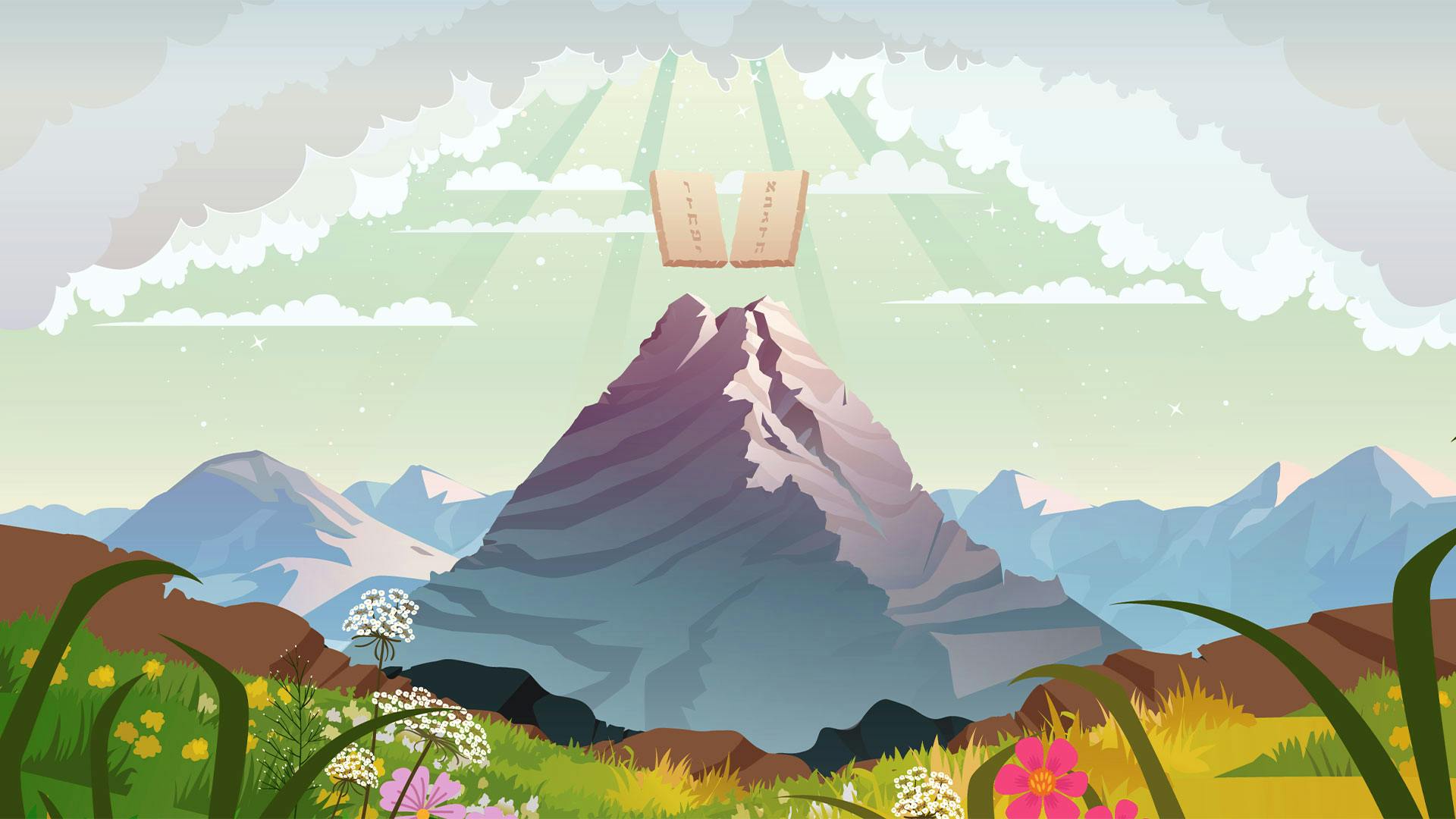
Study Guide for the Book of Ruth
This guide for Megillat Ruth will take you to a deeper, and more meaningful understanding of this seemingly-ordinary text. Rabbi Fohrman’s study guide illuminates why this tale of marriage, death, and daily life in ancient Israel is nothing short of an origin story for Jewish nationhood — and the perfect chronicle for Shavuot.
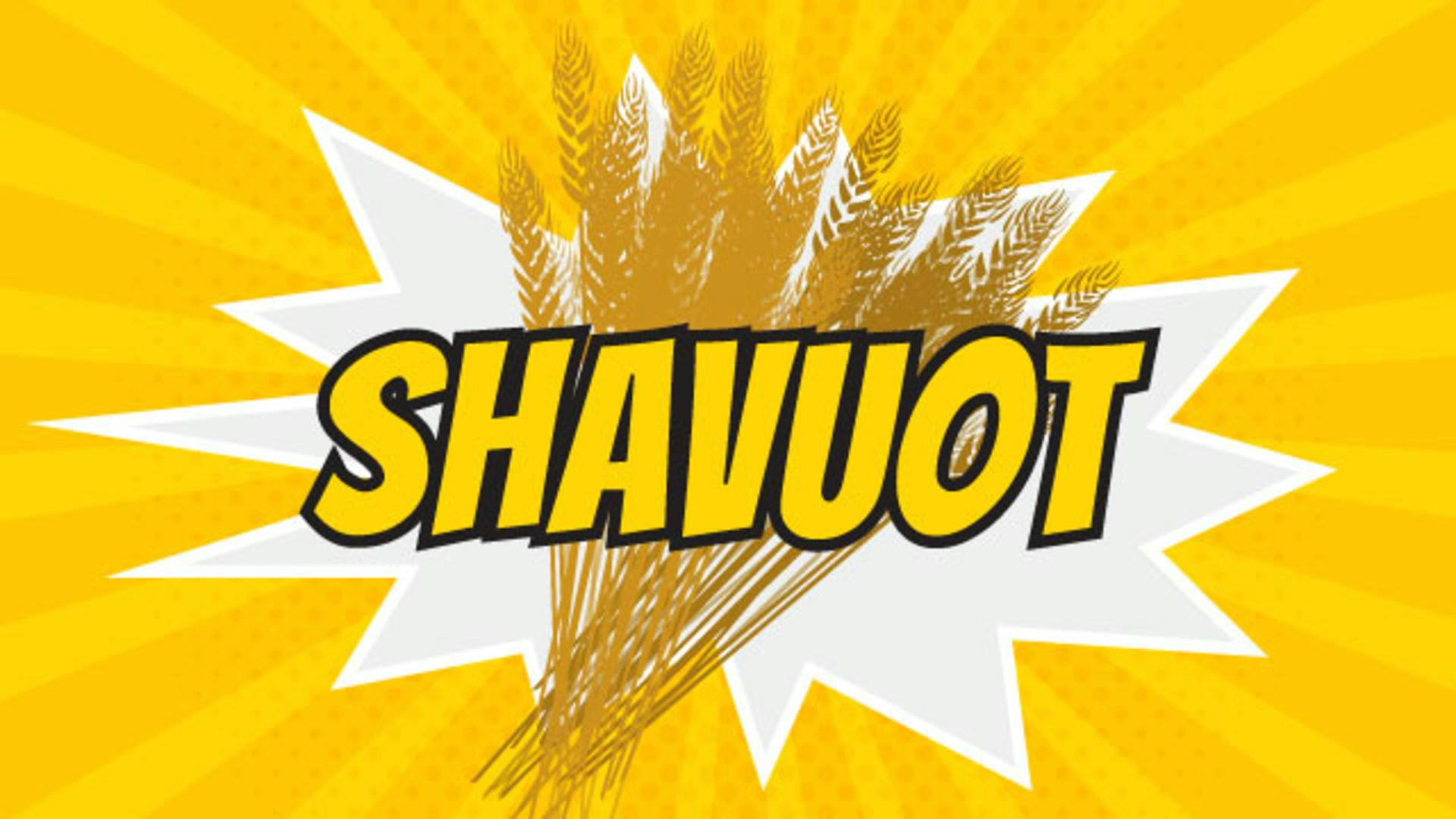
What Is Shavuot? 101 Guide
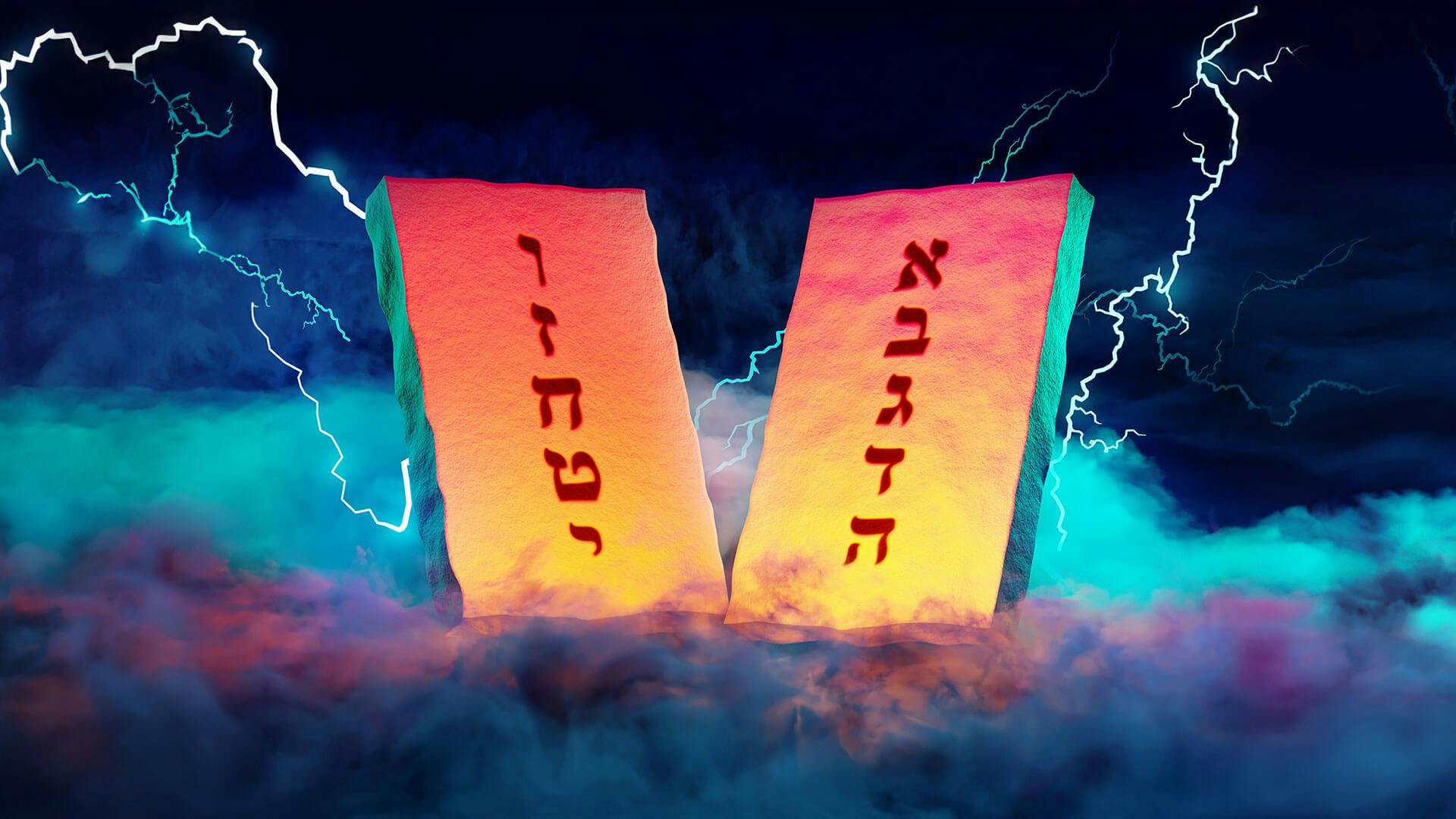
The Ten Commandments Readers Guide
Why do we make such a big deal about the Ten Commandments? This guide explores the fascinating structure and the tremendous meaning packed into these few verses.
Fast of 17 Tammuz
For additional resources, check out the Fast Of Tammuz home page here.
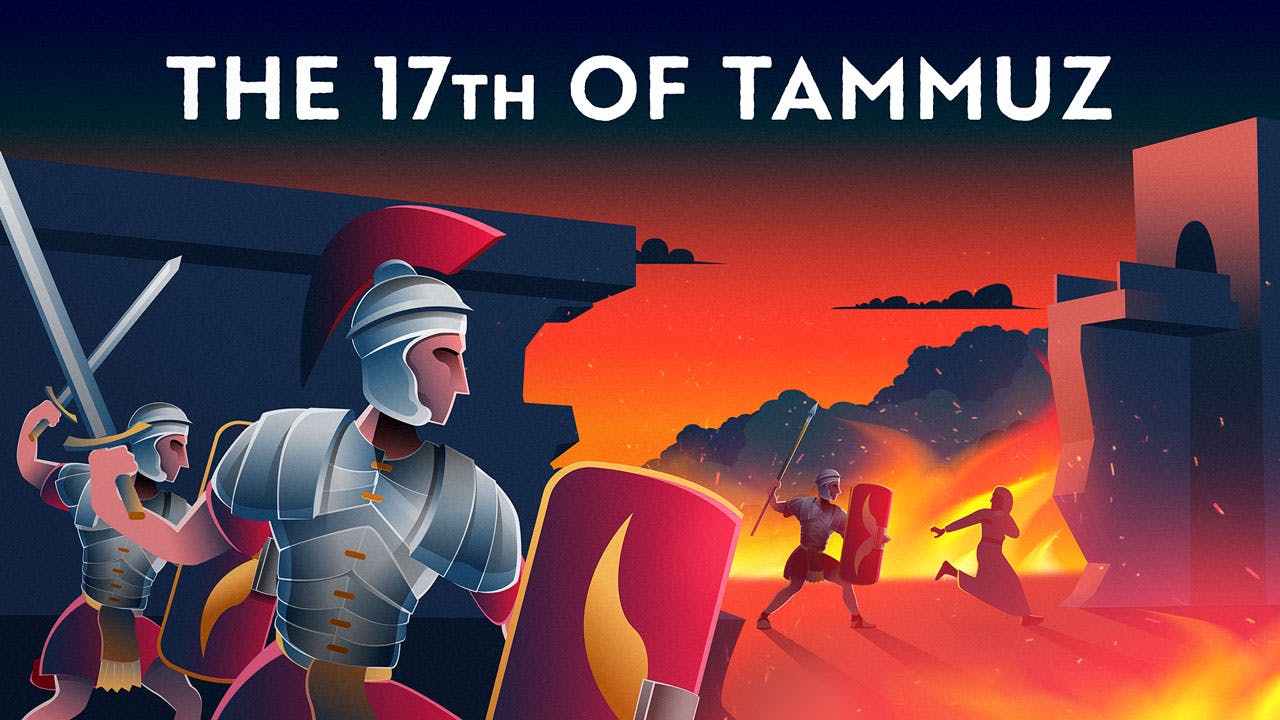
The Meaning Of Tzom Tammuz
17 Tammuz is the tragic start to the Three Weeks. According to our Sages, not only is it the day in which the walls of Jerusalem were shattered, four other major calamities happened which affected the Jewish people. What is their common link, and what does it tell us about how to think about this day?
13 min
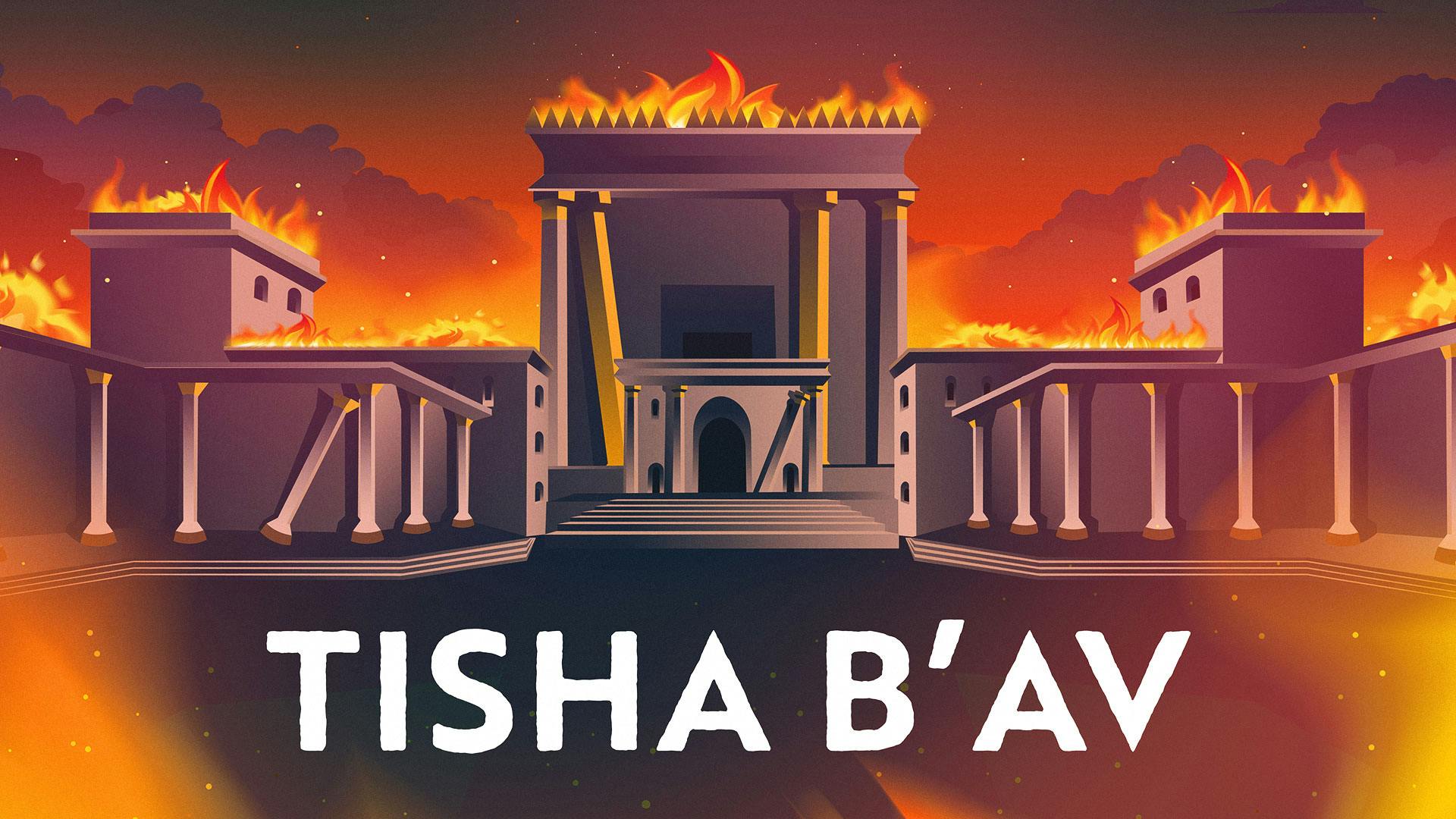
Tisha B'Av
Why do we mourn on Tisha B'Av? How can we truly grieve such ancient tragedies? Make your mourning meaningful and learn more here!
Tisha B'Av
For additional resources, check out the Tisha B'Av home page here.
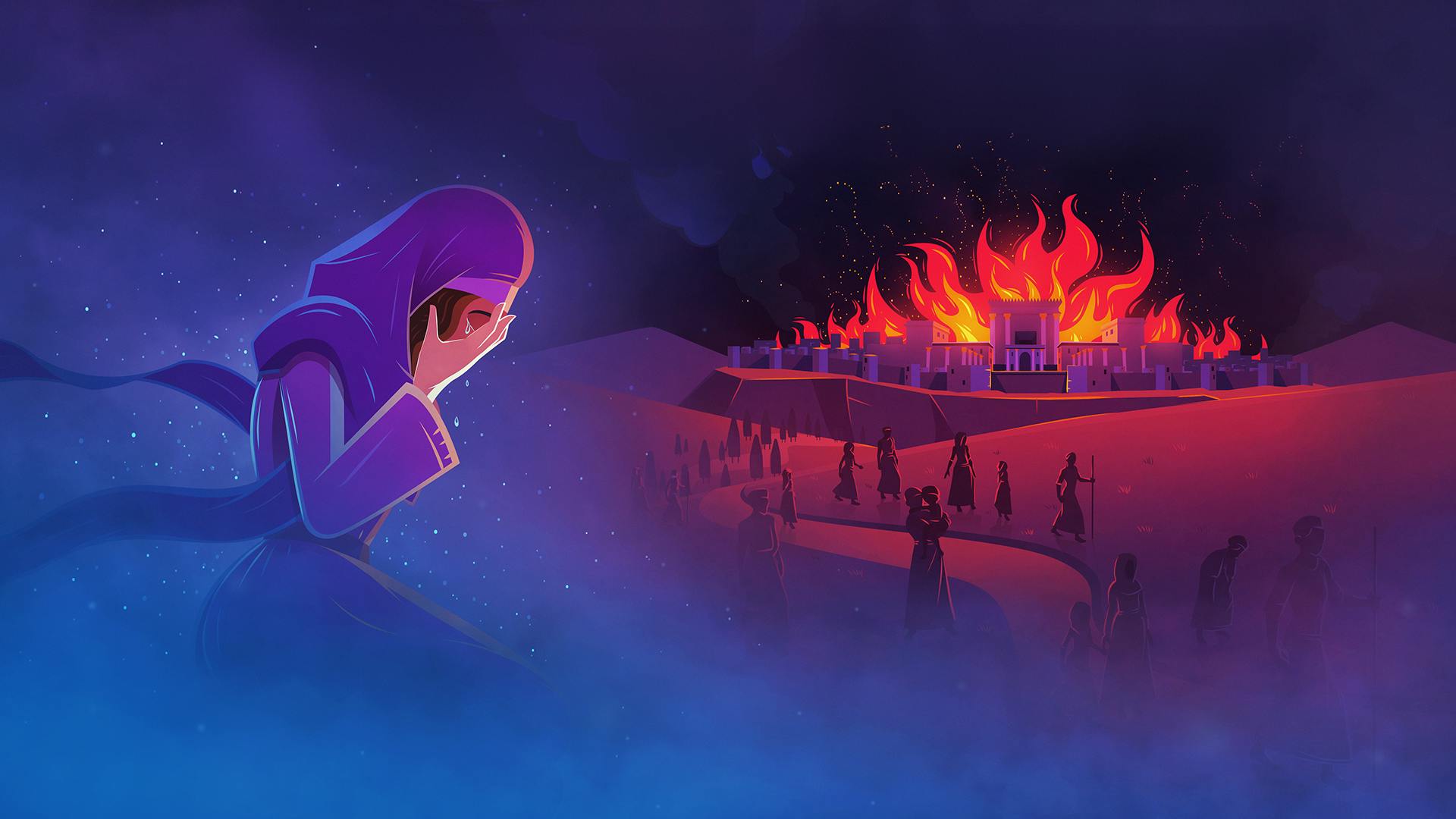
Reversing Tisha B’Av: How To Actually Rid Ourselves Of Sinat Chinam
We sit on the floor, we cry – but sometimes it feels like we’re just going through the motions. Rachel Imenu shows us a deeper way to mourn — that actually changes us, that banishes sinat chinam, baseless hatred, from our hearts.
Part 1 of 5 • 8 min
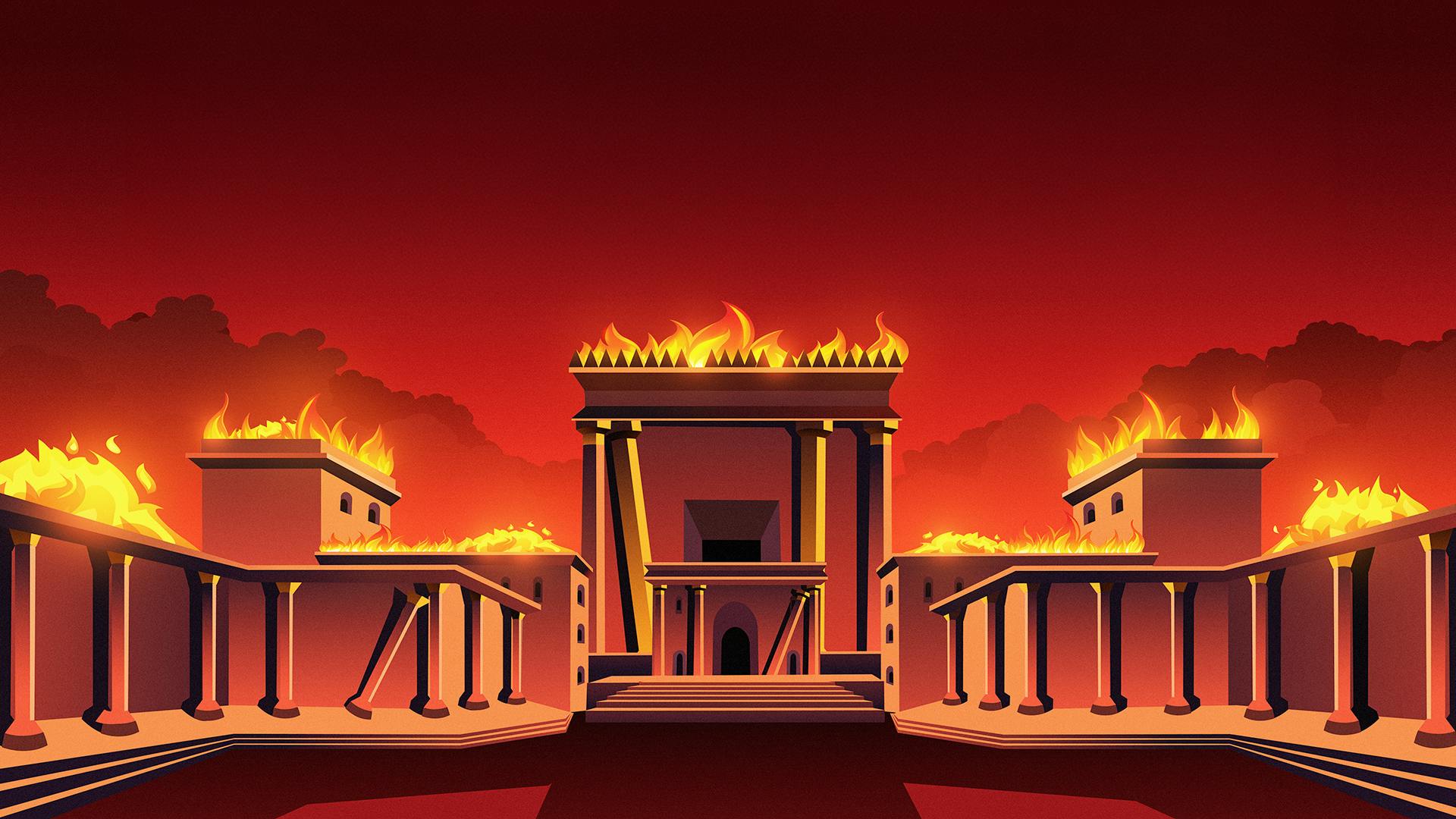
How Am I Supposed To Appreciate The Loss Of The Beit HaMikdash?
It’s one thing to mourn the suffering of actual people, but how are we supposed to feel genuinely sad over the loss of a building?
Part 1 of 7 • 9 min
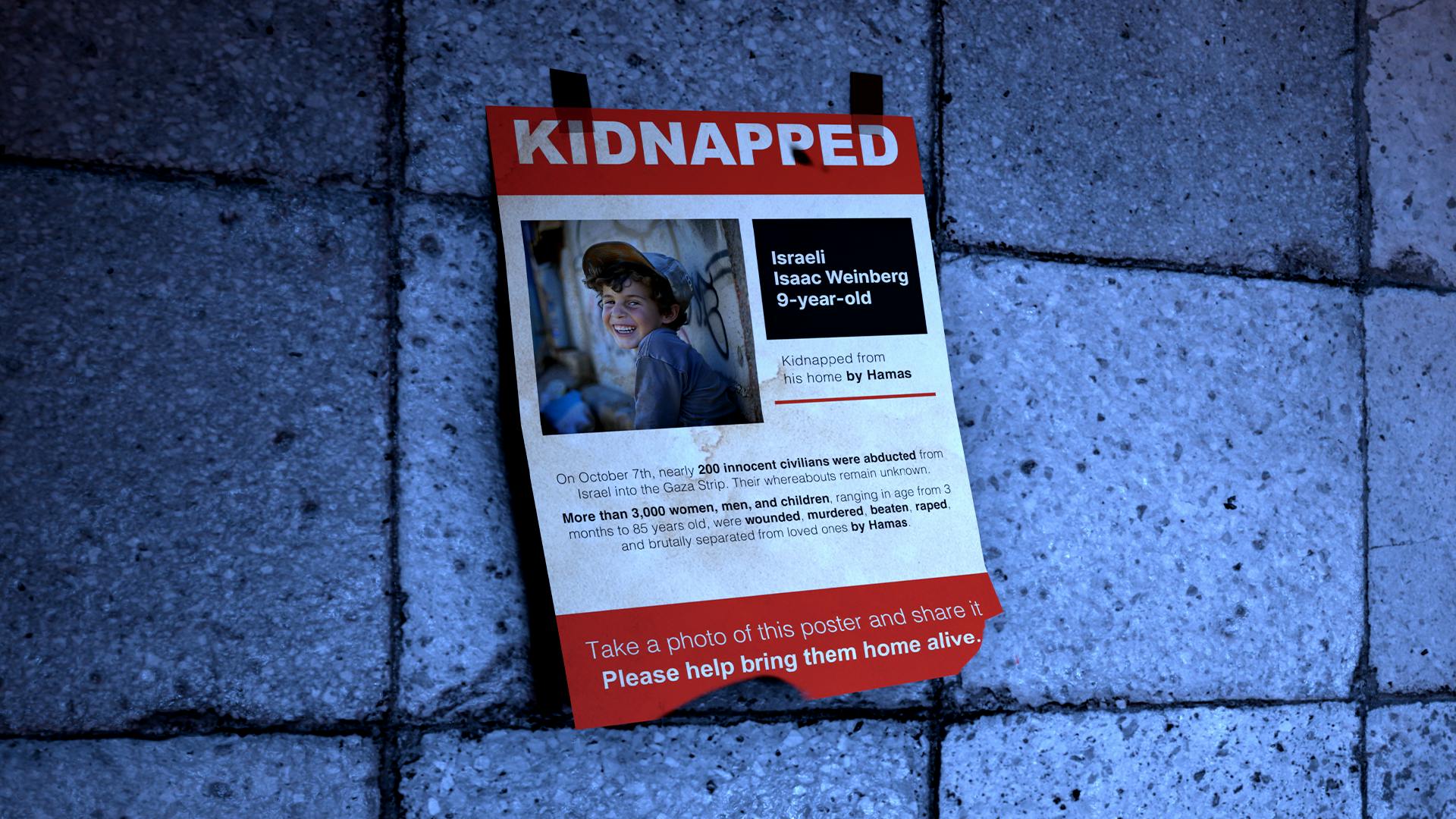
Tisha B'Av After October 7th
How can we transform our mourning into hope? One year since October 7 discover how our past can help us navigate the pain of the present.
Part 1 of 5 • 14 min
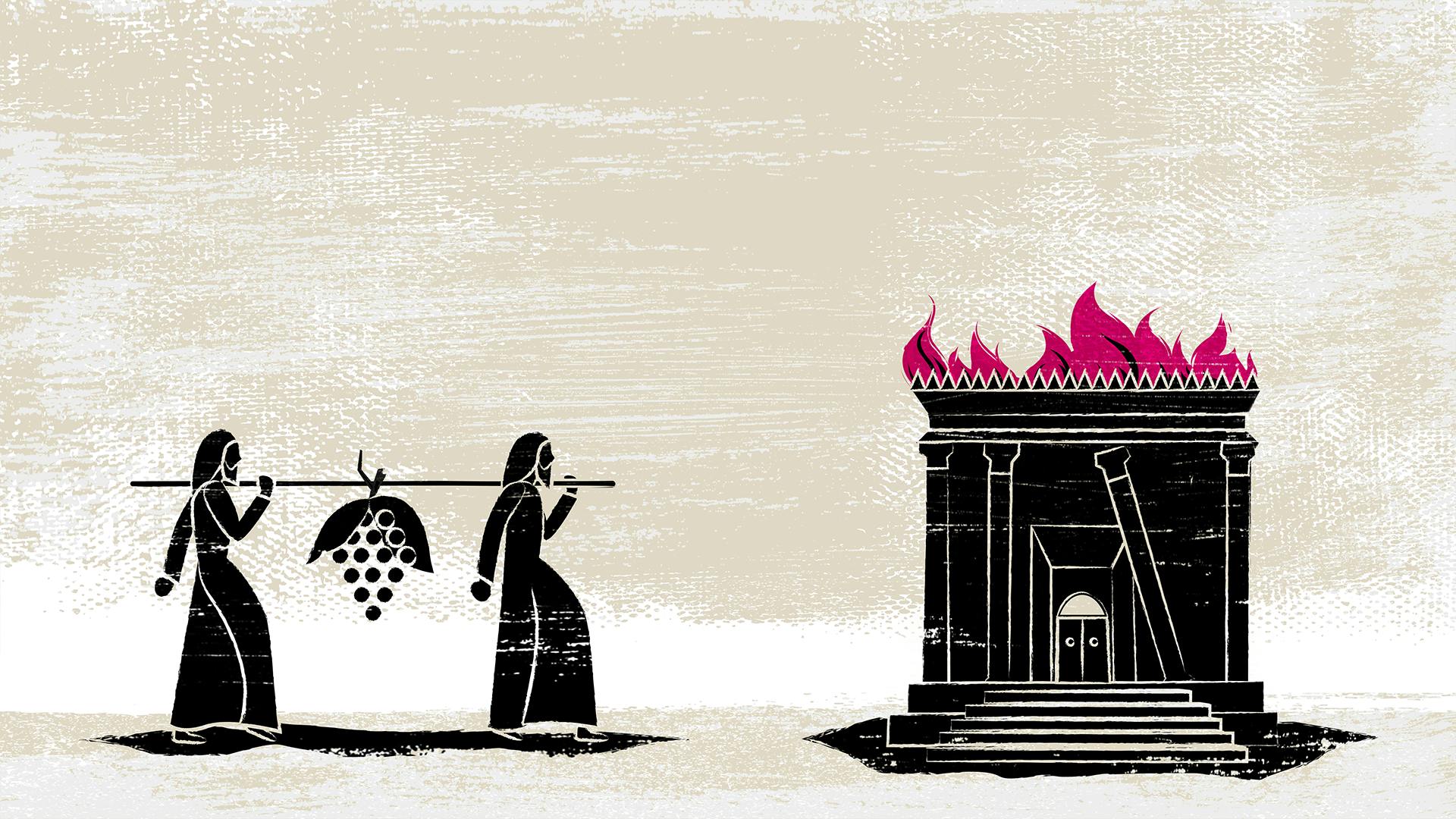
How The Sin Of The Spies Led To Tisha B’Av
The Talmudic Sages tell us that the first great tragedy to occur on Tisha B'Av was the sin of the spies in the desert. How can this seemingly unrelated event help us understand the deeper reasons for the Temples’ destruction?
Part 1 of 6 • 10 min
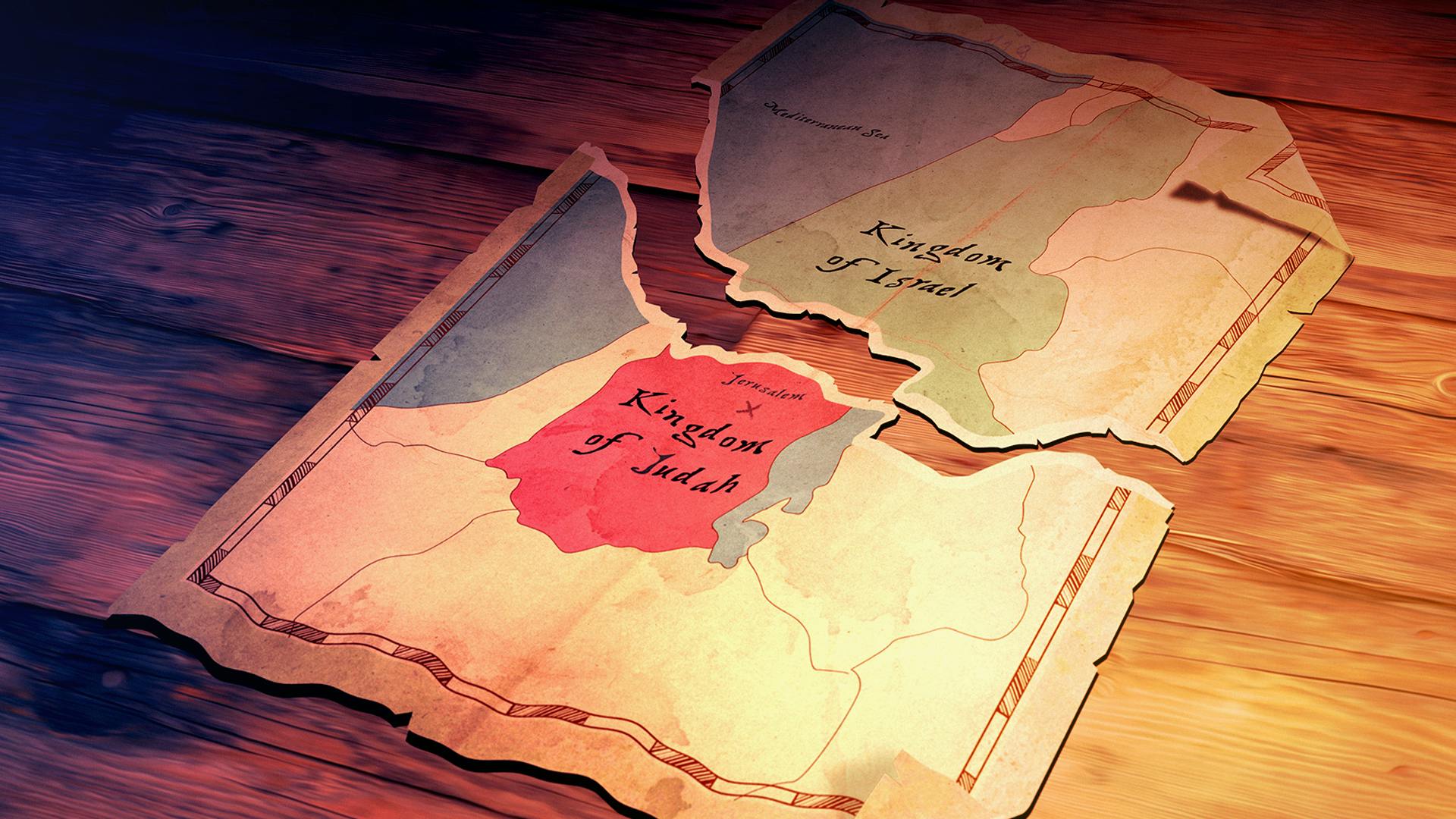
How Israel Split And The Road To Tisha B’Av
God gave King Solomon unprecedented wisdom, which Solomon used to build a glorious kingdom. But just a mere generation later, that kingdom splits and the road to Tisha B’Av begins. Why didn’t God give Solomon the wisdom he really needed… the wisdom to keep Israel united?
Part 1 of 8 • 7 min
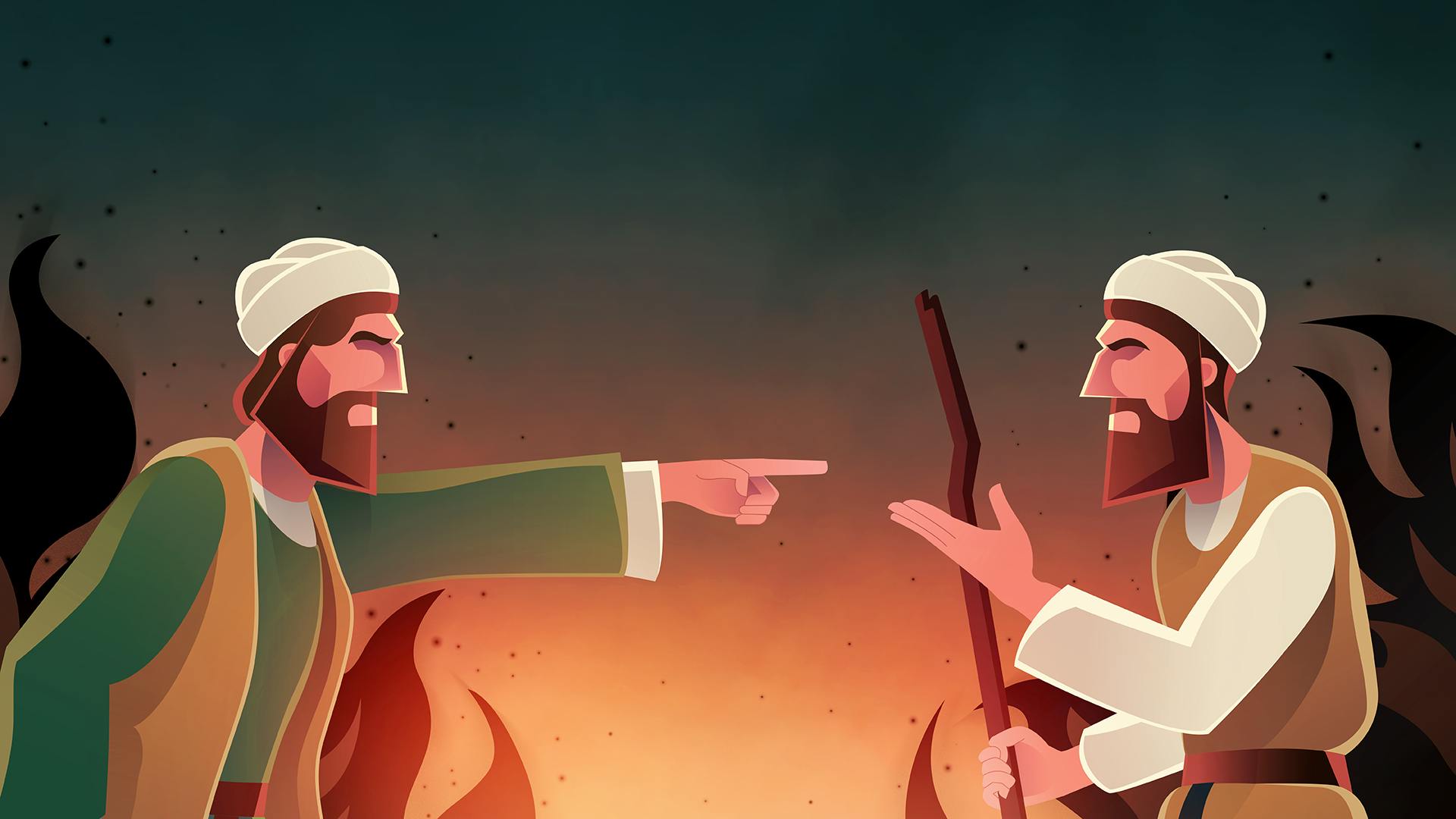
Kamtza And Bar Kamtza: What Is Baseless Hatred, Anyway?
When was the last time that you hated someone for absolutely no reason? Could it be we’ve been misunderstanding the true meaning of “baseless hatred” this whole time?
Part 1 of 5 • 3 min

How The Sin Of The Spies Led To Tisha B’Av
The Talmudic Sages tell us that the first great tragedy to occur on Tisha B'Av was the sin of the spies in the desert. How can this seemingly unrelated event help us understand the deeper reasons for the Temples’ destruction?
Part 1 of 6 • 10 min
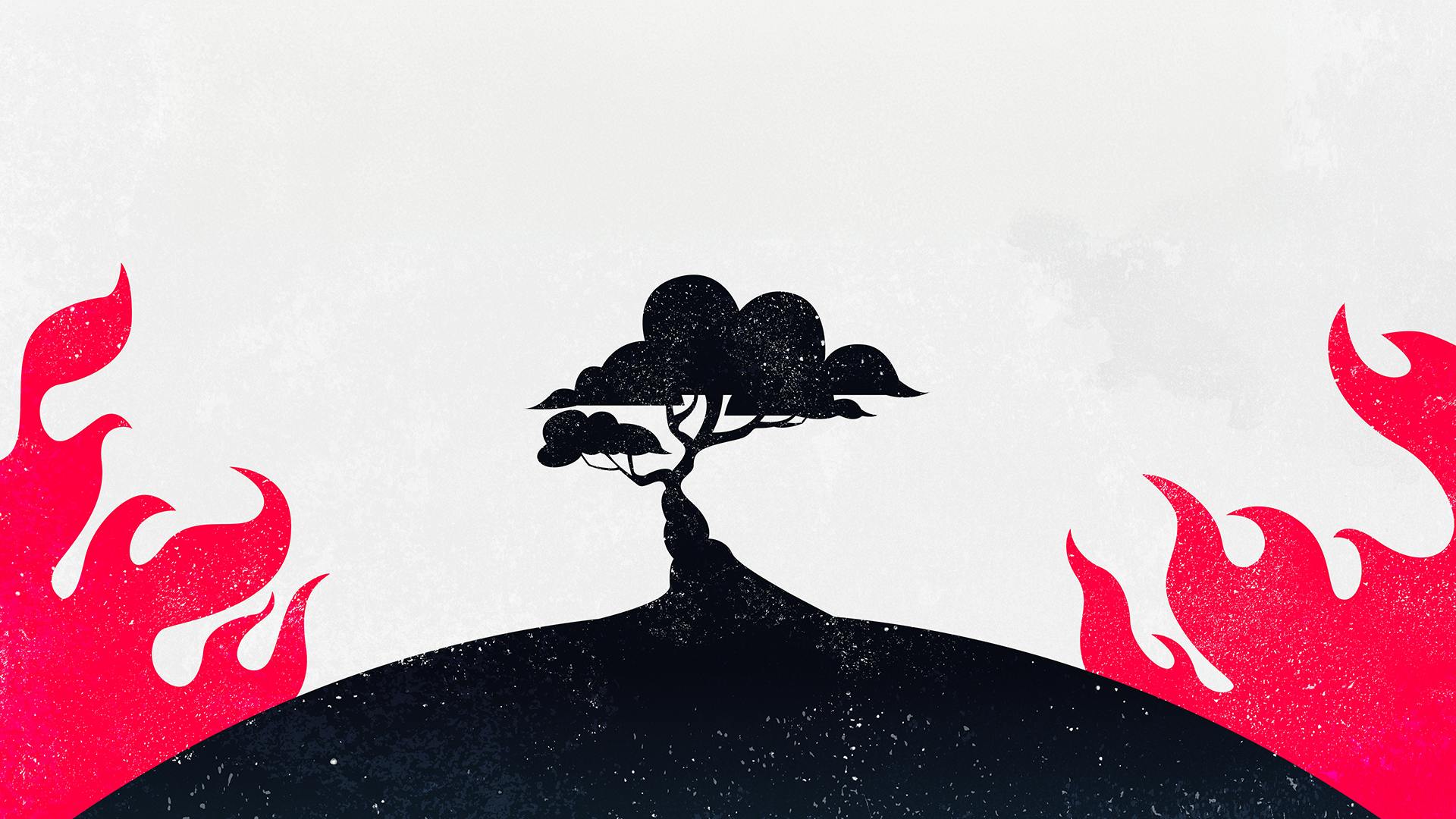
Megillat Eicha And Its Secrets
What does Eicha have to do with the garden of Eden? At first glance, not much. But if we look closer, it turns out that the Megillah is actually echoing language first used in the beginning of Genesis. Uncovering the deeper meaning of this connection can shift the way you think about Tisha B’Av.
Part 1 of 2 • 57 min
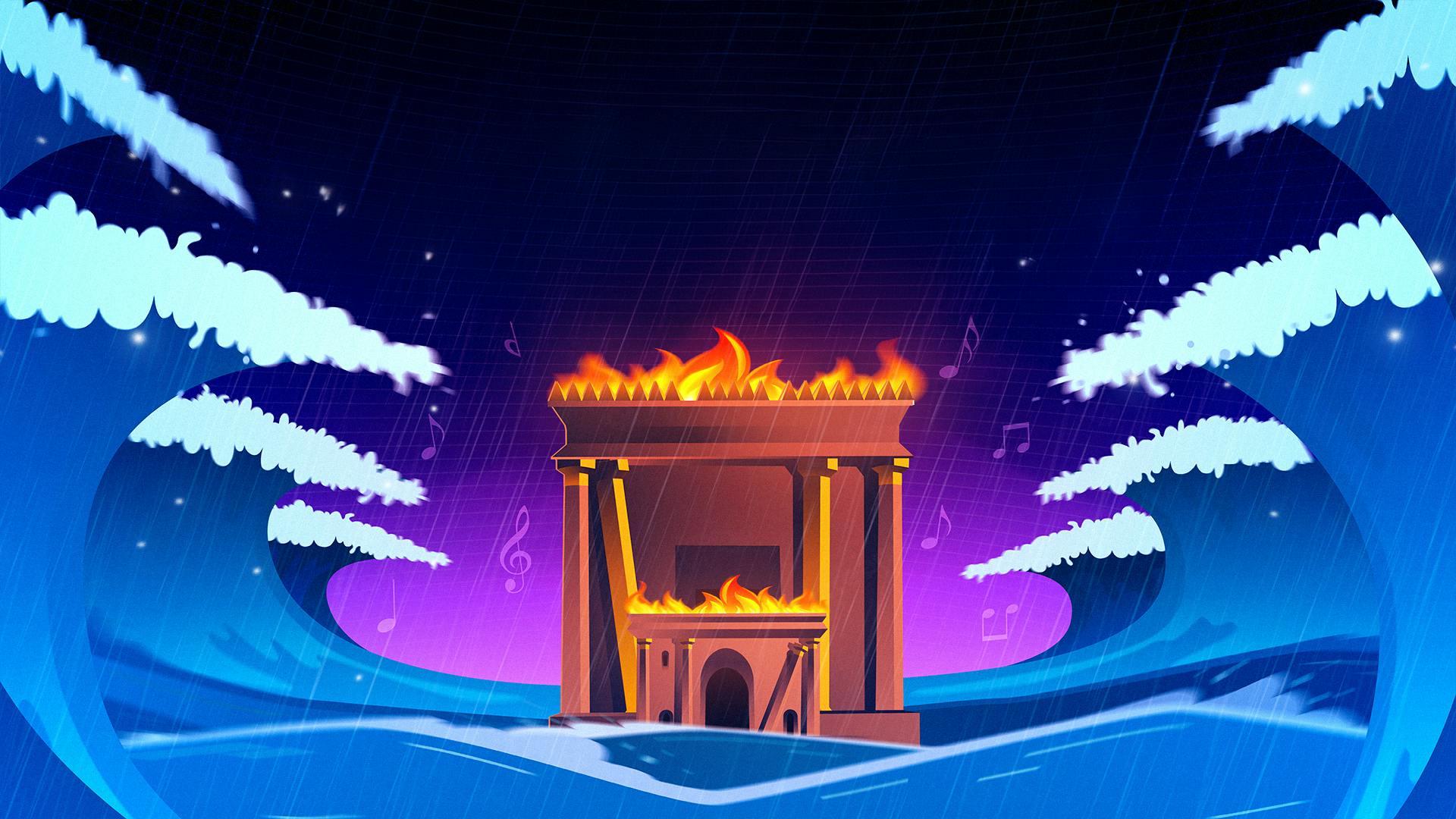
The Mysterious Connection Between Mashiach And Tisha B’Av
A few generations before the destruction of the Temple, there was a king who, the Talmud tells us, could have been the Messiah. How did the Jewish people get so close to redemption, only to end in exile? If we can answer this question, perhaps we can come to understand the power of our own potential and to reshape our destiny.
Part 1 of 7 • 12 min
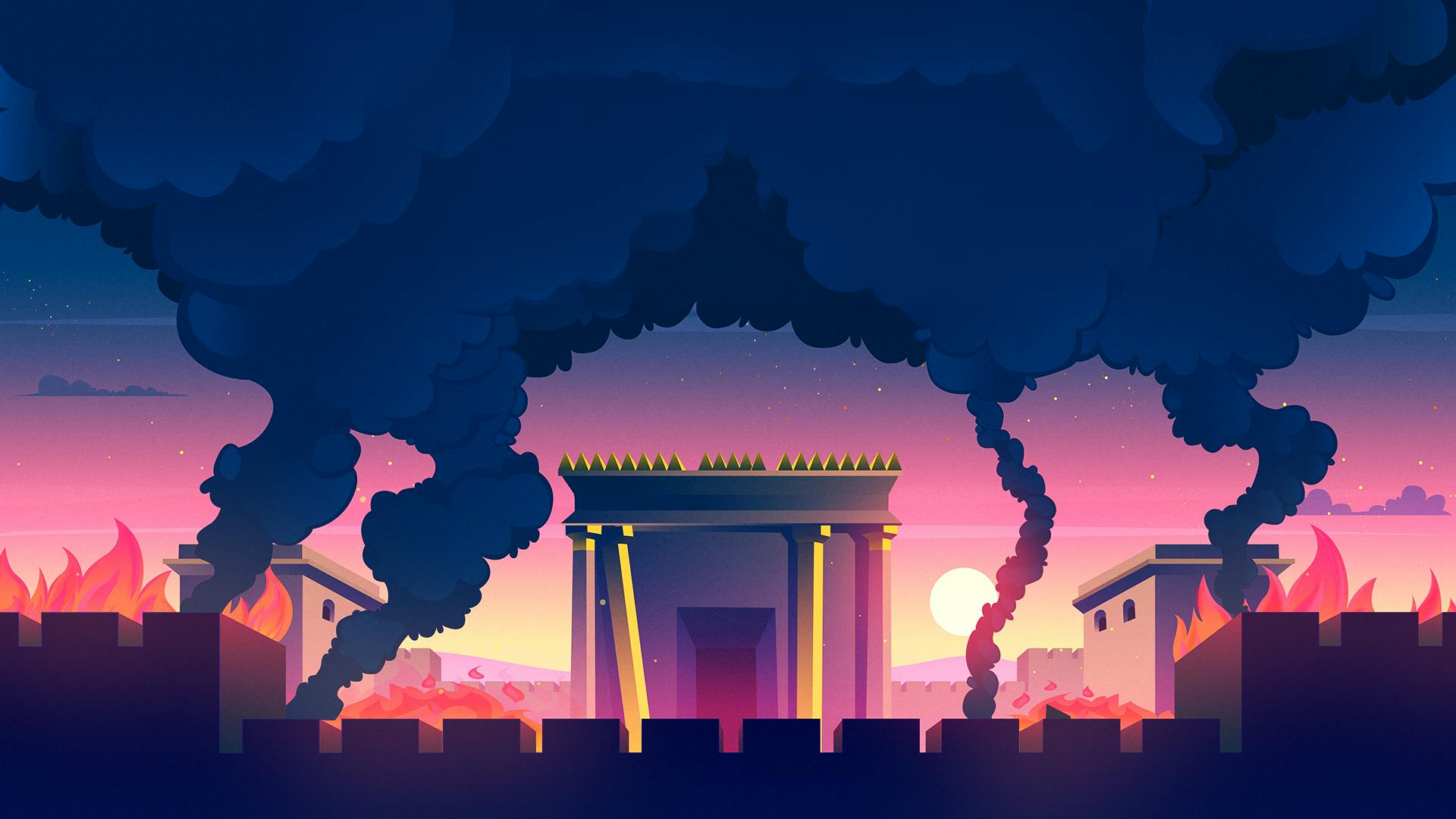
Yochanan Ben Zakkai And Yavneh: The Secret Of Jewish Survival
How can we feel connected to the destruction of Jerusalem and the Temple when these tragedies happened thousands of years ago? The answer may lie in understanding what still links us to these past events and how, against all odds, exile didn’t put an end to the Jewish people. This story starts in a place called Yavneh.
Part 1 of 5 • 10 min
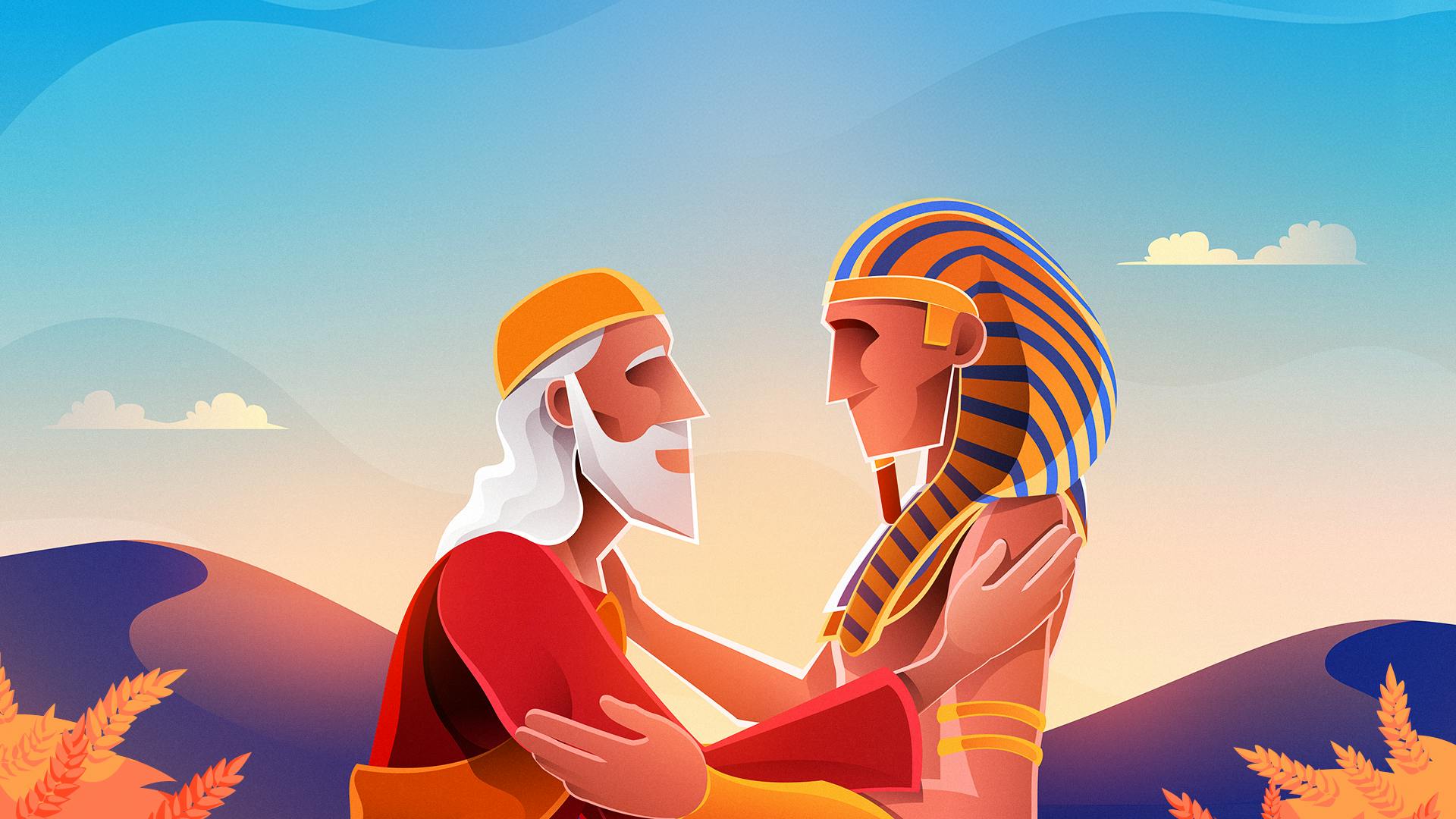
What Jacob And Joseph Teach Us About Returning Home
Can mourning bring us closer to redemption? This series dives deep into a connection between Shir Hamaalot (Psalm 126) and the story of Jacob and Joseph to uncover the connection between the depths of grief and unassailable hope.
Part 1 of 6 • 8 min

Acher: He Who Must Not Be Named
Can we ever do something so bad there’s no coming back from it? In this series, Rabbi Fohrman grapples with the nature of atonement through a close reading of the story of Elisha ben Avuya, the famous apostate “Acher,” and his fiercely loyal student, Rabbi Meir.
Part 1 of 5 • 25 min
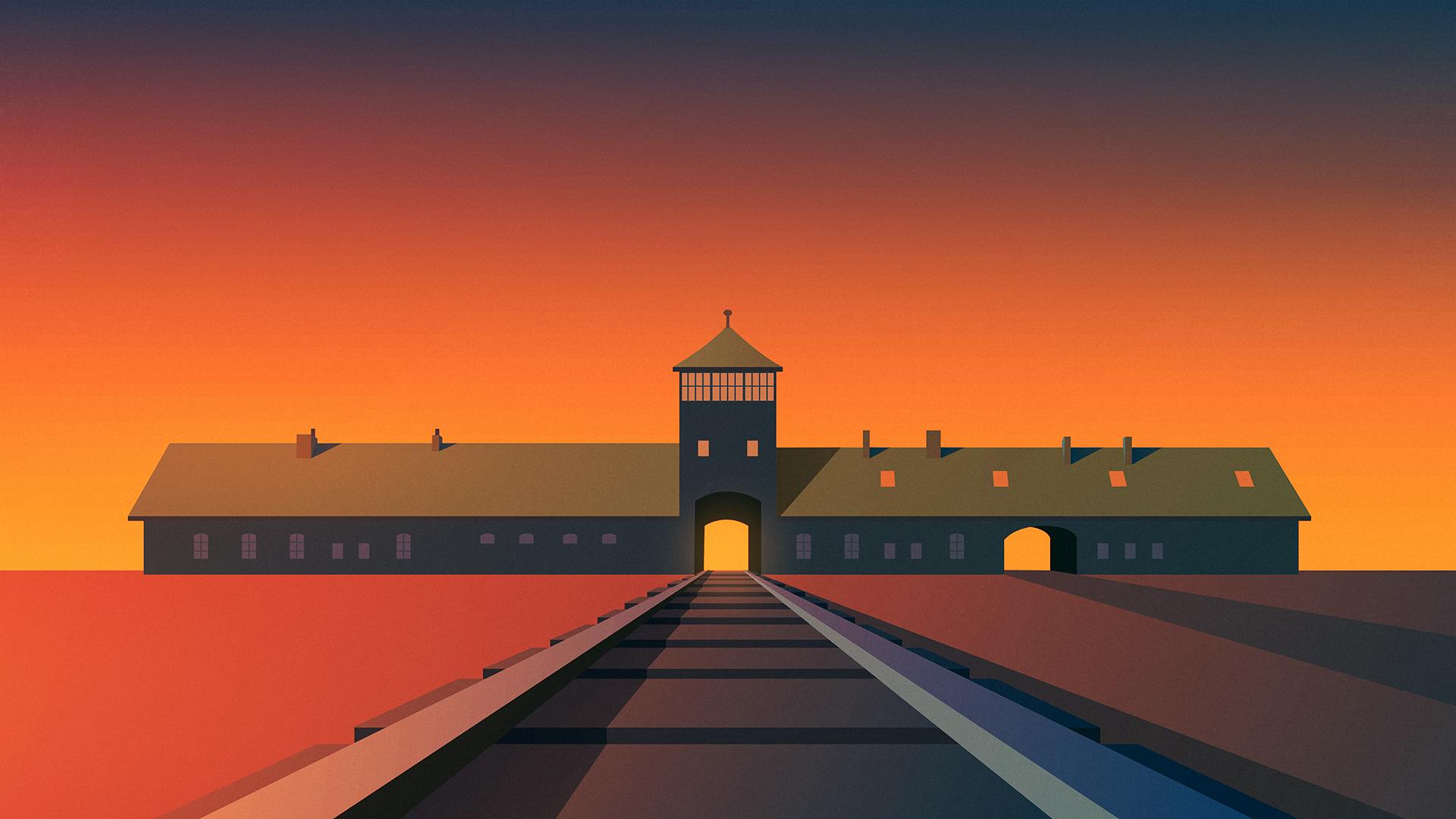
Of Soldiers And Slaves: Divine Justice In The Face Of Great Human Evil
What can we expect of God, by way of justice, in the face of great human evil? That question was always pertinent, perhaps, throughout history -- but in the shadow of the Holocaust, it seems especially pertinent and troubling. Is justice on any level something we should be looking for, from the Almighty? Or: Are these divine secrets that humans really have no business asking about?
2 hours, 58 min
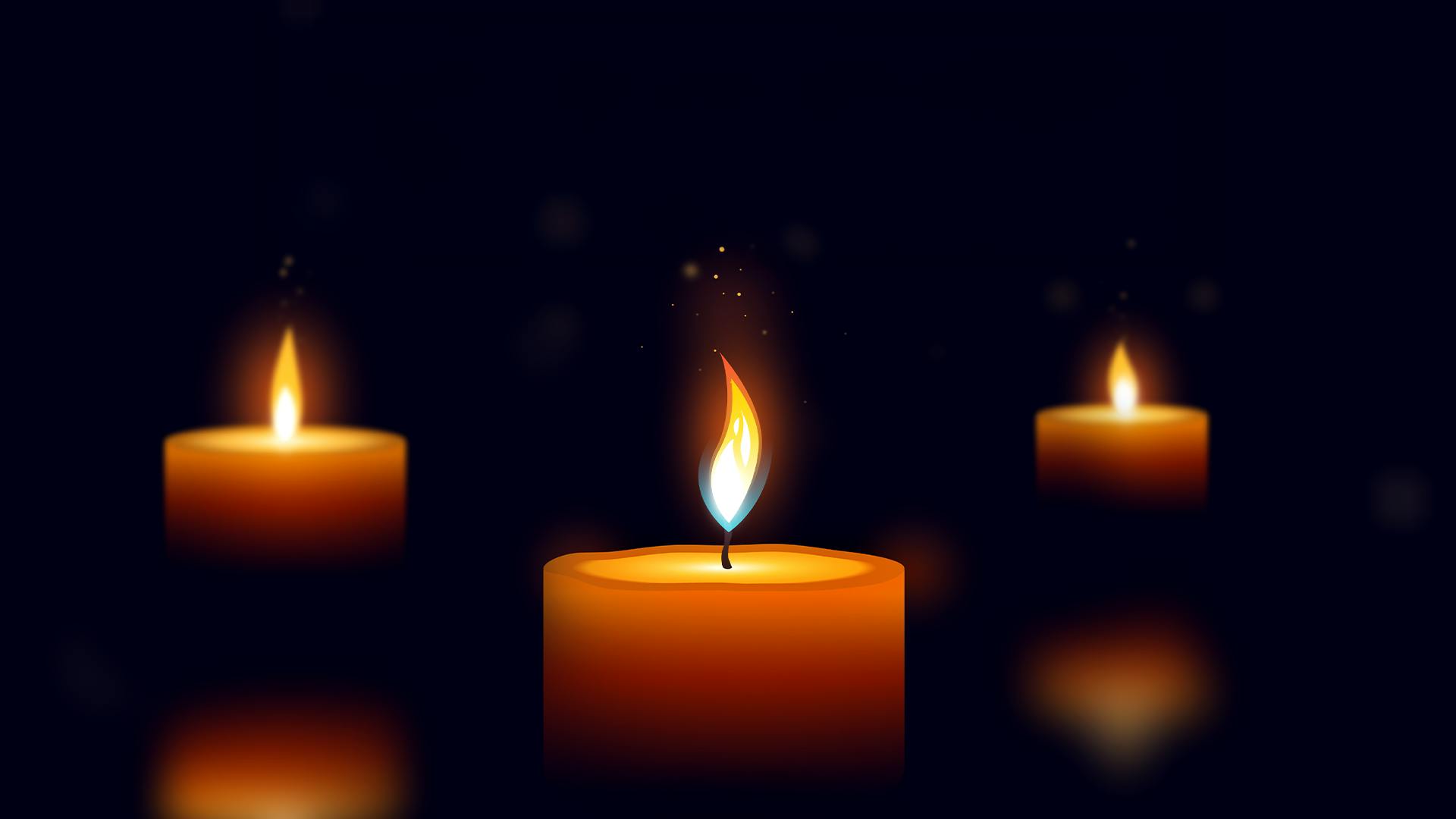
Kinot Live With Rabbi Fohrman
Join Rabbi Fohrman and the Aleph Beta team for in-depth readings and discussions of select Kinot. These videos are live recordings from our annual Tisha B'Av morning "Kinot Unlocked" events. You can catch up on all past years here. We hope these beautiful texts will take on new meanings and allow you to experience a more connected Tisha B'Av.
Part 1 of 4 • 3 hours, 42 min

Megillat Eicha Study Guide
After the devastation of the first Temple, Jeremiah starts his Lamentations with the cry of “Eicha” – “How?”. How was the great Jerusalem destroyed? Rabbi David Fohrman studies the text of Megillat Eicha in search of what this tragedy means to us today.

Tisha B'Av for Kids
Rosh Hashanah
For additional resources, check out the Rosh Hashanah home page here.

Teshuva: Is There a Wrong Way to Repent?
Repentance is an emotional and deeply personal process — yet Judaism has specific laws that govern exactly how we’re supposed to do it. Can there really be a “wrong” way to repent?
Part 1 of 4 • 8 min

Rosh Hashanah: Day of Judgement or Day of Joy?
We’re used to thinking of Rosh Hashanah as a time of trembling in fear before God. But what if we’ve been misunderstanding the essence of the holiday?
Part 1 of 6 • 13 min
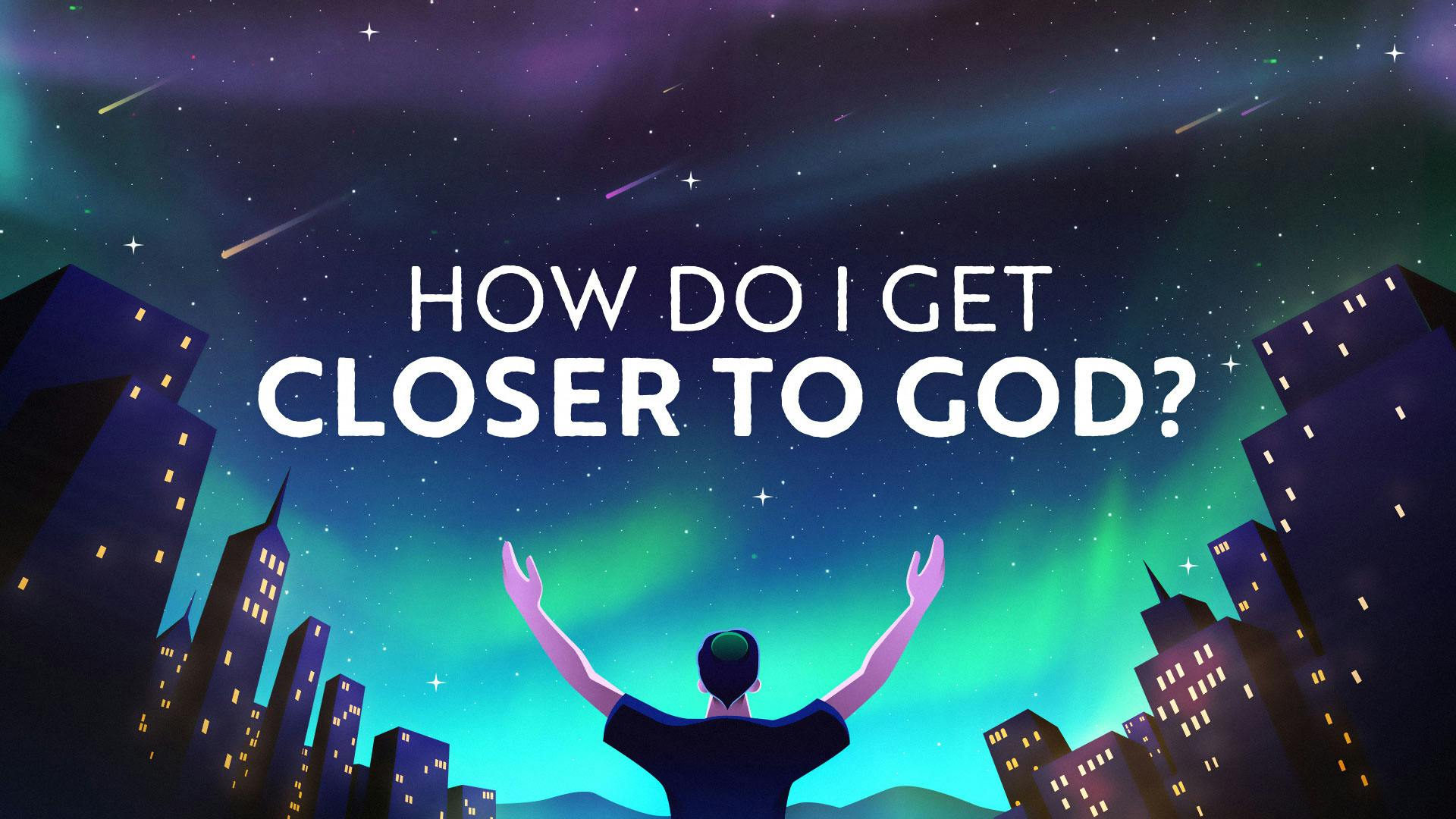
How Do I Get Closer To God?
How can I attain closeness with a God who is so beyond my comprehension? And why would the Creator of the Universe care about my prayers? Is God even listening?
Part 1 of 4 • 8 min

Finding Forgiveness Through The 13 Attributes of Mercy
Guilt can can inspire us to grow — but it can also be overwhelming, crippling. How can we account for our actions over the past year in a way that is productive and spiritually healthy?
33 min

Yamim Noraim And The Difference Between Awe And Fear
Many of us associate the Yamim Noraim (Days of Awe) with guilt and fear. But is “awe” the same thing as “fear”? Answering this question may be key to breaking free of the painful emotions that often accompany these days and experiencing them in a brand new, uplifting way.
1 hour, 18 min

Spiritual Preparation For Rosh Hashanah
A Guide For Rosh Hashanah With just 5 minutes a day, you'll be ready to show up on Rosh Hashanah feeling prepared. We’ll talk about prayer, how to understand davening, why we blow the shofar, how to leave behind all the guilt of Rosh Hashanah, and why this holiday is absolutely worth celebrating.
Part 1 of 10 • 3 min
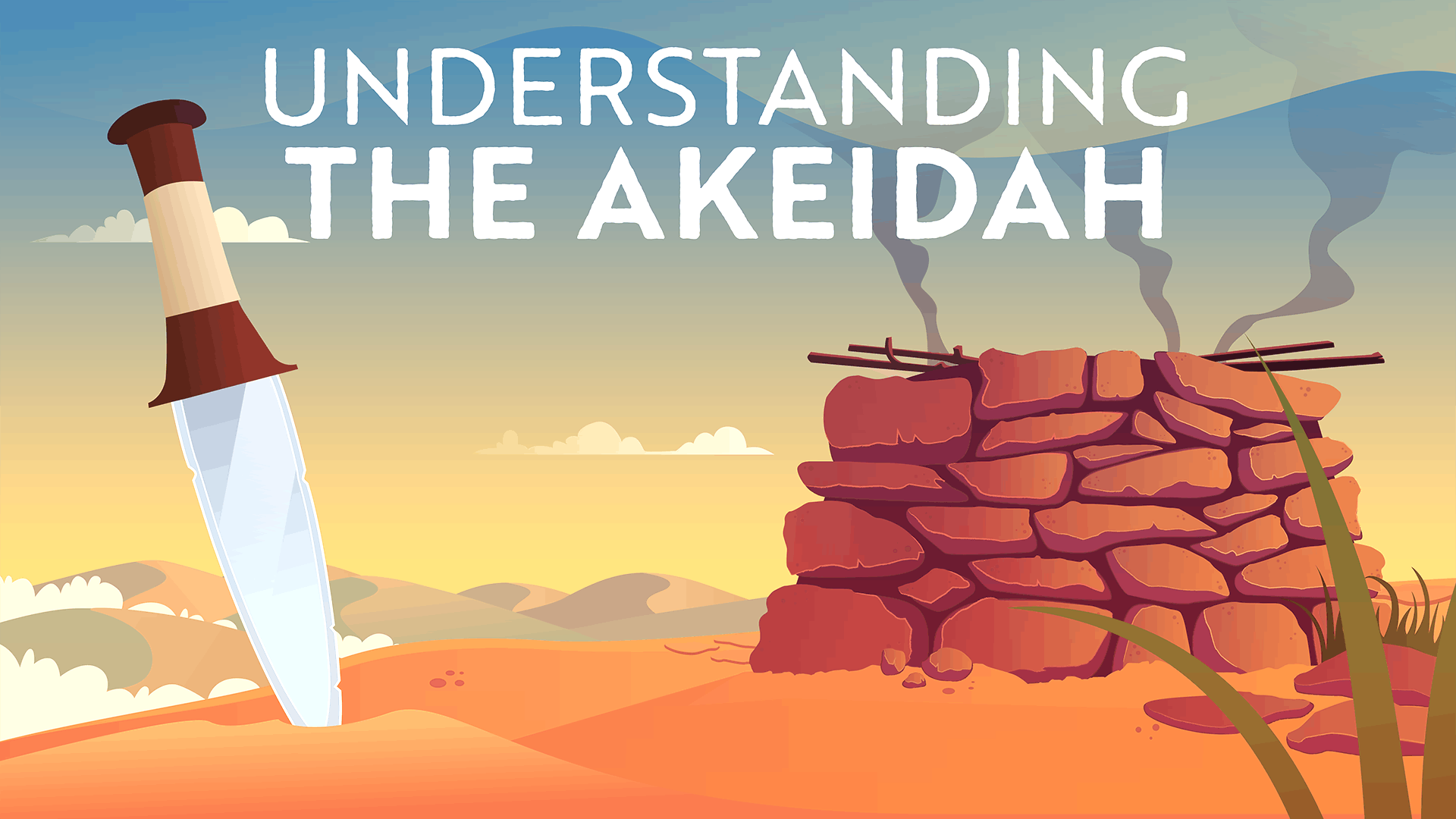
Why Did God Ask Abraham To Sacrifice His Son?
On Rosh Hashanah, we read about the Akeidah, when Abraham was asked to offer Isaac up as a sacrifice. But how are we supposed to make sense of this story that seems to pit obedience to God against our most basic sense of morality?
Part 1 of 7 • 48 min
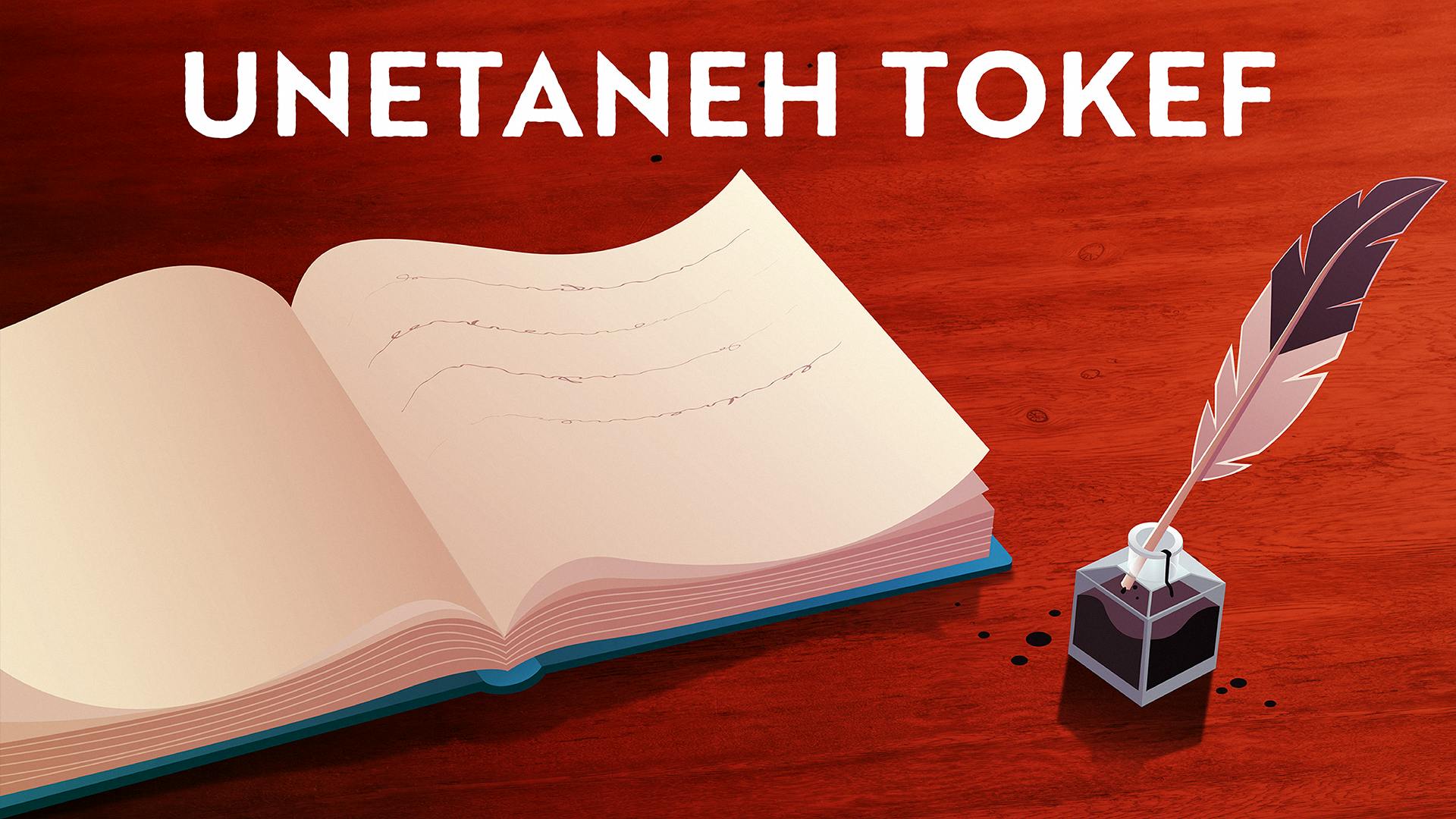
Commentary On Unetaneh Tokef - The High Holiday’s Scariest Prayer
At the center of the High Holidays' prayer service is the passage "Unetaneh Tokef." The powerful and dramatic prayer borrows imagery from the story of Elijah. A closer look at this biblical story sheds light on God's relationship of justice and mercy with His people, and helps us understand this prayer in a deeper way.
1 hour, 11 min

Repentance: The Guiding Voice Of Our Moral Conscience
How can we welcome a time of year that causes us so much angst, guilt, and shame?
1 hour, 34 min
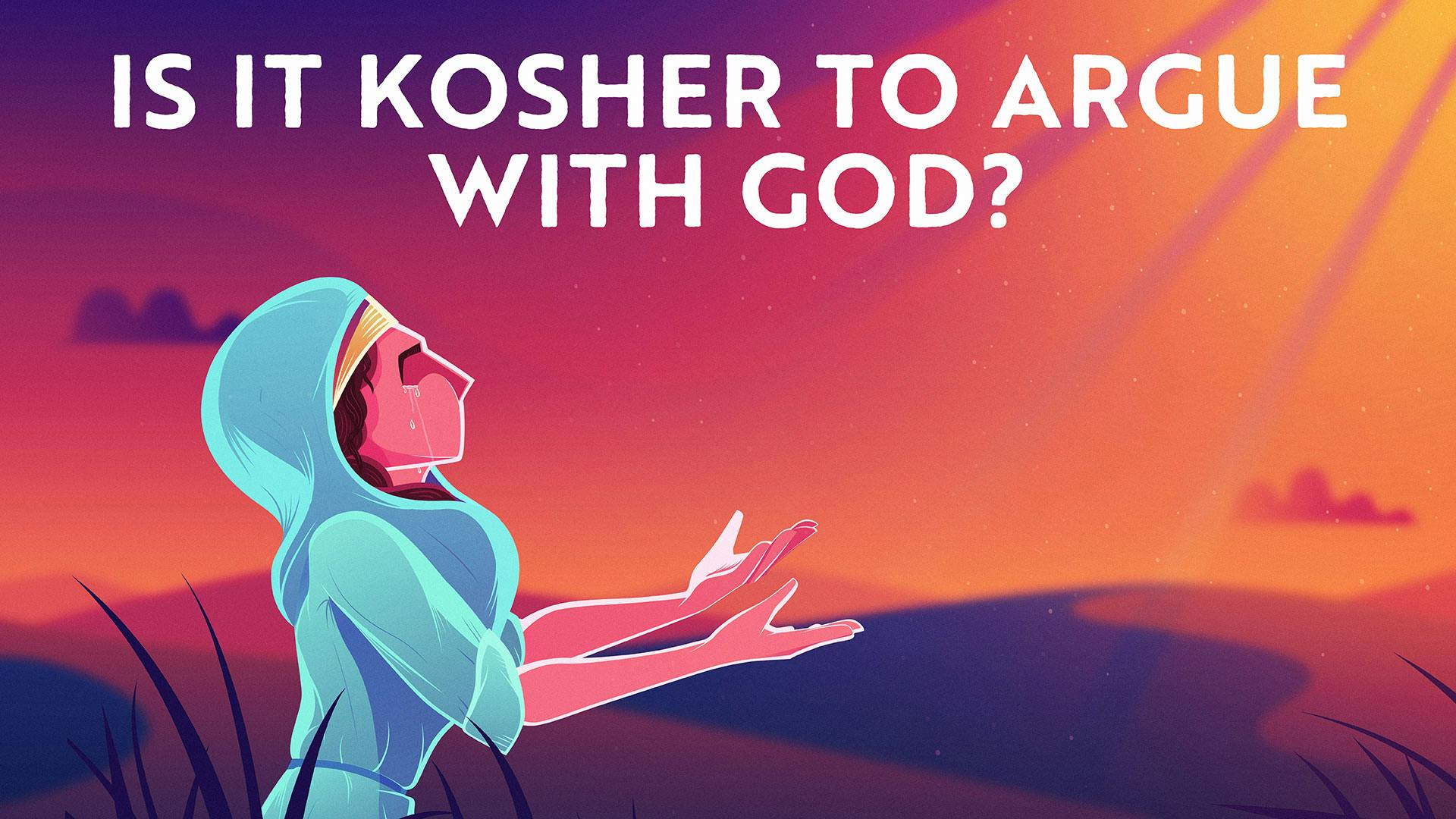
Is It Kosher To Argue With God?
In Emor, we read about the Mekalel (the "Blasphemer"), the man who is punished for cursing God. Cursing God doesn't sound like a very religious thing to do, but it raises the question: Is it ever OK to speak against God? What about arguing with God? Find out in this audio series.
Part 1 of 10 • 36 min

The Tree Of Life Vs The Tree Of Knowledge
Knowing Good and Evil What does it mean for us to recognize God as our King, Master of the universe? In this series, Rabbi Fohrman examines the early chapters of Genesis to discover just what God's mastery is all about – and what it really means to recognize it. Discover other great Rosh Hashanah videos at Aleph Beta, including ‘How To Prepare For Rosh Hashana”, “How To Do Teshuva”. and “Akeidah: The Story Of Abraham & Isaac”
Part 1 of 8 • 53 min

Rosh Hashanah Study Guide
A printable guide to aid our video series "How To Prepare For Rosh Hashanah."

High Holiday Reader
A printable guide to help you gain a new understanding of prayer, awe, and fear on the yamim noraim.

Rosh Hashanah: Day of Judgment or Day of Celebration?
5 min

The Secret Message of Unetaneh Tokef
10 min
Tzom Gedaliah
For additional resources, check out the Tzom Gedaliah home page here.
Yom Kippur
For additional resources, check out the Yom Kippur home page here.

The Book Of Jonah: What's The Deep Lesson?
The Book of Jonah reads almost like a child’s story, and the message seems just as simple: “It’s good to do teshuva.” But a close read of the text reveals a much more sophisticated tale, with a profound lesson that has deep relevance for our modern lives.
Part 1 of 7 • 6 min

The High Holidays: Should I Feel Guilty?
Guilt can can inspire us to grow — but it can also be overwhelming, crippling. How can we account for our actions over the past year in a way that is productive and spiritually healthy?
33 min

How Do I Get Closer To God?
How can I attain closeness with a God who is so beyond my comprehension? And why would the Creator of the Universe care about my prayers? Is God even listening?
Part 1 of 4 • 8 min

Teshuva: Is There a Wrong Way to Repent?
Repentance is an emotional and deeply personal process — yet Judaism has specific laws that govern exactly how we’re supposed to do it. Can there really be a “wrong” way to repent?
Part 1 of 4 • 8 min

The Surprising Purpose of Yom Kippur
We’re used to thinking of Yom Kippur as a time of forgiveness, when God wipes our slates clean. But what if we’ve been misunderstanding the essence of the holiday?
9 min

Commentary On Unetaneh Tokef - The High Holiday’s Scariest Prayer
At the center of the High Holidays' prayer service is the passage "Unetaneh Tokef." The powerful and dramatic prayer borrows imagery from the story of Elijah. A closer look at this biblical story sheds light on God's relationship of justice and mercy with His people, and helps us understand this prayer in a deeper way.
1 hour, 11 min
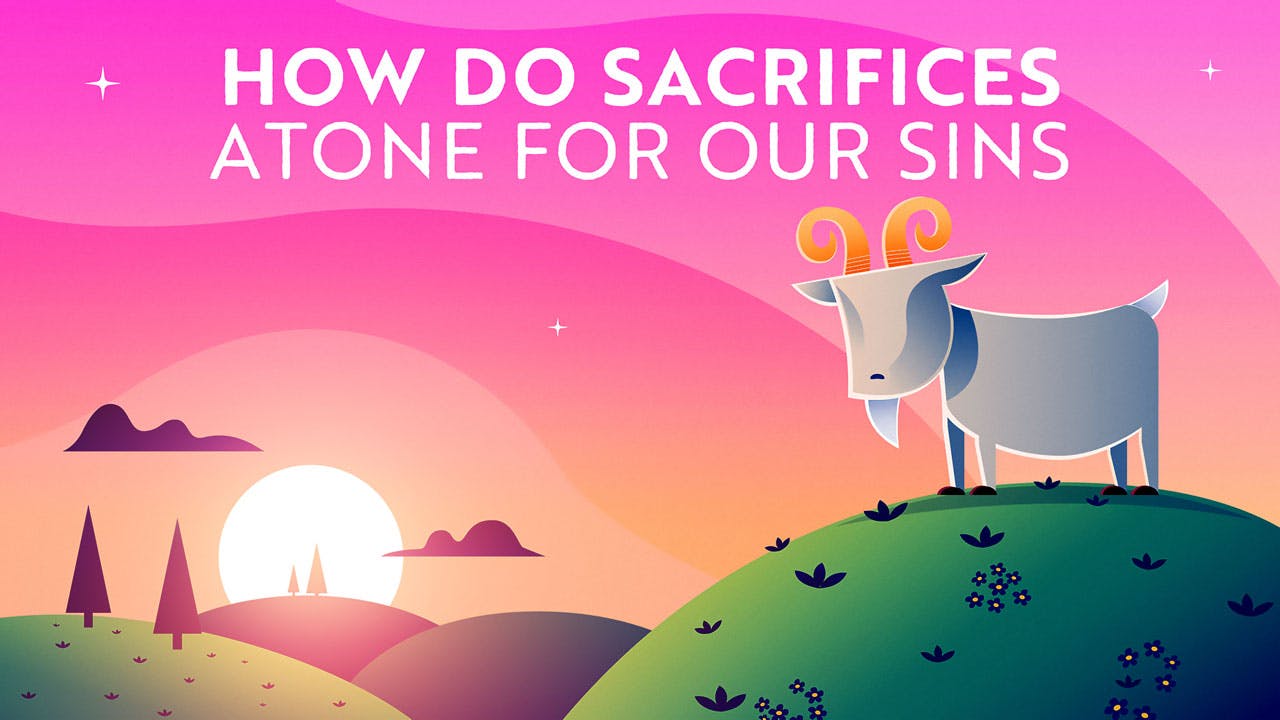
Understanding The Day Of Atonement Rituals
We associate Yom Kippur with prayer and sitting in synagogue all day. But back then, it involved goats and lotteries and sacrifices and sprinkling blood and incense and clouds. How do those weird rituals grant forgiveness for our sins? It sounds magical… and irrational. Let's study this to explore the essence of Yom Kippur.
15 min

Yamim Noraim And The Difference Between Awe And Fear
Many of us associate the Yamim Noraim (Days of Awe) with guilt and fear. But is “awe” the same thing as “fear”? Answering this question may be key to breaking free of the painful emotions that often accompany these days and experiencing them in a brand new, uplifting way.
1 hour, 18 min

Repentance: The Guiding Voice Of Our Moral Conscience
How can we welcome a time of year that causes us so much angst, guilt, and shame?
1 hour, 34 min

Is It Kosher To Argue With God?
In Emor, we read about the Mekalel (the "Blasphemer"), the man who is punished for cursing God. Cursing God doesn't sound like a very religious thing to do, but it raises the question: Is it ever OK to speak against God? What about arguing with God? Find out in this audio series.
Part 1 of 10 • 36 min

Acher: He Who Must Not Be Named
Can we ever do something so bad there’s no coming back from it? In this series, Rabbi Fohrman grapples with the nature of atonement through a close reading of the story of Elisha ben Avuya, the famous apostate “Acher,” and his fiercely loyal student, Rabbi Meir.
Part 1 of 5 • 25 min

Jonah
A printable PDF study guide to accompany our course on the Book of Jonah.

High Holiday Reader
A printable guide to help you gain a new understanding of prayer, awe, and fear on the yamim noraim.
Sukkot
For additional resources, check out the Sukkot home page here.

The Hidden Meaning Of Sukkot
Why do we celebrate Sukkot? Because the Israelites slept in huts in the desert after fleeing Egypt… right? Well, what if that answer is incomplete? What if the Torah offers us a deeper story about the meaning of this holiday…and it’s hiding in plain sight?
30 min

An Epic Understanding Of The Jewish Holidays
When it comes to the Jewish holidays, we tend to relate to each one on its own. But often, we miss the bigger picture. The Torah actually talks to us in epic, sweeping terms about the very idea of a “holiday,” about how to understand the holidays and find meaning in them. Come into the text and get ready to unravel the Torah's secret about the true meaning of Sukkot, Pesach, and Shavuot.
12 min

Is Hoshana Rabba The Key To Understanding Sukkot?
In this webinar, Rabbi Fohrman dives even deeper into the question: Wait.. why do we celebrate Sukkot, to offer a fascinating explanation that not only sheds new light on the holiday of Sukkot but on the often overlooked significance of its seventh day: Hoshana Rabba.
1 hour, 18 min

The Deep Connection Between The Biblical Holidays
There are several holidays mentioned in the Bible, including the Three Pilgrimage Festivals: Passover, Sukkot and Shavuot. What makes these days more significant than any other holiday? The Bible seems almost elusive when describing these holy days. Join Rabbi Fohrman as he uncovers the secret theme that permeates these days, allowing a deeper understanding of the holiday cycle to emerge.
Part 1 of 5 • 54 min

The Meaning of Hallel
We add the prayer service of Hallel on holidays, but what exactly are we saying? Is it just a collection of Psalms? In this course, Rabbi Fohrman argues that not only are we learning what it is to be a servant of God, but we are also discovering the origins of the nation of Israel.
Part 1 of 7 • 56 min

Sukkot Holiday Study Guide
Learn how how sleeping in a hut became a major Jewish holiday.
Hanukkah
For additional resources, check out the Hanukkah home page here.
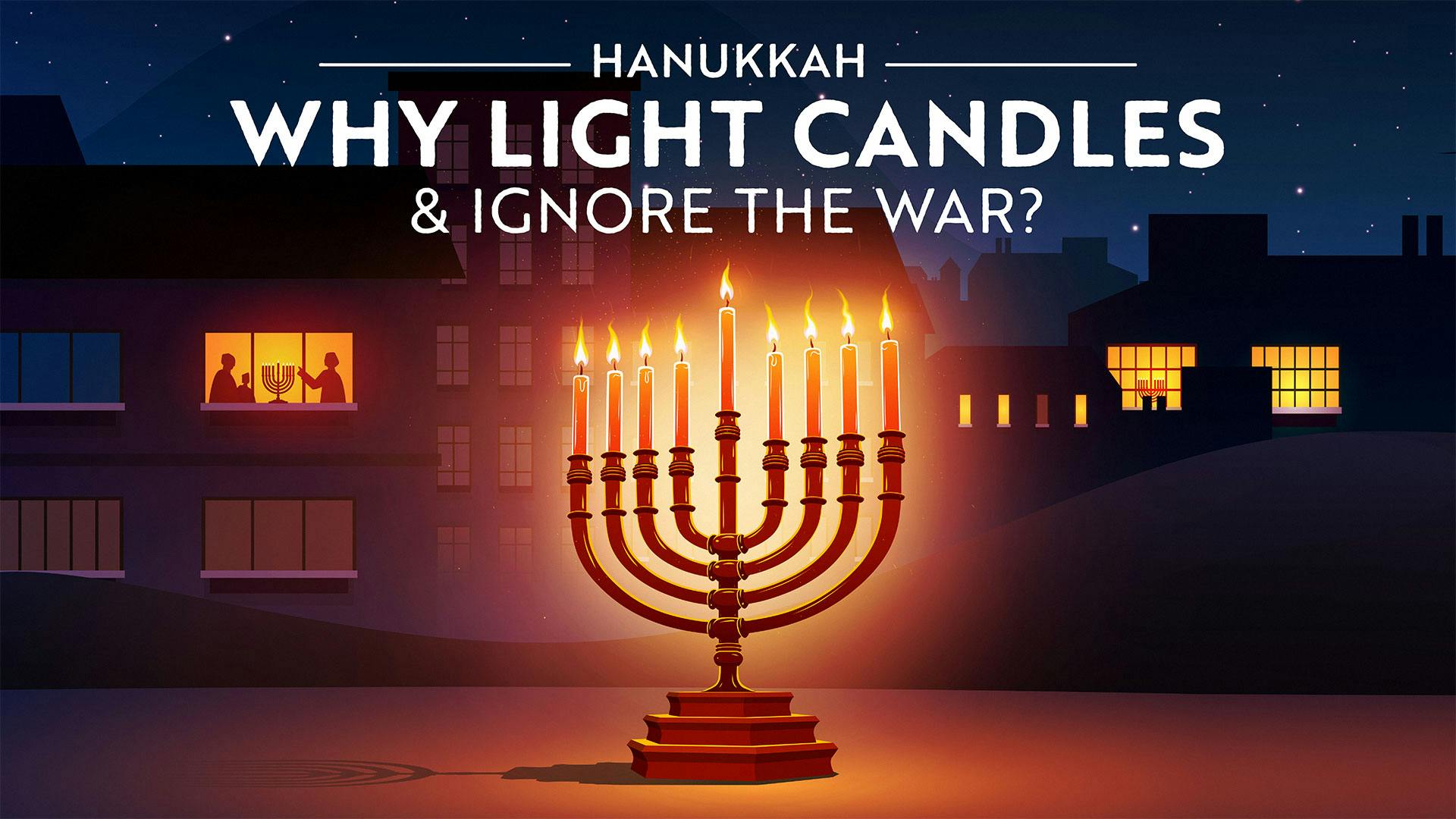
The War On Hanukkah
When the Maccabees first lit the menorah, we hadn’t yet experienced a true victory over the Greeks. Strikingly, we find ourselves in a similar situation in 2024. How can we truly celebrate and find meaning in Hanukkah this year when we are still waiting for our miracle? Watch this video to gain a deeper meaning of Hanukkah today.
Part 1 of 4 • 6 min
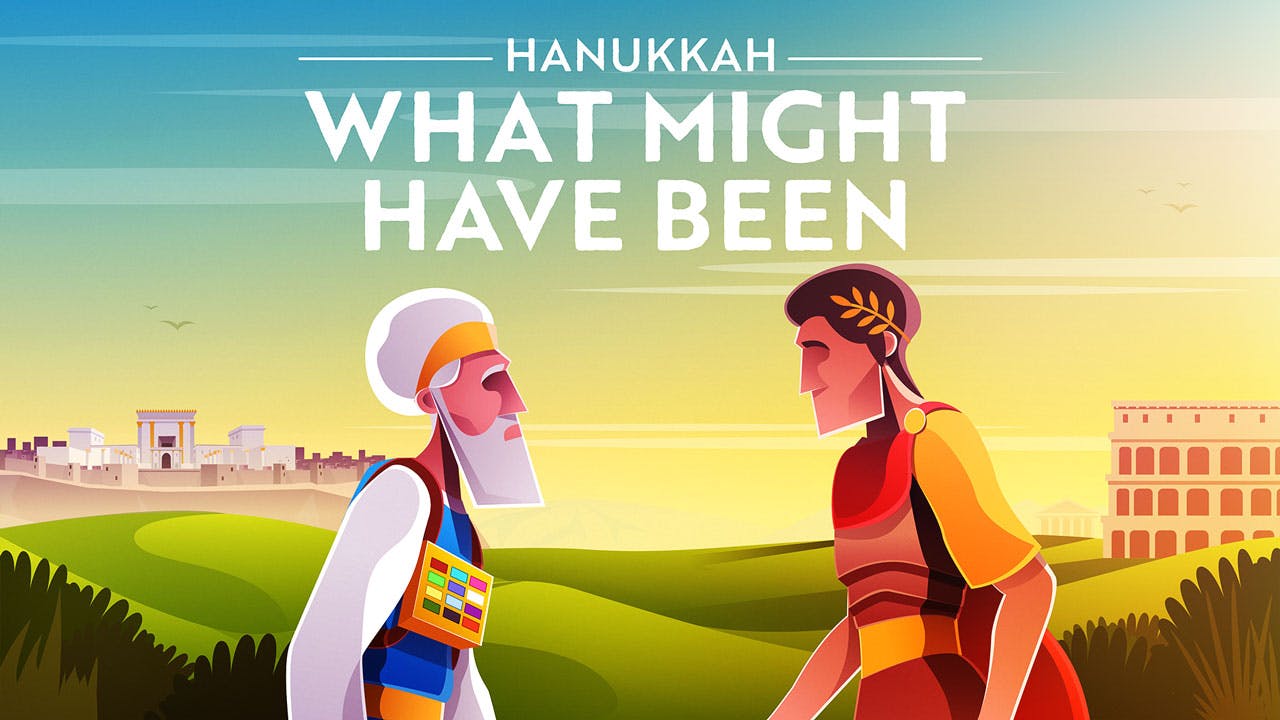
The Hanukkah That Might Have Been
Hanukkah commemorates the clash between Judaism and Hellenism. Beauty, art, culture… are these the enemy? The answer to this question may lie in a story the Talmud tells. It's not quite the story of Hanukkah, but could it be the story of a Hanukkah that might have been?
Part 1 of 3 • 9 min

The Miracle of Hanukkah
A tiny flask of oil kept a few flames burning for a couple of nights… why does this relatively minor miracle deserve so much attention? Join Rabbi Fohrman as he explores the miracle of Hanukkah, its connection to a well-known Biblical narrative, and its major impact on our lives today.
33 min

The Spiritual Meaning of Hanukkah
Latkes, gifts, dreidels – Hanukkah is full of fun! But kids’ stuff aside, is there a deeper meaning to this holiday? What spiritual insight can Hanukkah really offer 21st century grown-ups?
Part 1 of 2 • 56 min
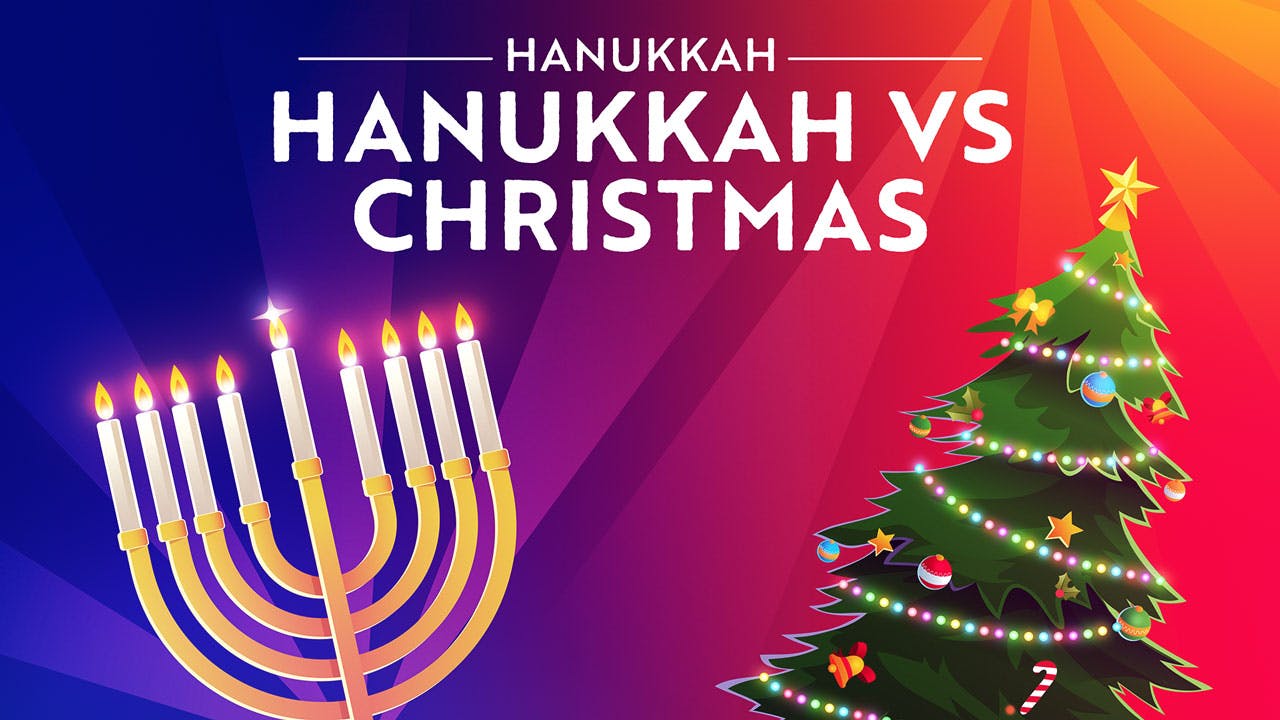
Is Hanukkah Like Christmas?
Is Hanukkah just the Jewish Christmas? Or, for that matter, the Jewish “winter holiday”? After all, almost every religion has a winter festival that’s suspiciously similar to Hanukkah -- going all the way back to pagan times. So, what makes Hanukkah special? Turns out, the Talmud asks the same thing.
Part 1 of 4 • 10 min
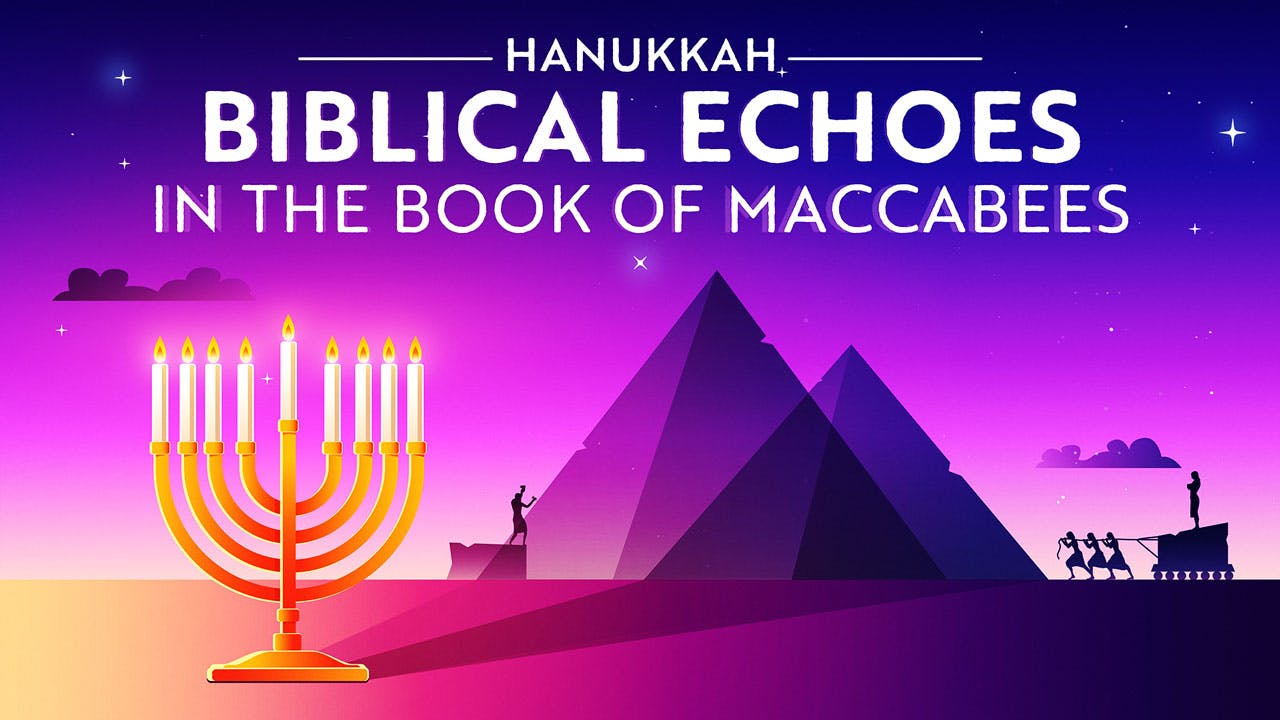
Who Are the Maccabees & What Is the Book of Maccabees About?
How does the Hanukkah story fit into the larger context of Jewish history? Join Rabbi Fohrman as he ventures deep into the oft-overlooked Book of the Maccabees, a first-hand account of the story of Hanukkah, to discover unexpected biblical echoes in the miracles of Hanukkah.
Part 1 of 4 • 13 min

The Meaning of Hallel
We add the prayer service of Hallel on holidays, but what exactly are we saying? Is it just a collection of Psalms? In this course, Rabbi Fohrman argues that not only are we learning what it is to be a servant of God, but we are also discovering the origins of the nation of Israel.
Part 1 of 7 • 56 min
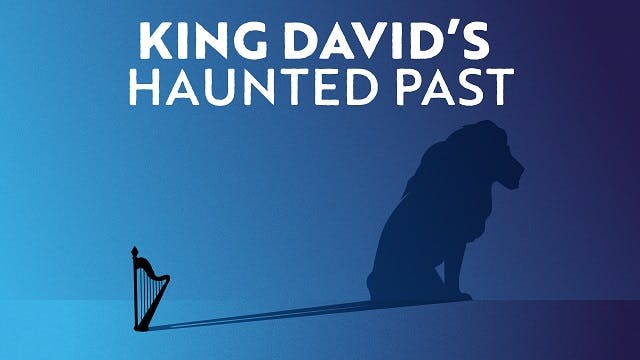
King David's Haunted Past
We recite Psalm 30 on Hannukah. David inaugurates the Temple in Jerusalem with this special psalm – but nothing about the text seems to relate to the Temple at all! In this lecture, Rabbi Fohrman explains a deeper meaning for Psalm 30.
1 hour, 20 min
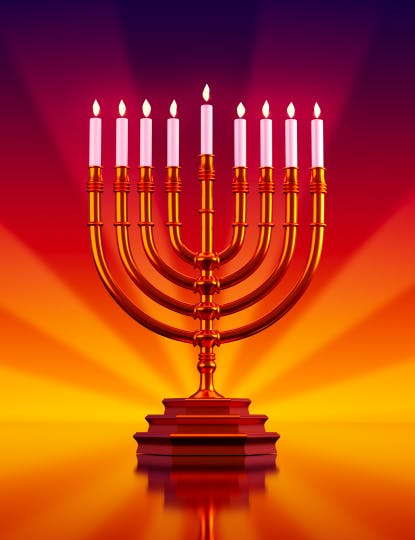
Hanukkah Family Activity Booklet
In the Hanukkah video Why Celebrate The Oil But Ignore The War?, Rabbi Fohrman explores the miracle of Chanukah, to illuminate (pun intended!) how God is always with us, even during the darkest of times. Get the most out of this video by watching it as a family and enjoying the activities in this booklet together.

The Festival Of Jewish Values: How To Celebrate Hanukkah In A Changing World
7 min

A 101 Guide To Hanukkah
7 min
Fast of 10 Tevet
For additional resources, check out the Fast of 10 Tevet home page here.
Tu BiShvat
For additional resources, check out the Tu BiShvat home page here.
